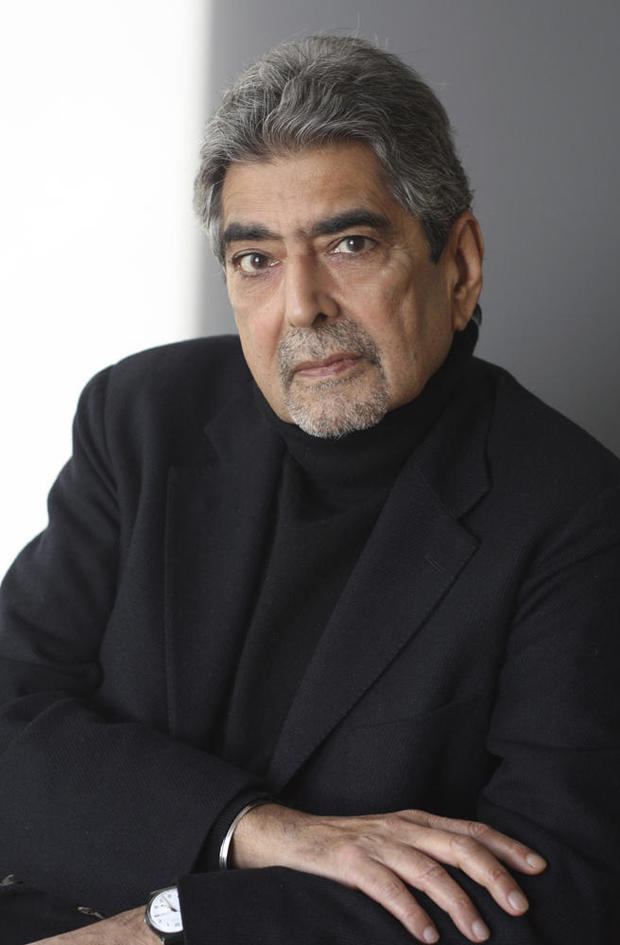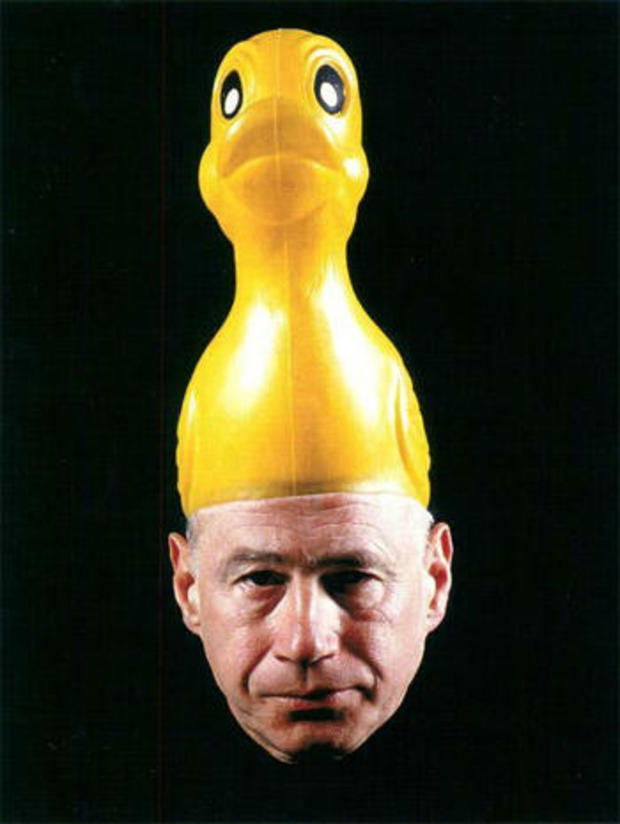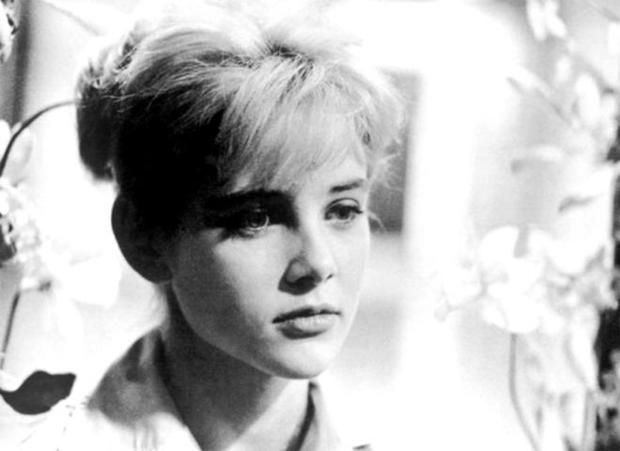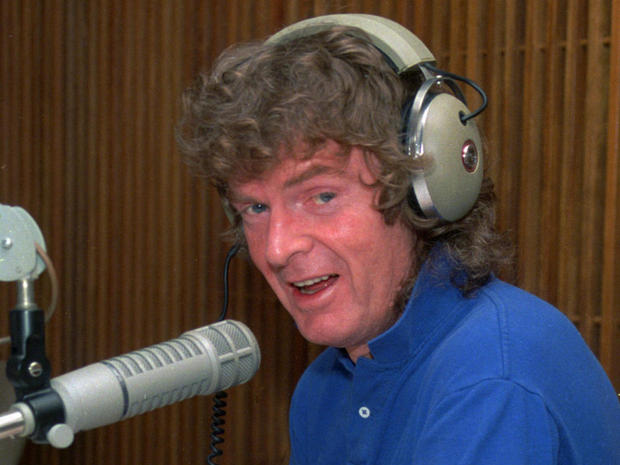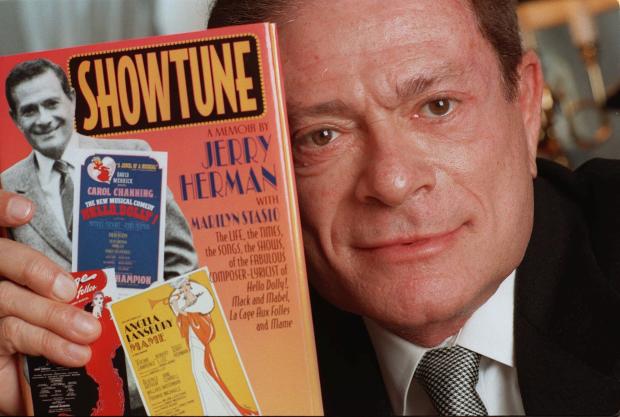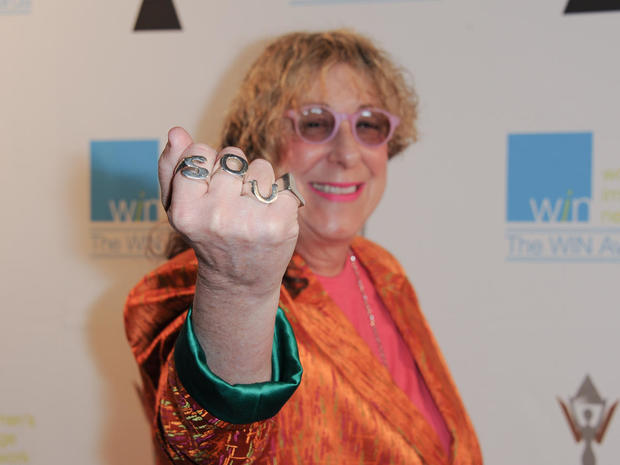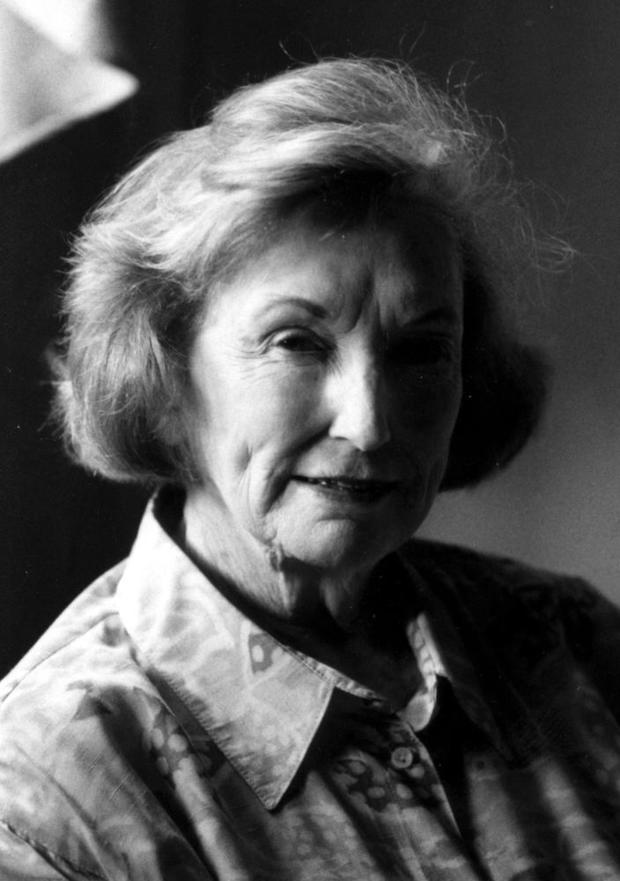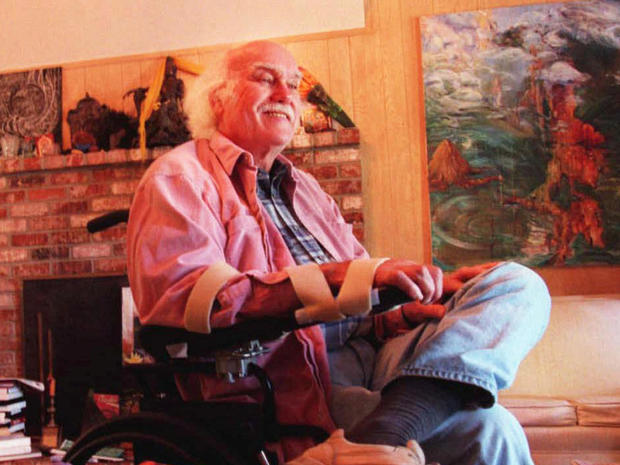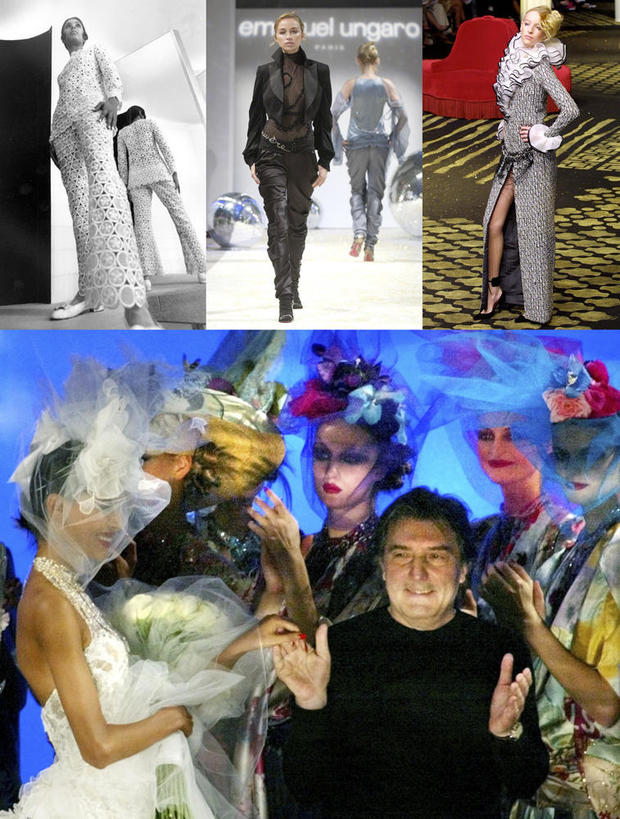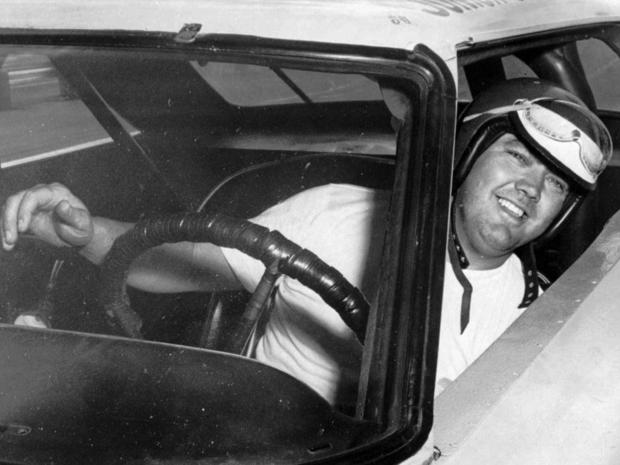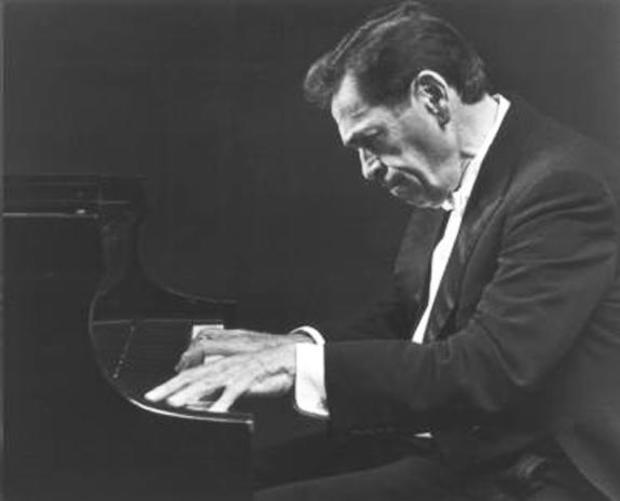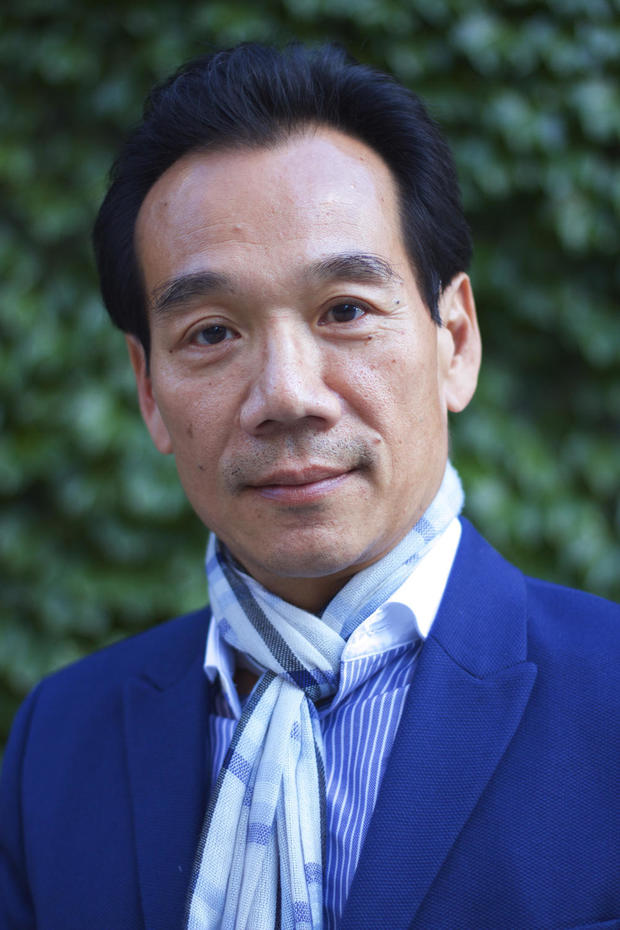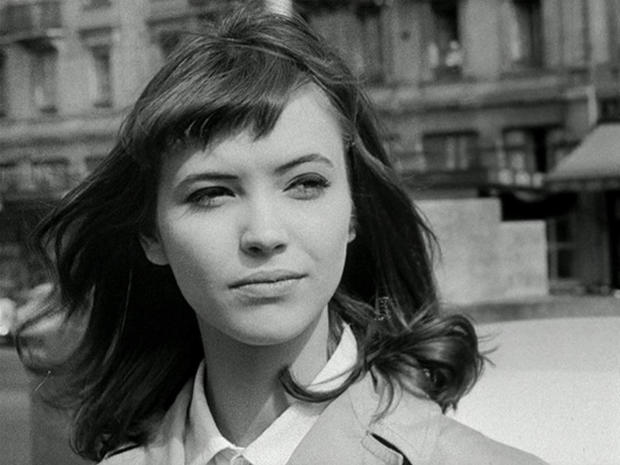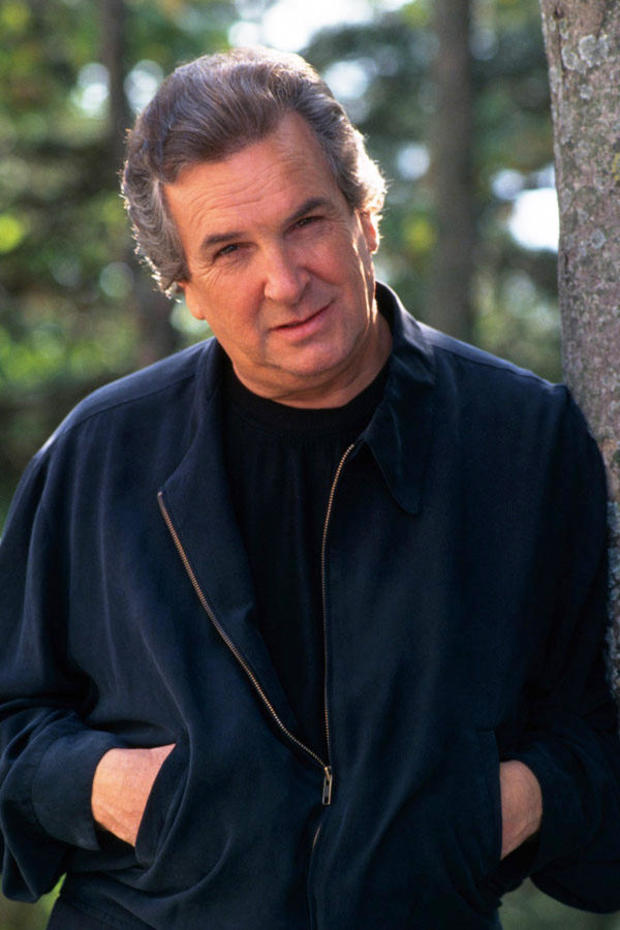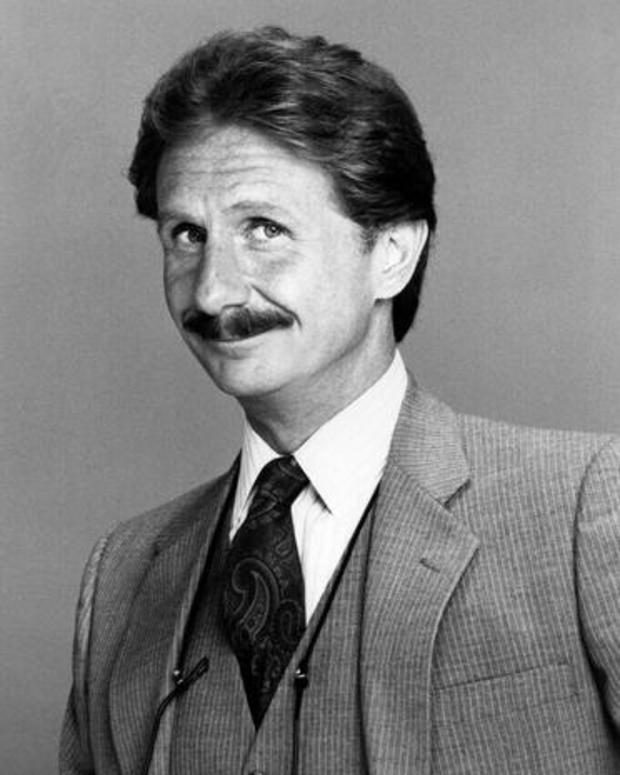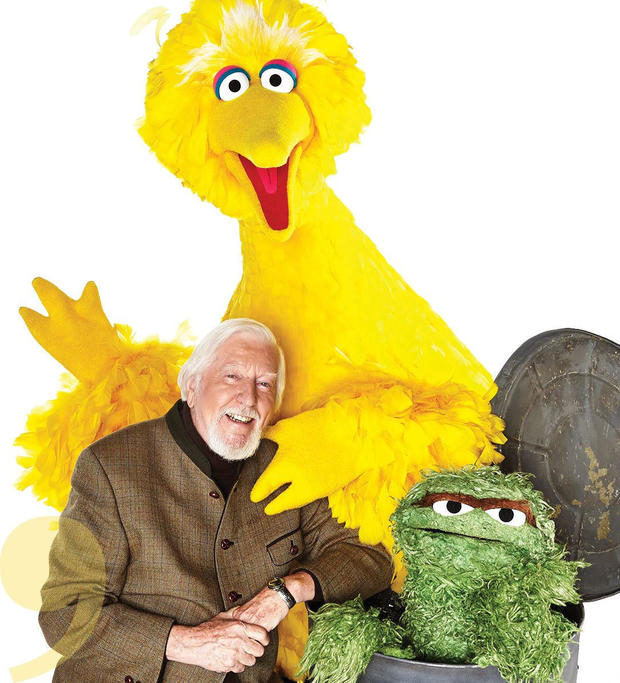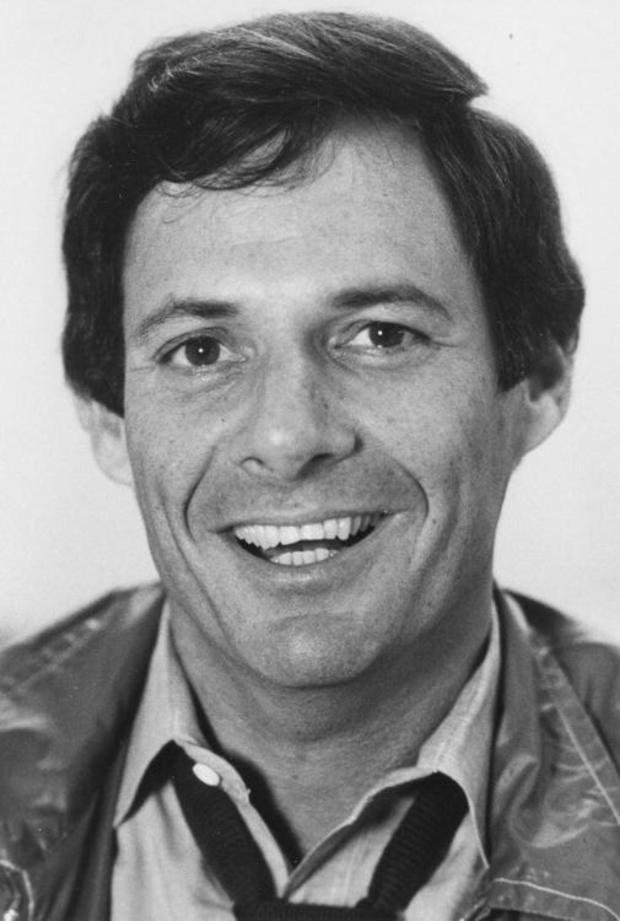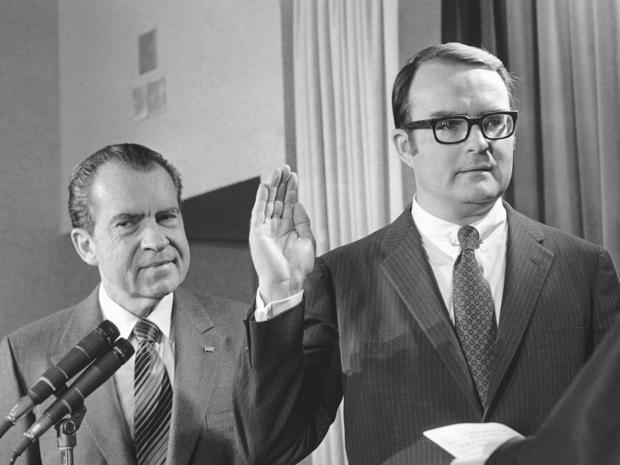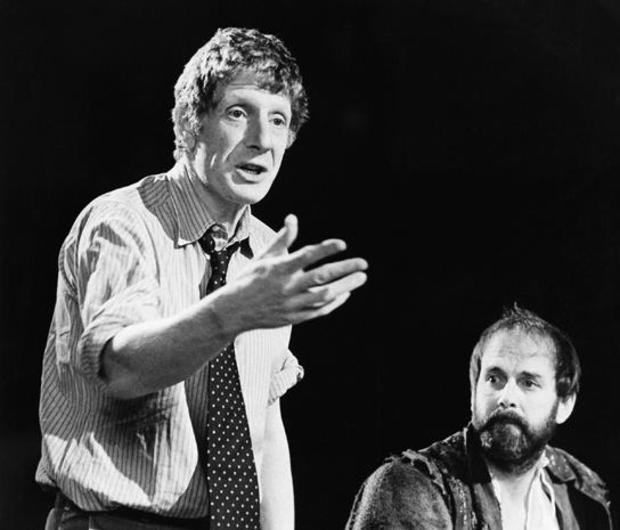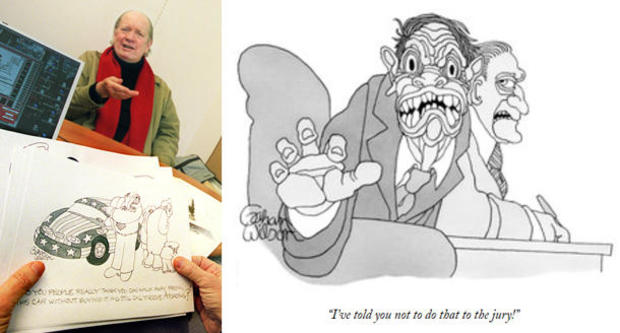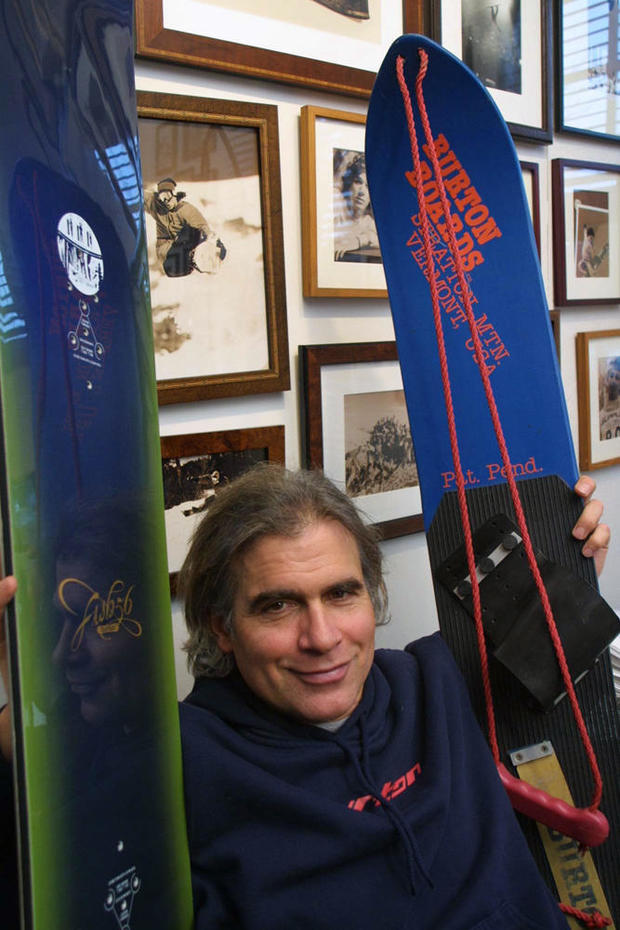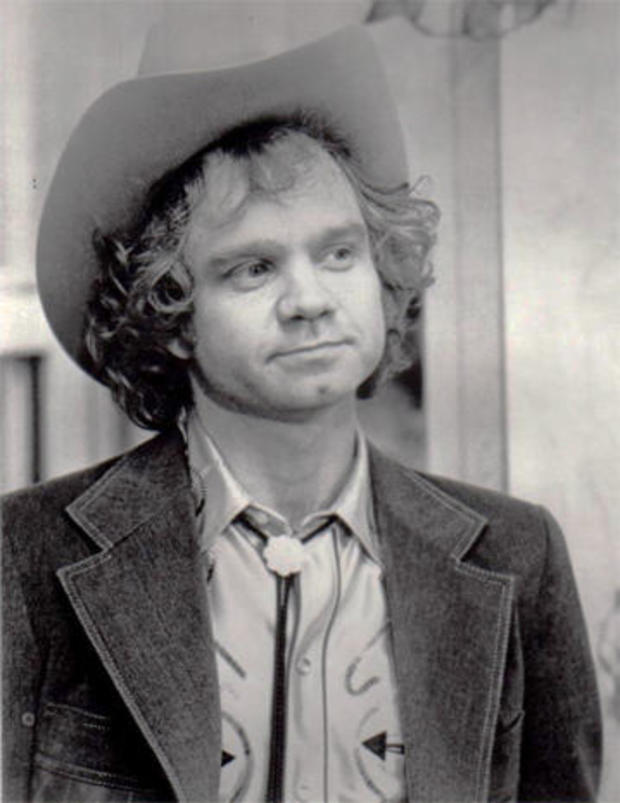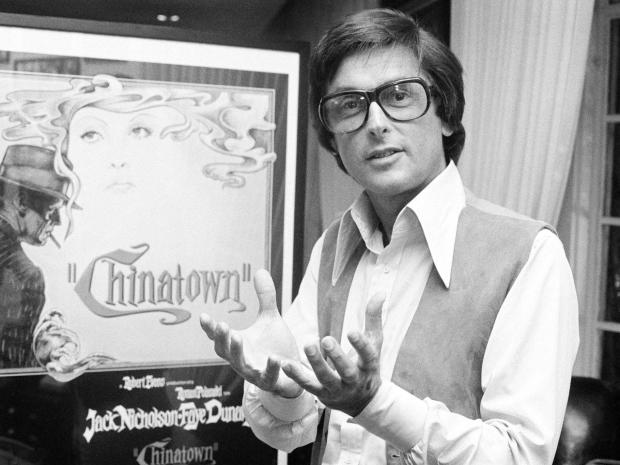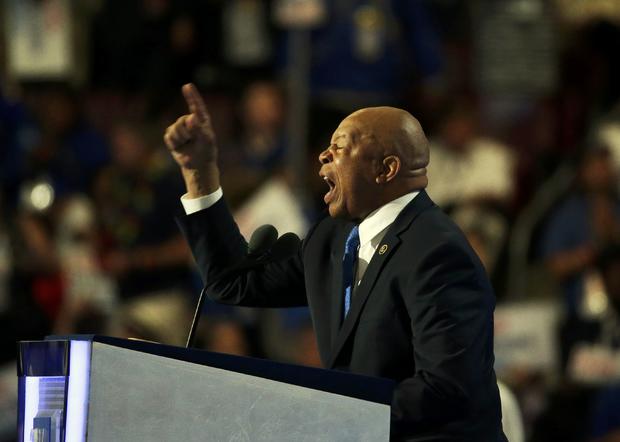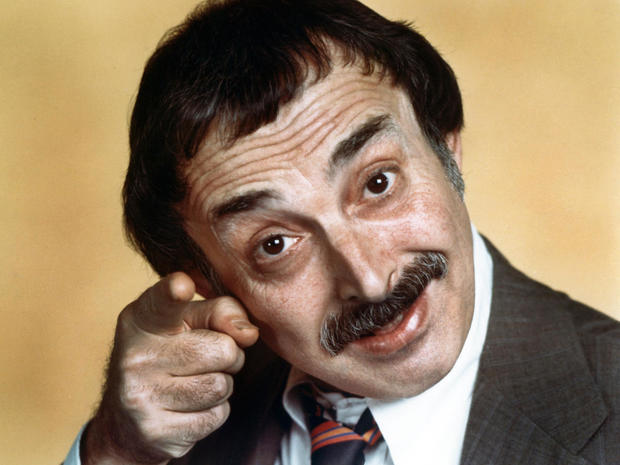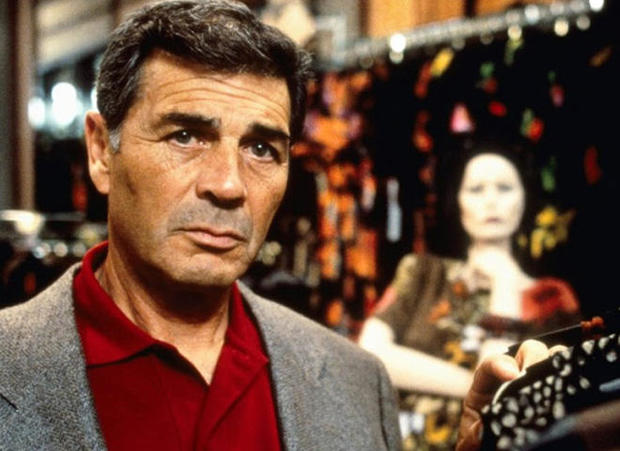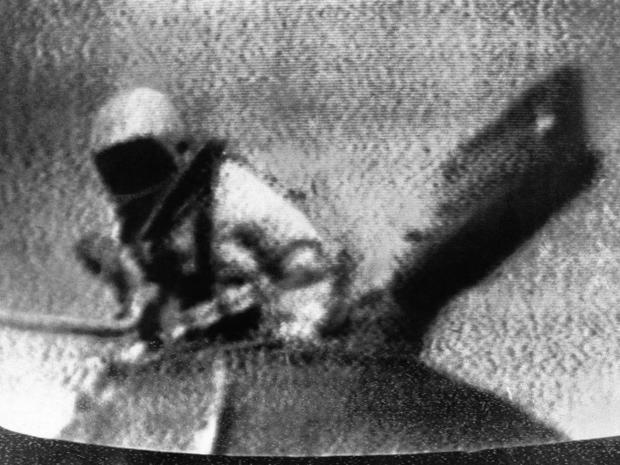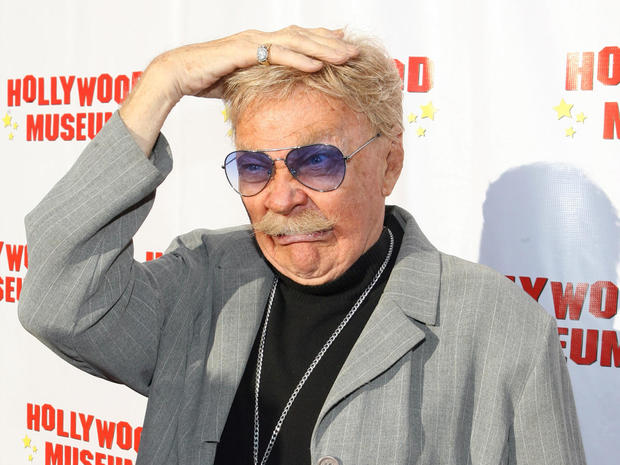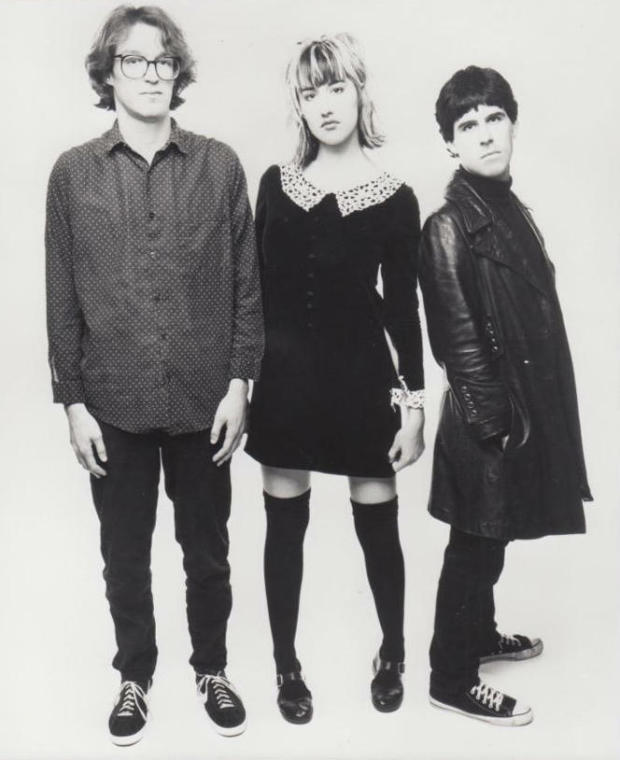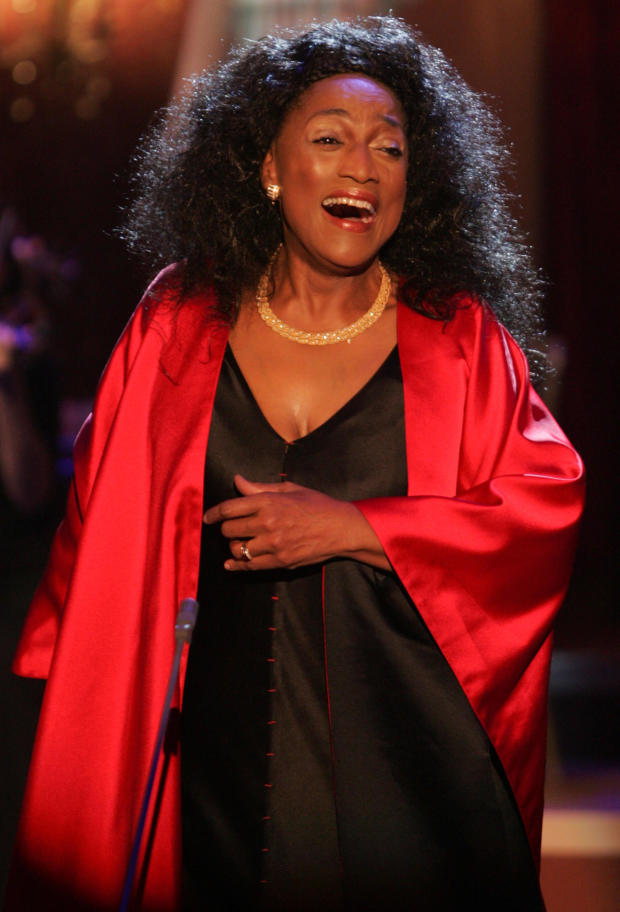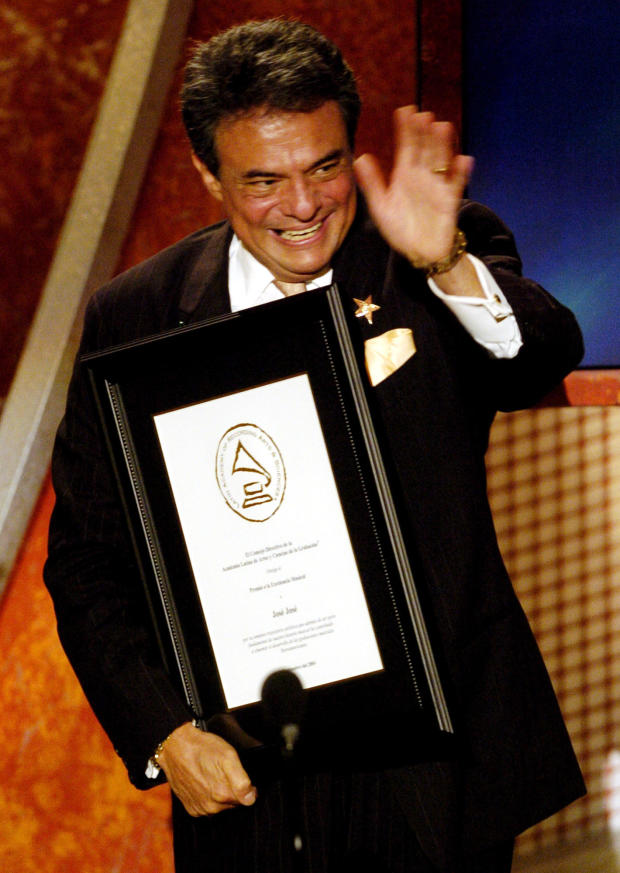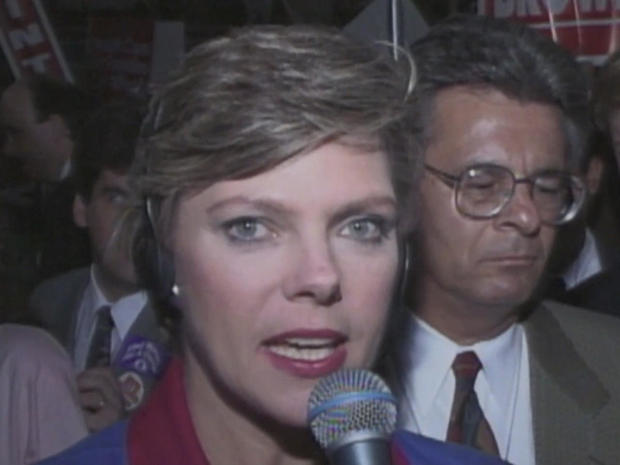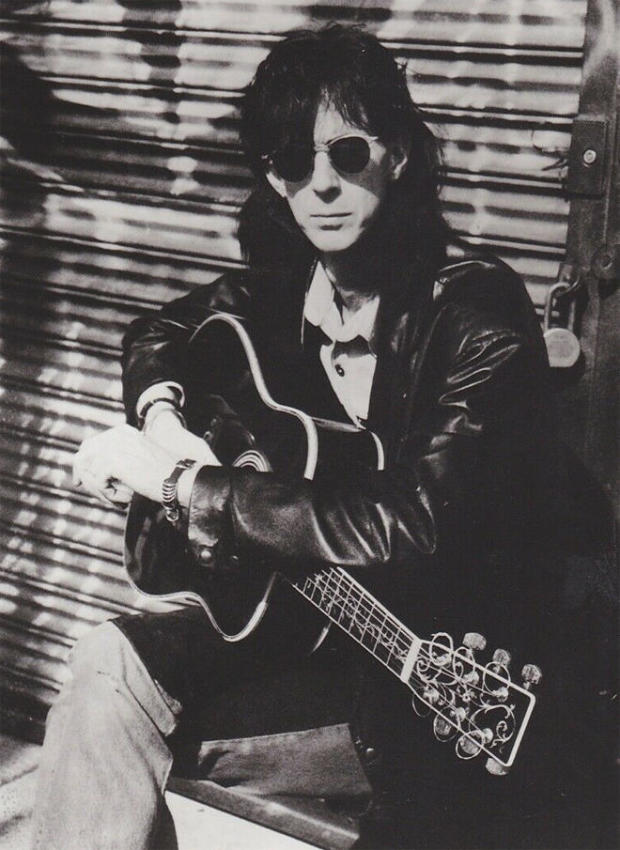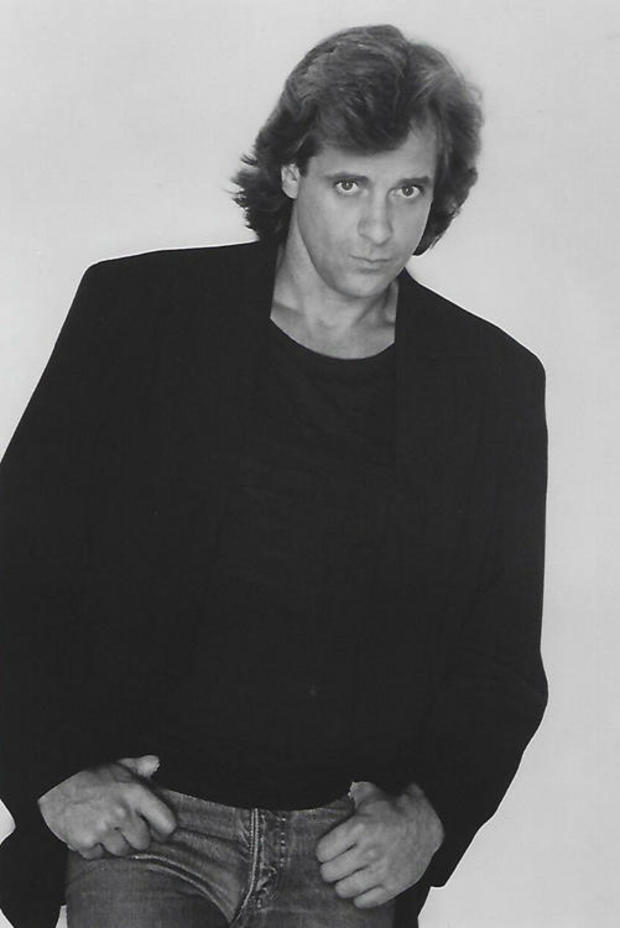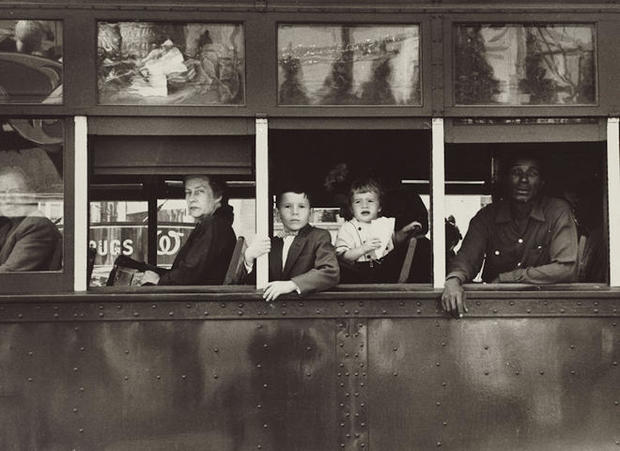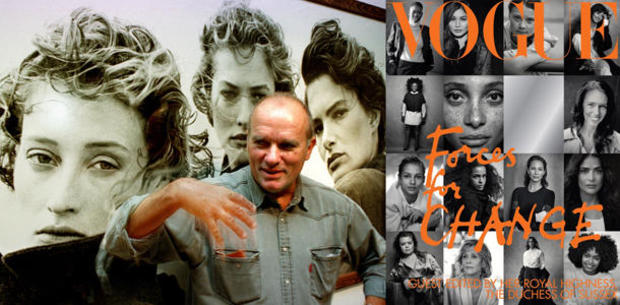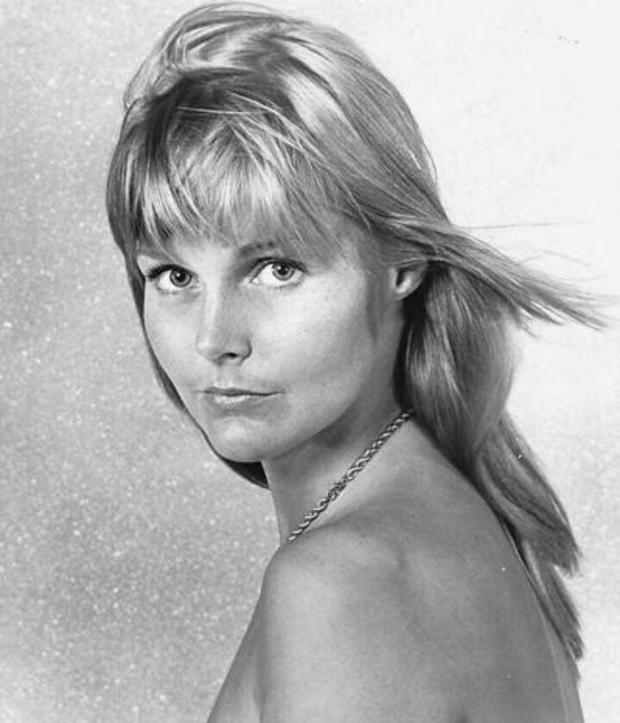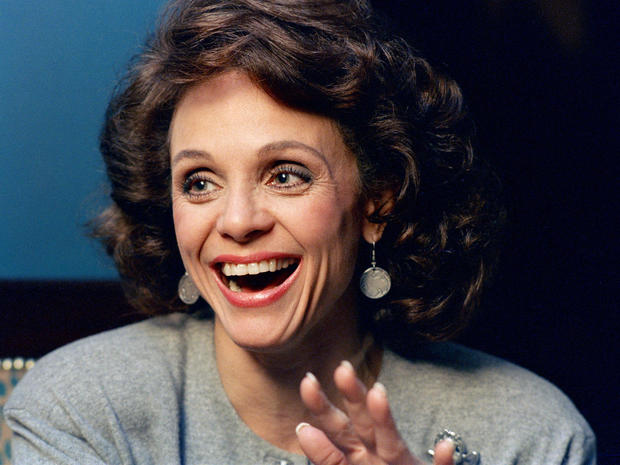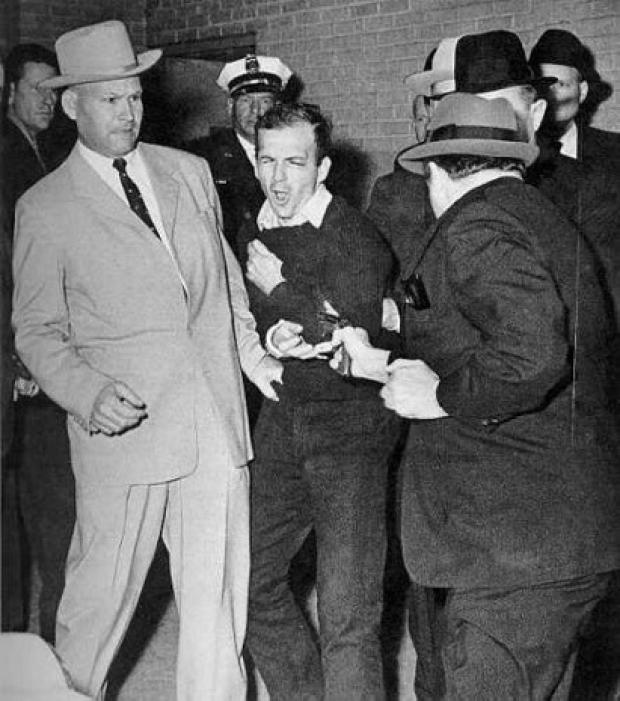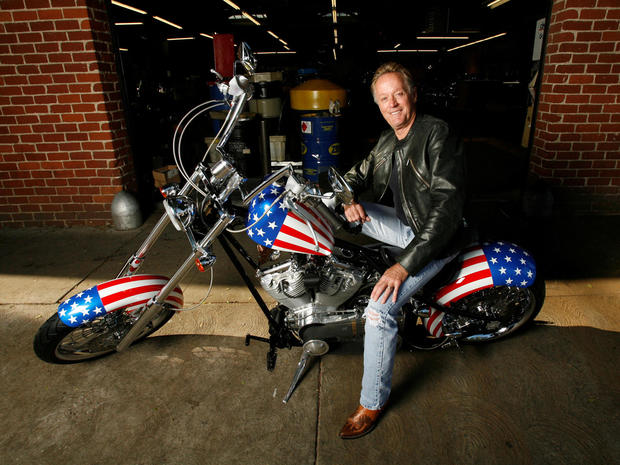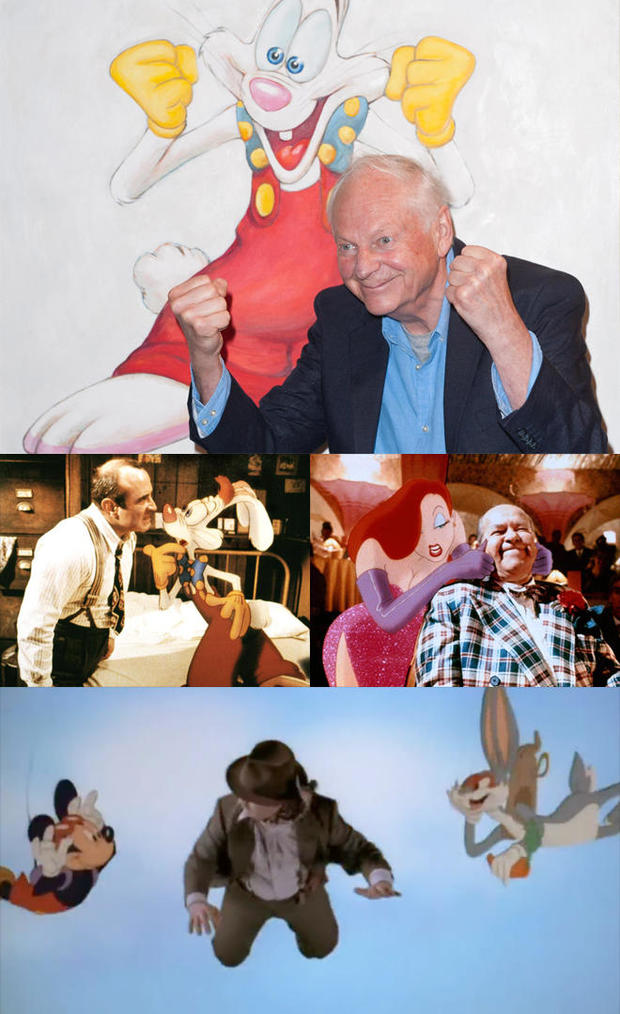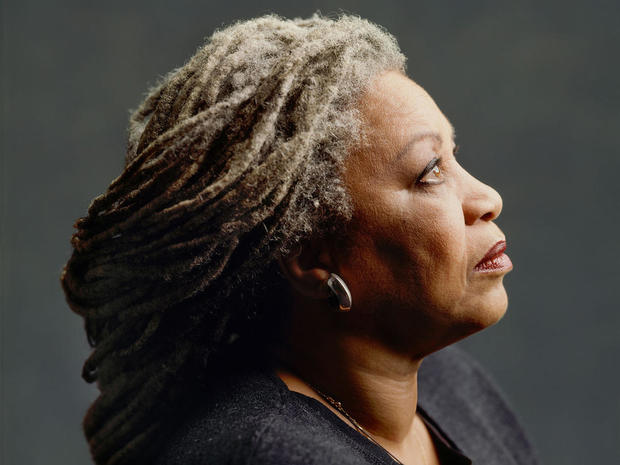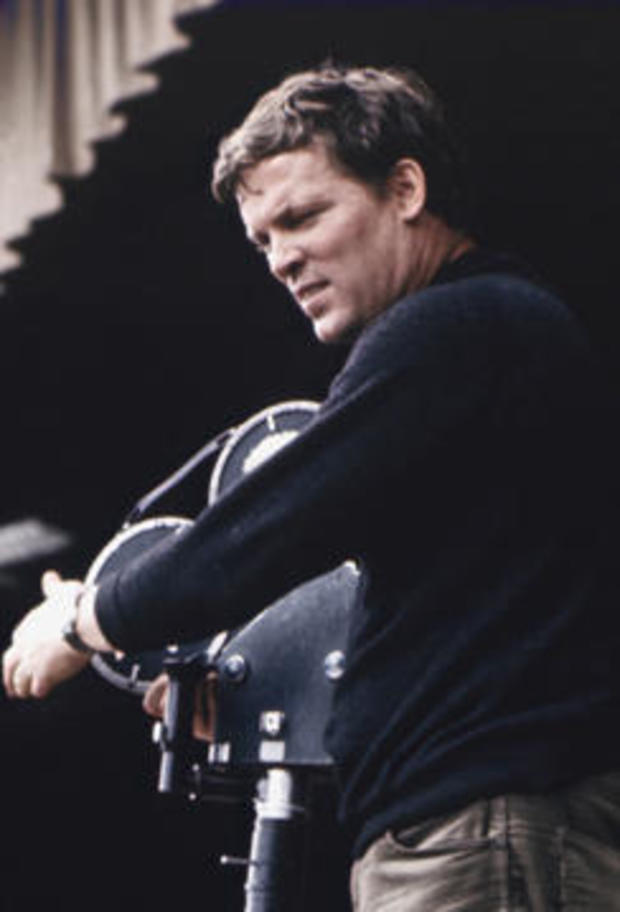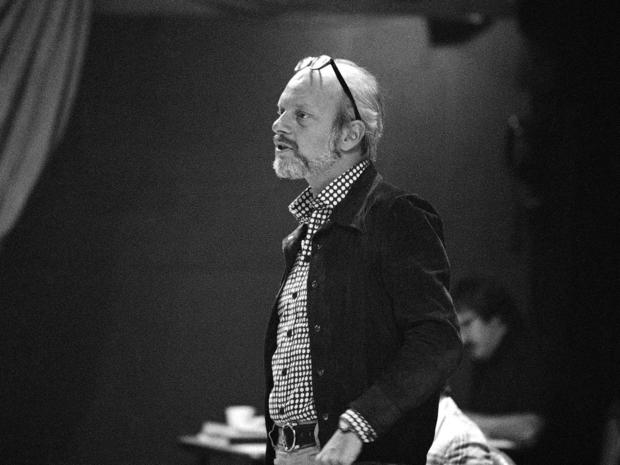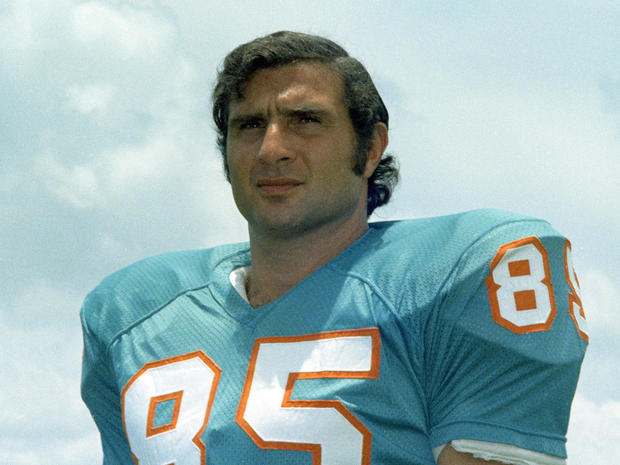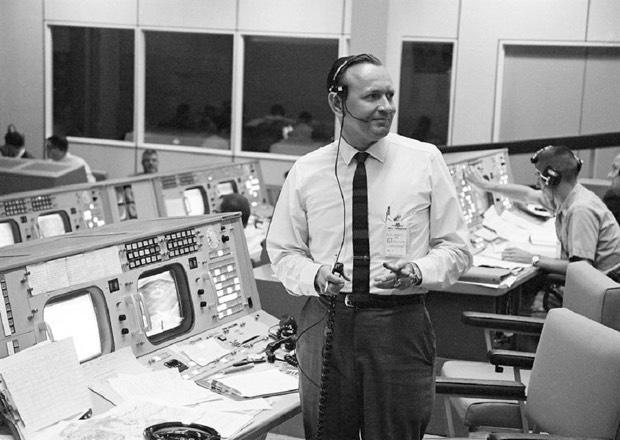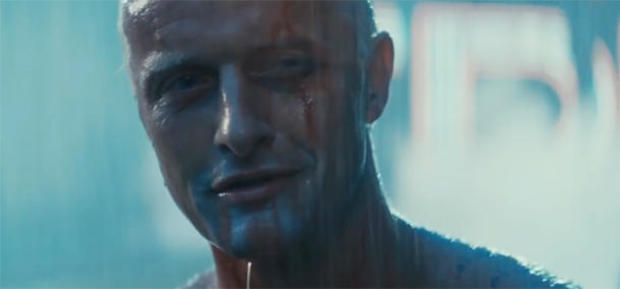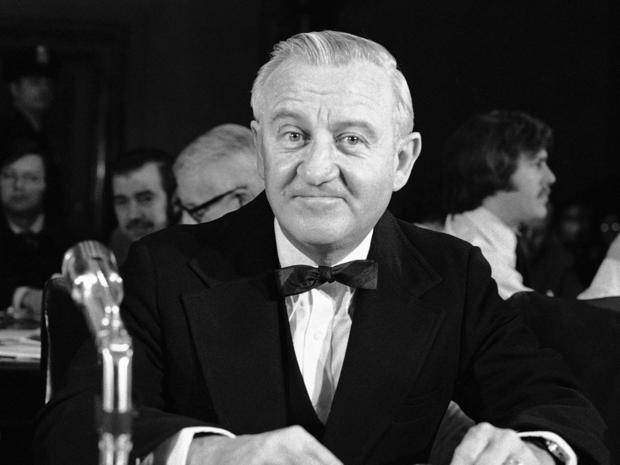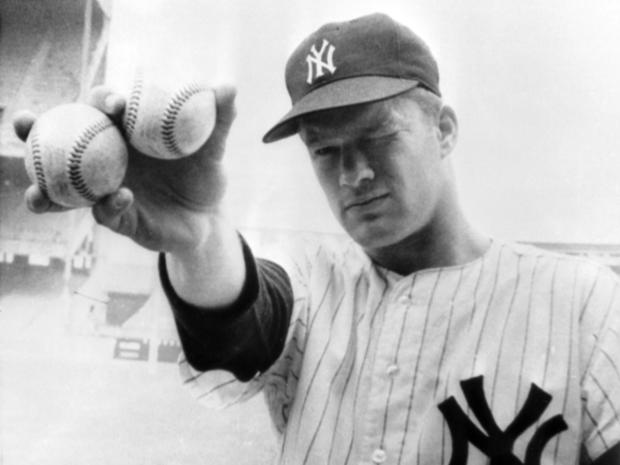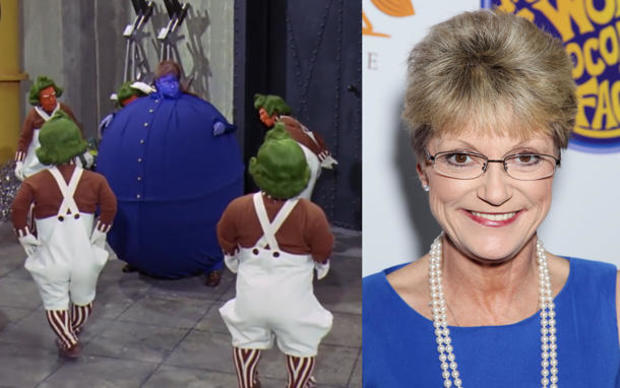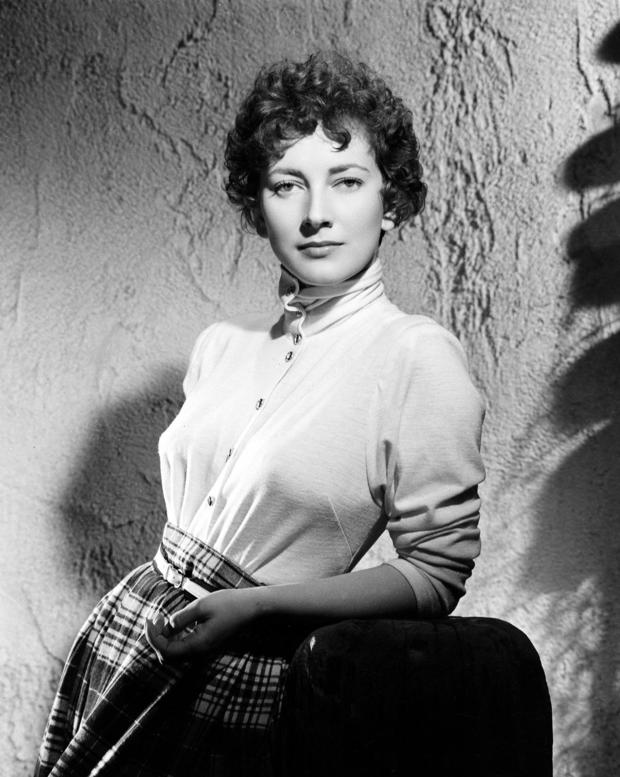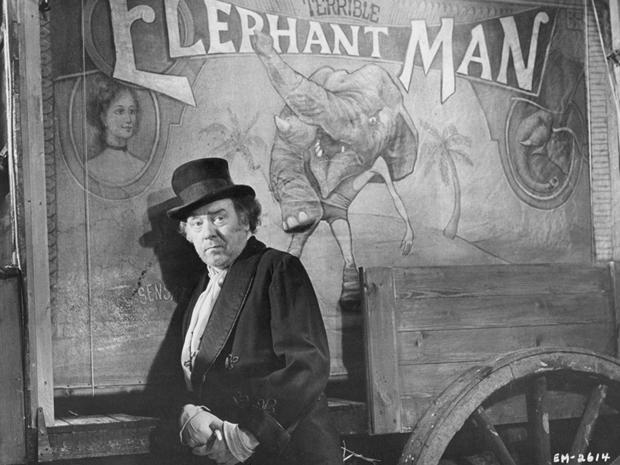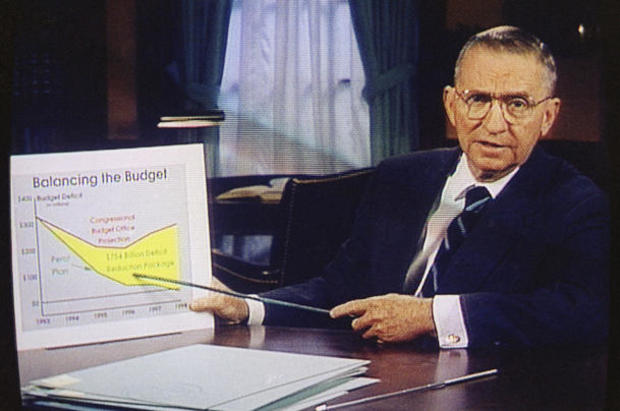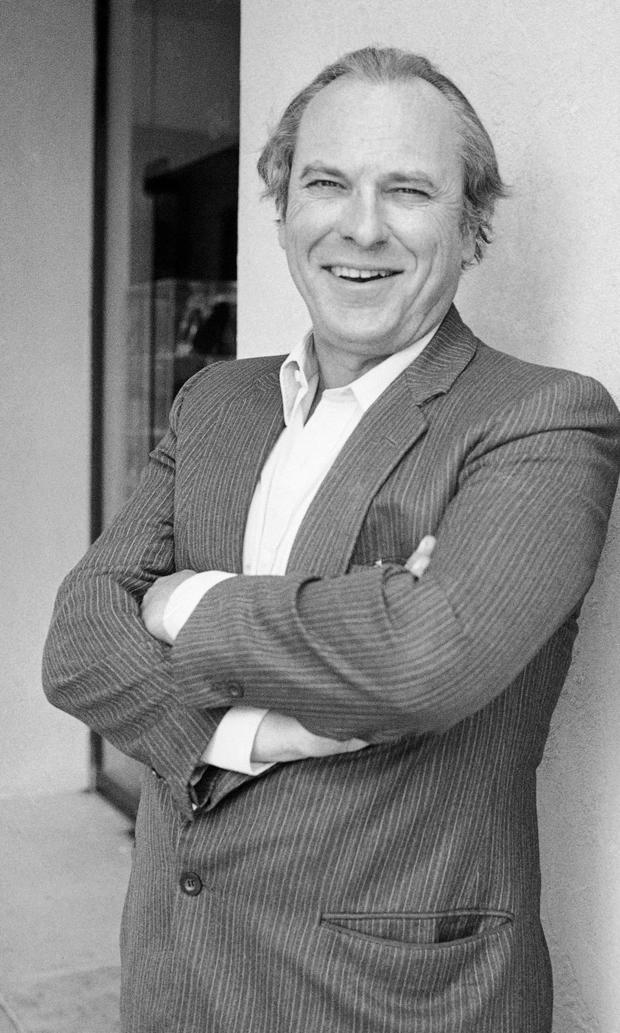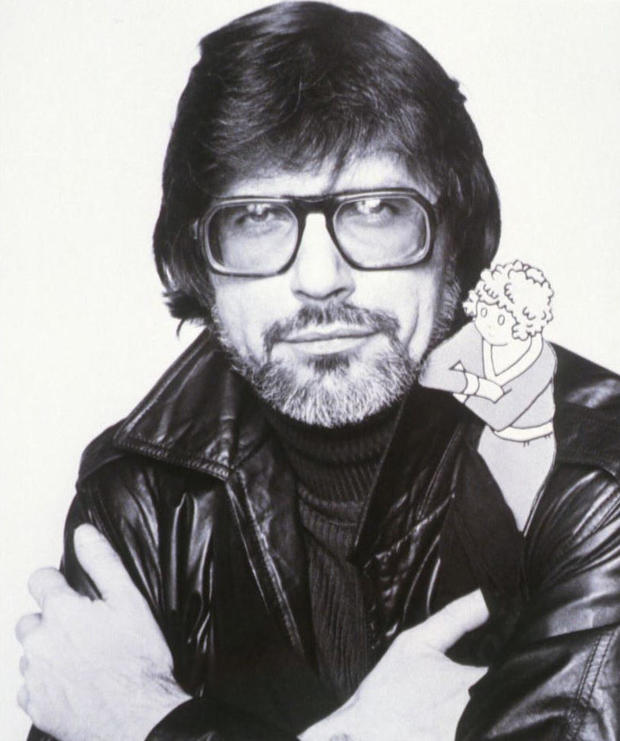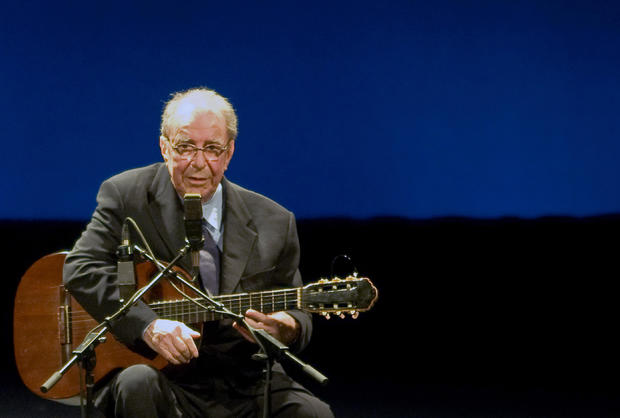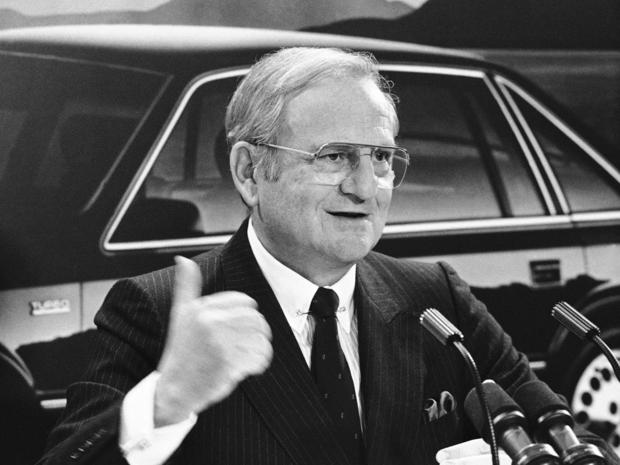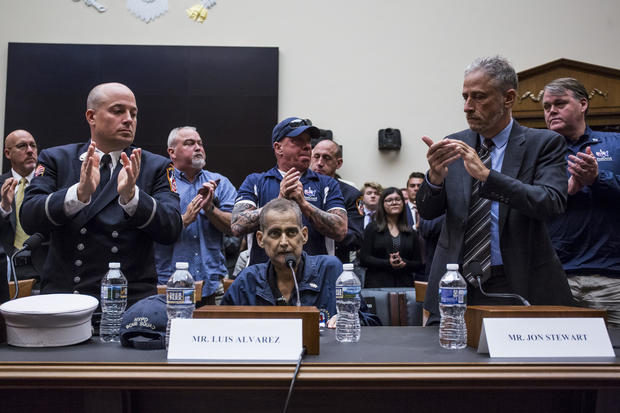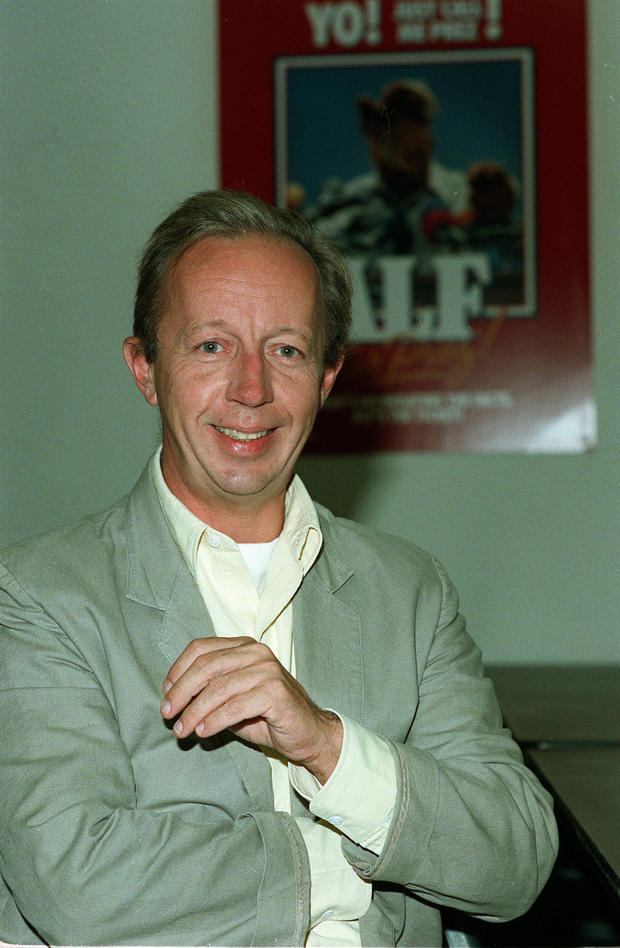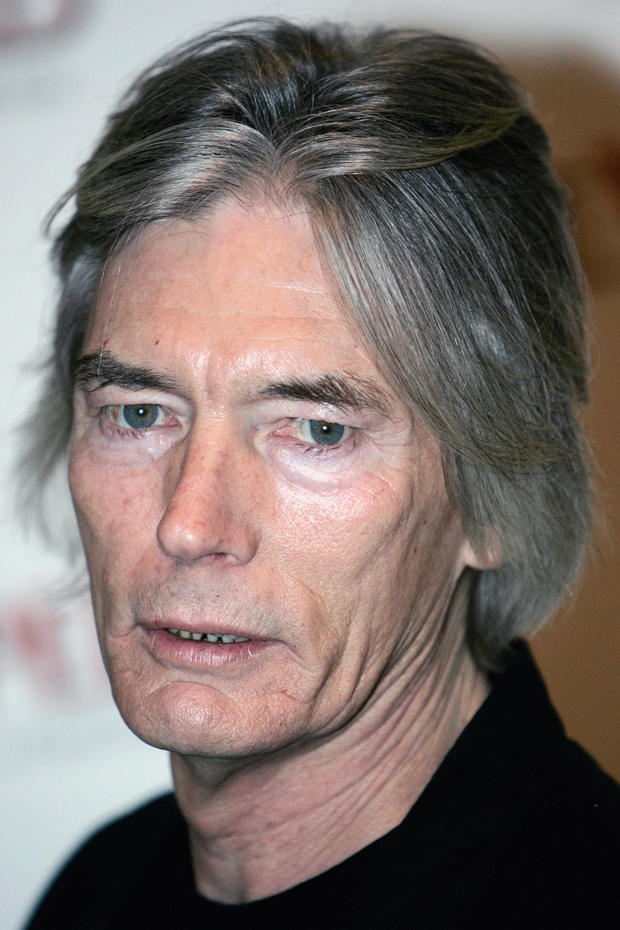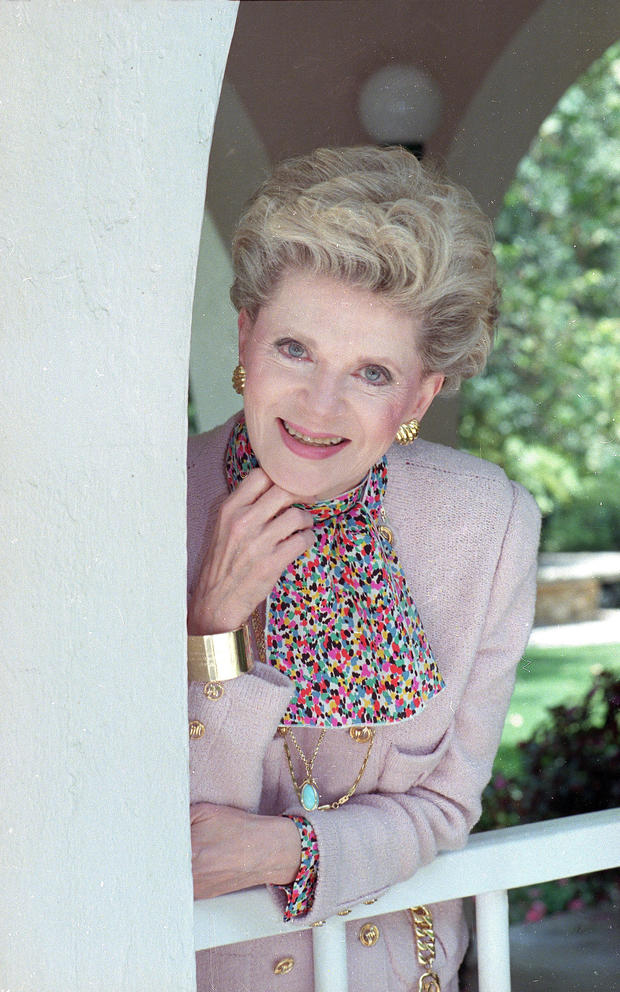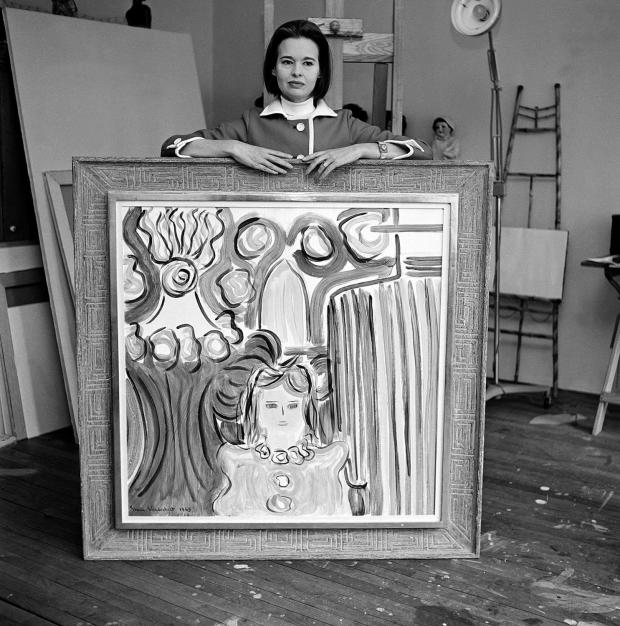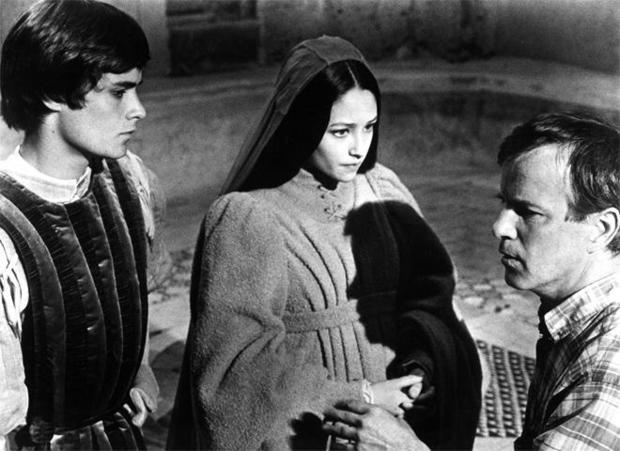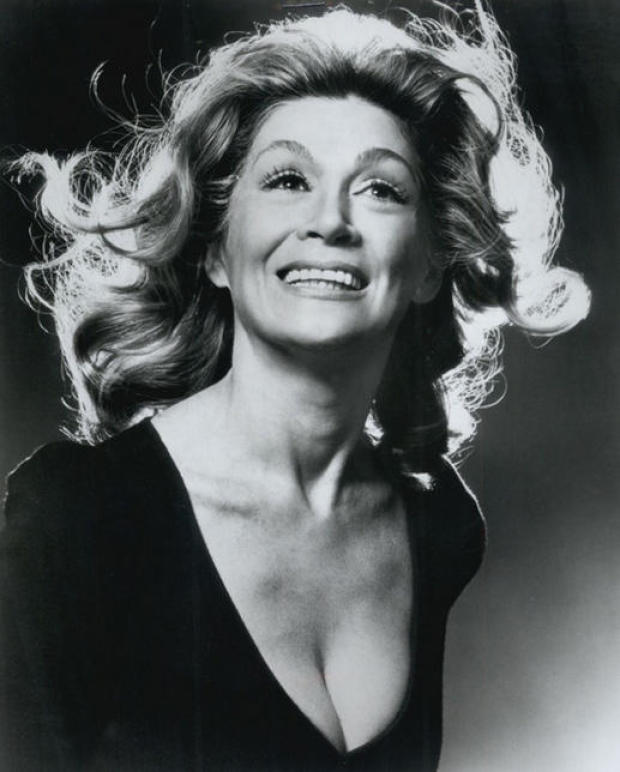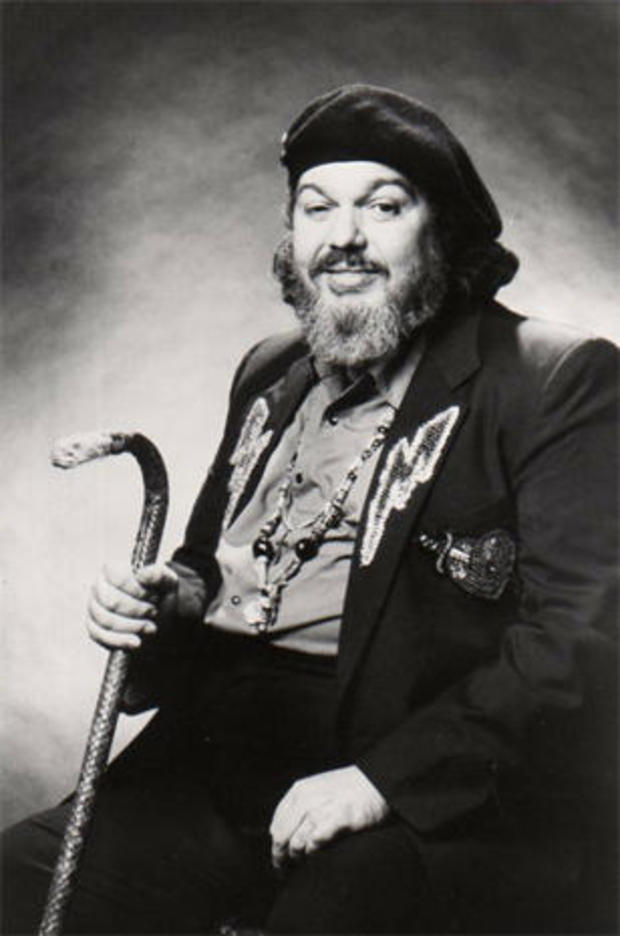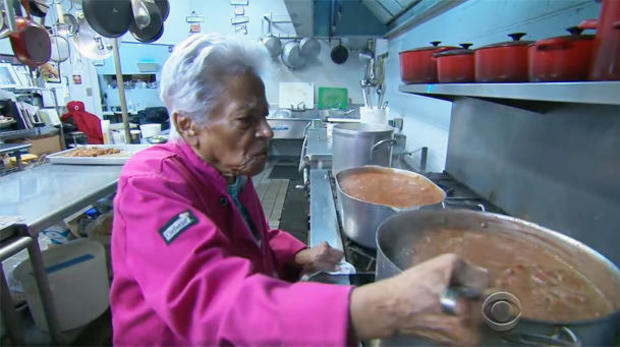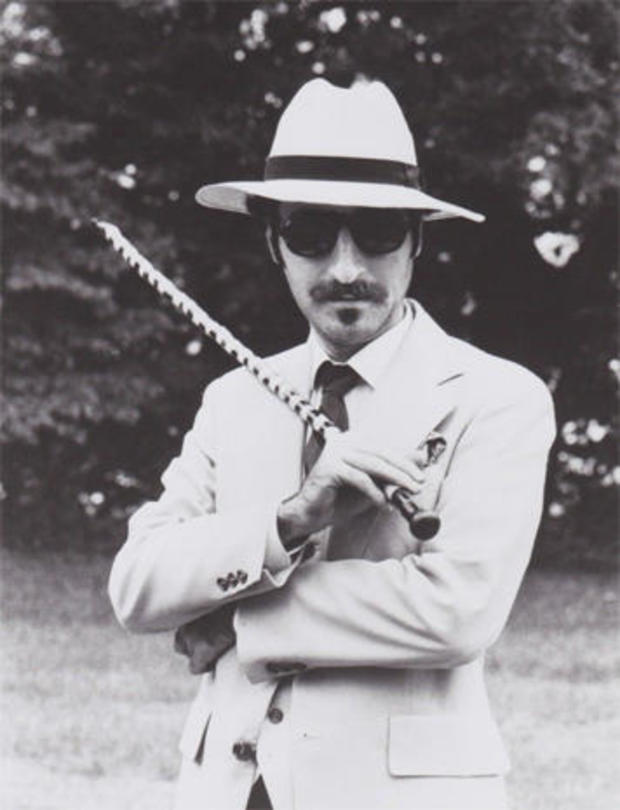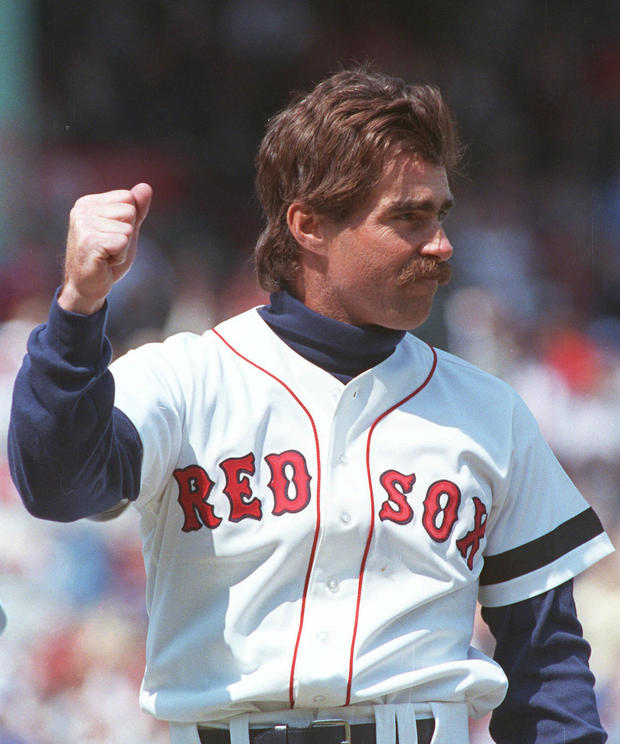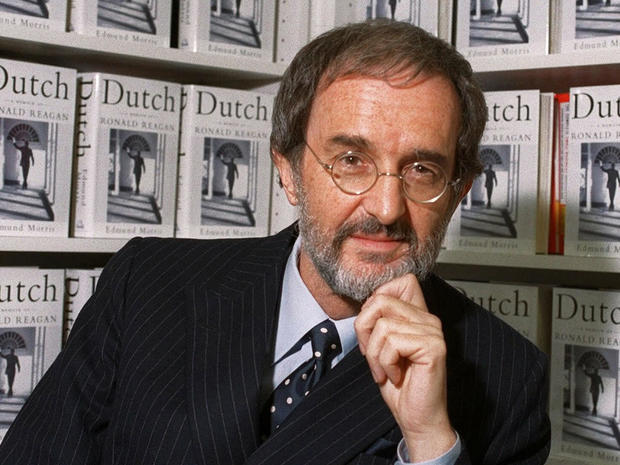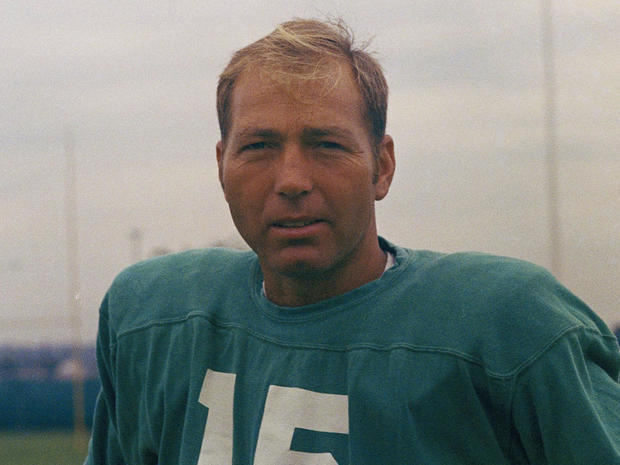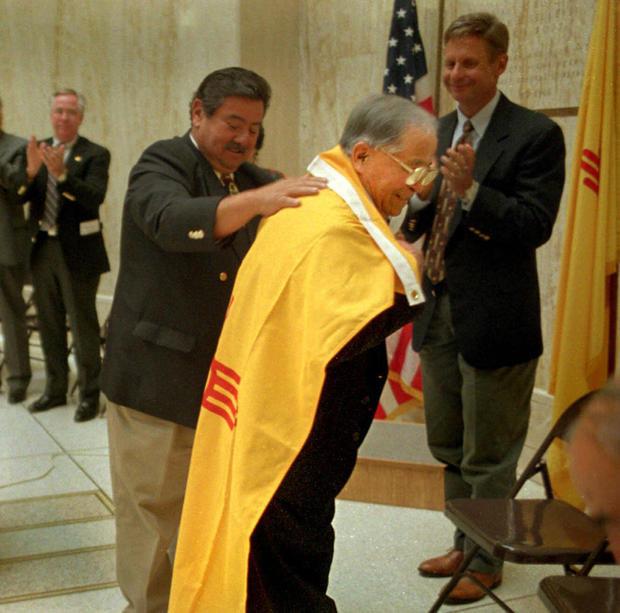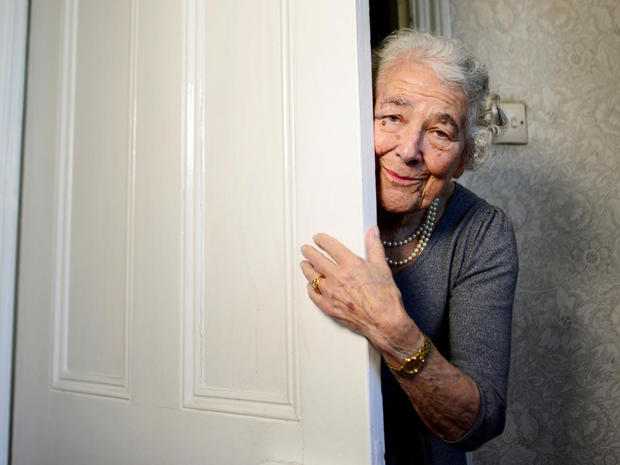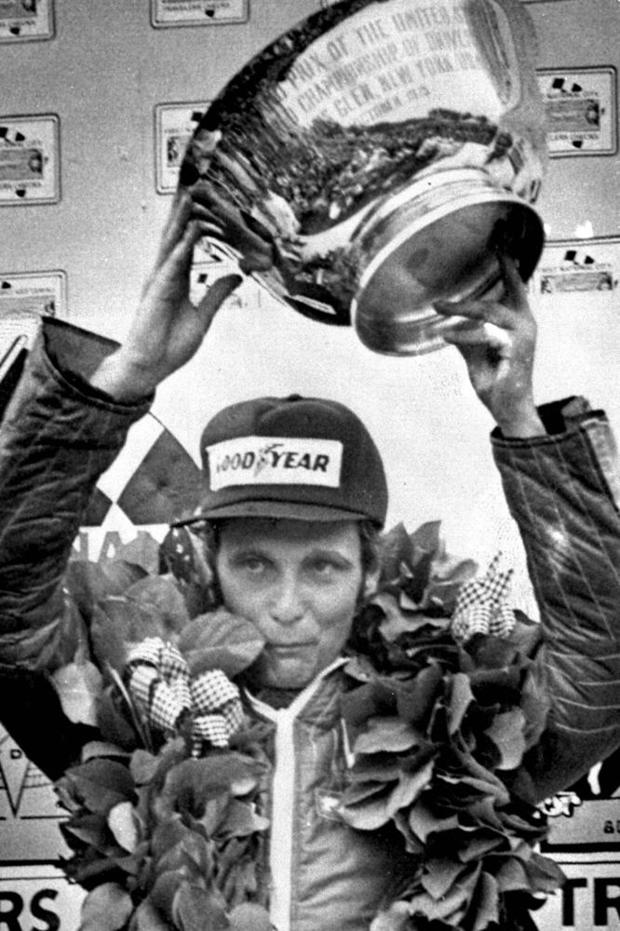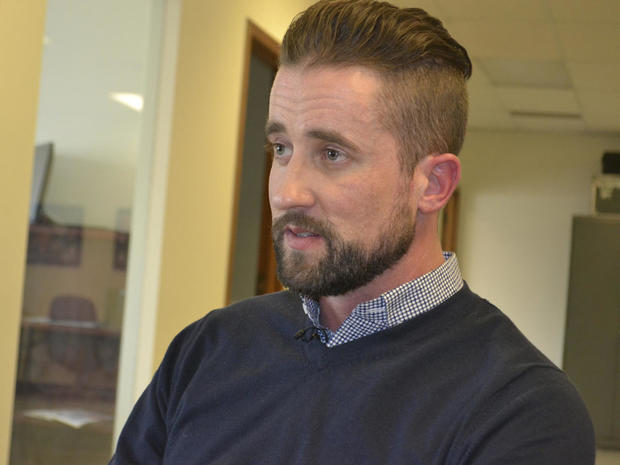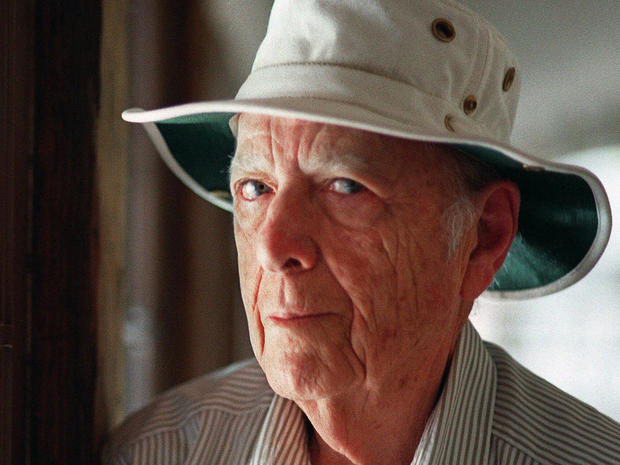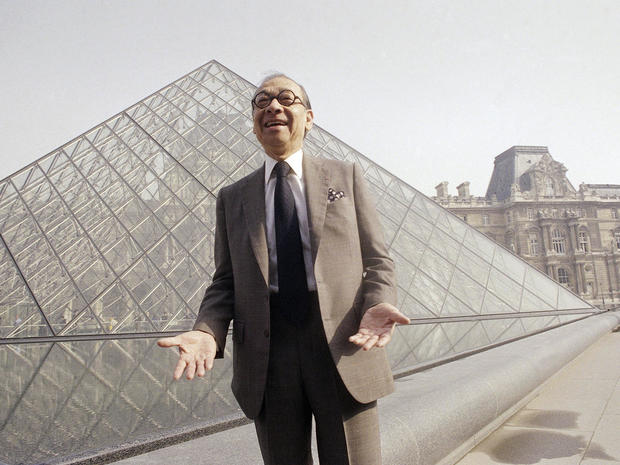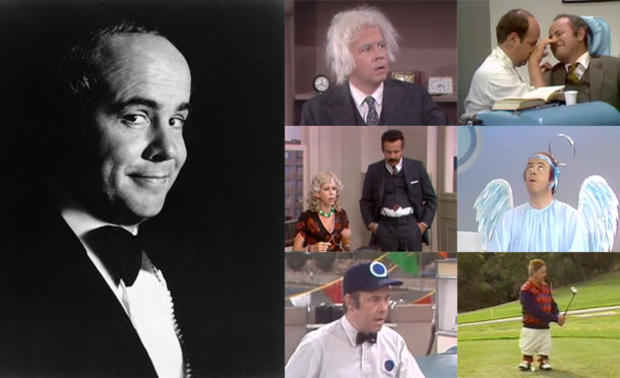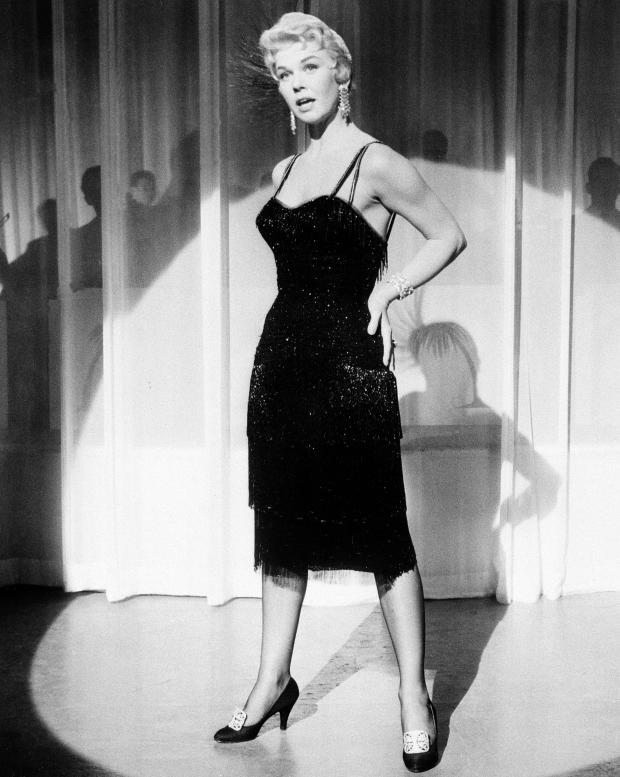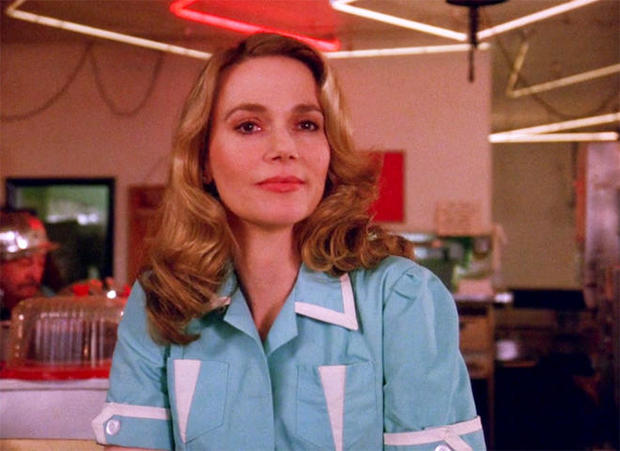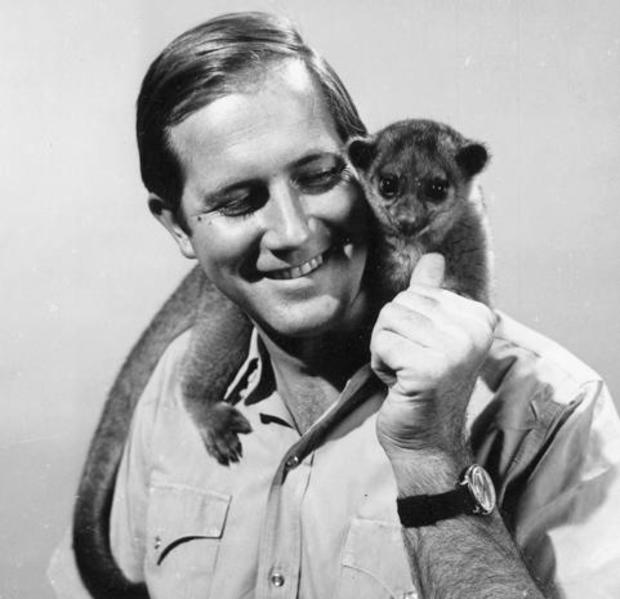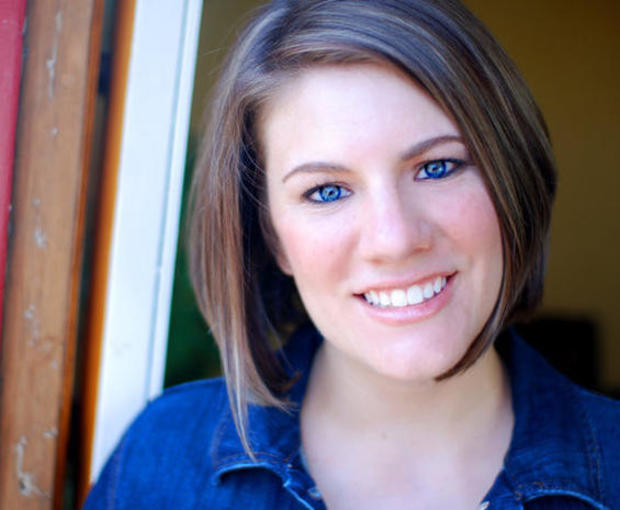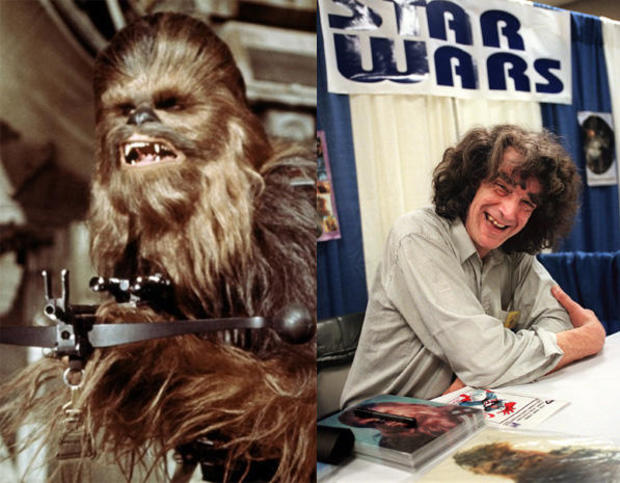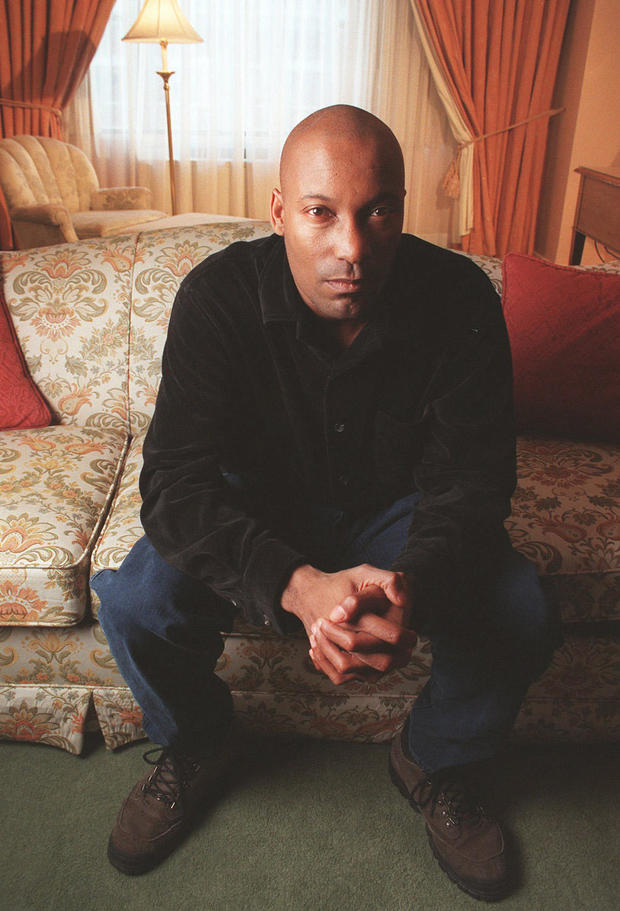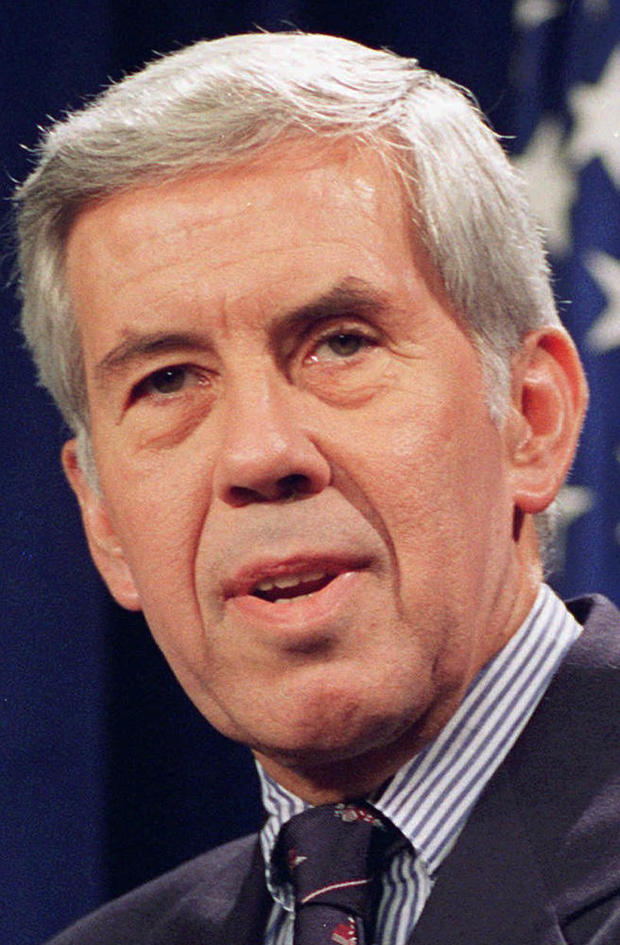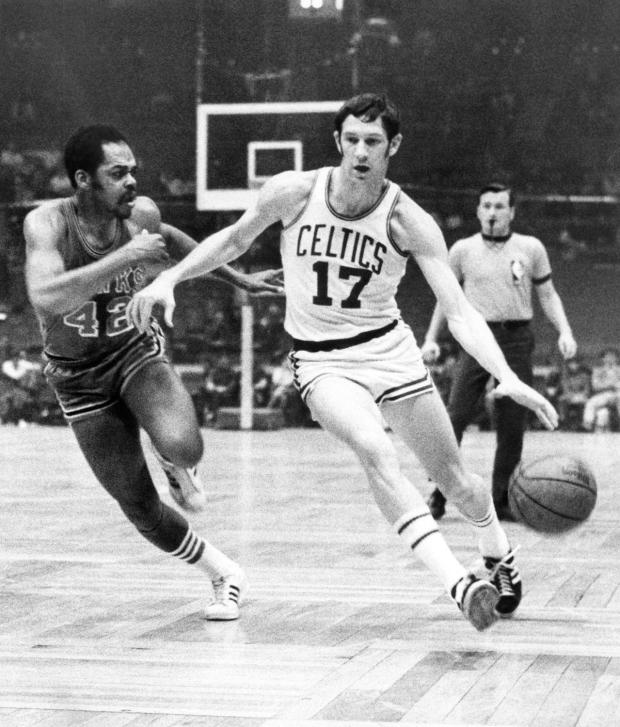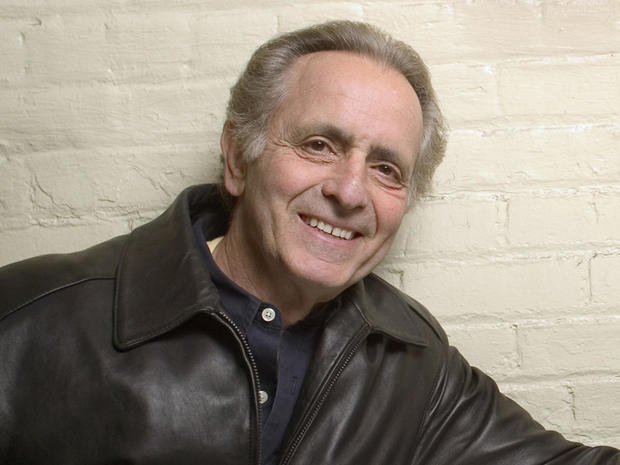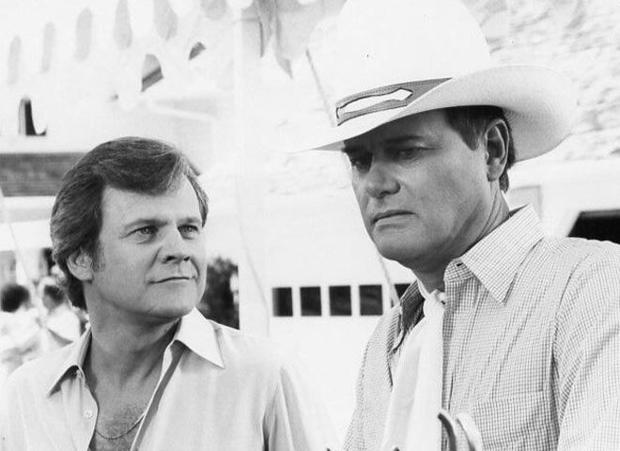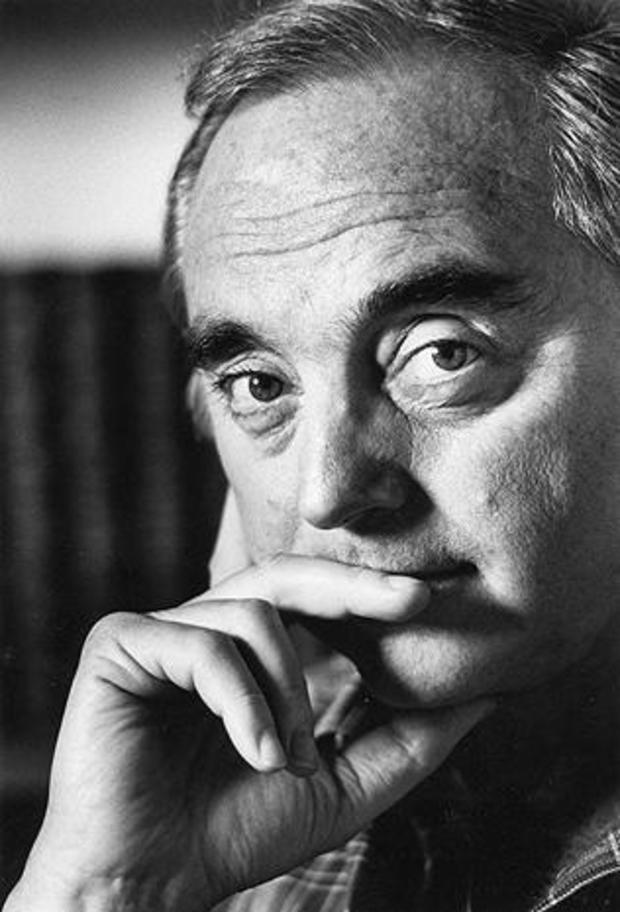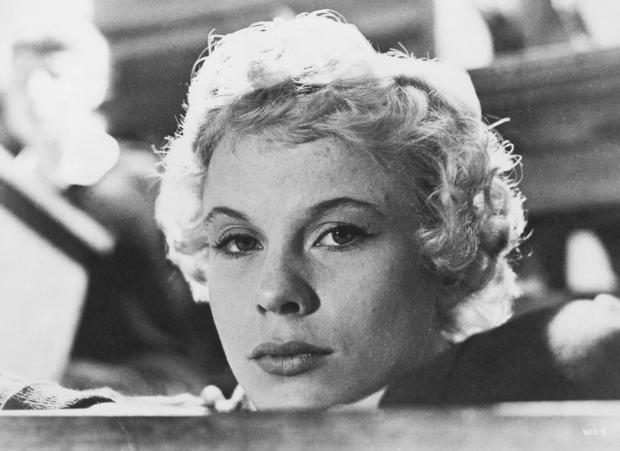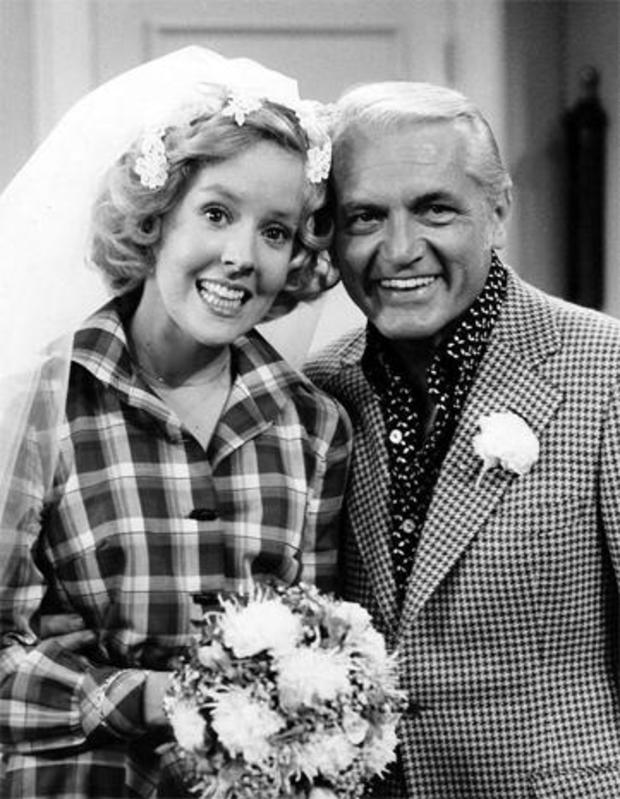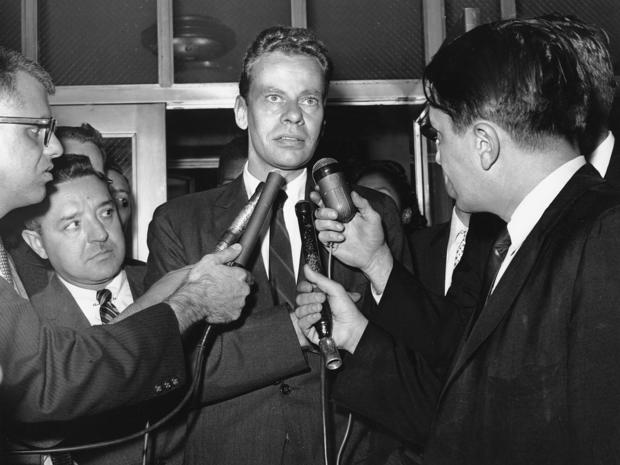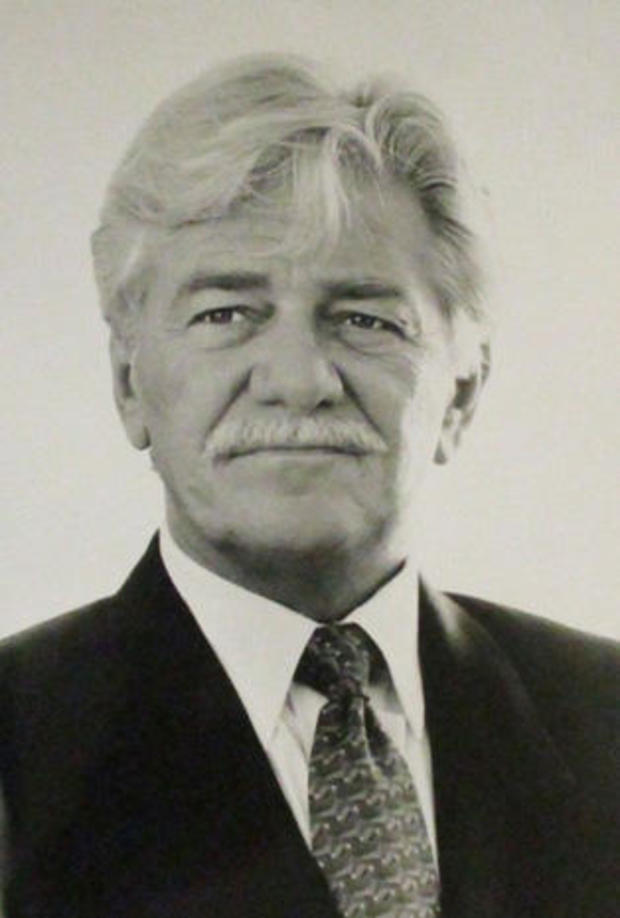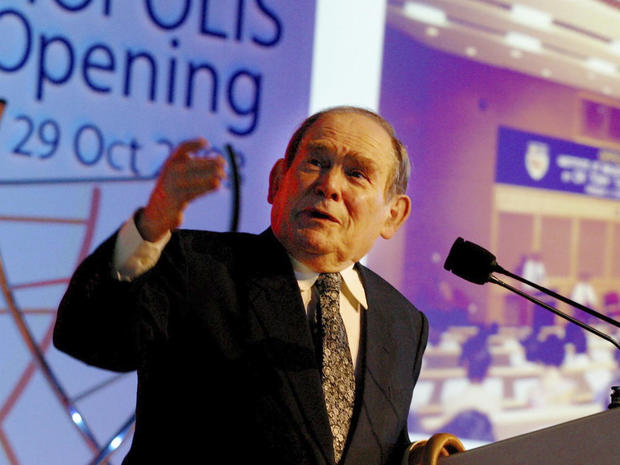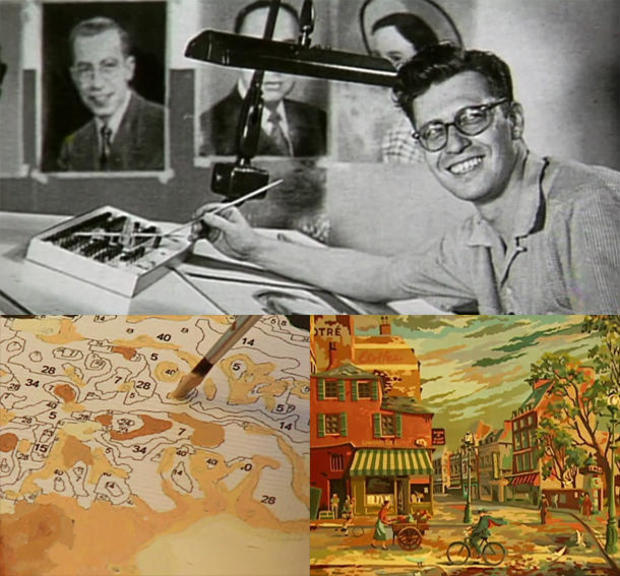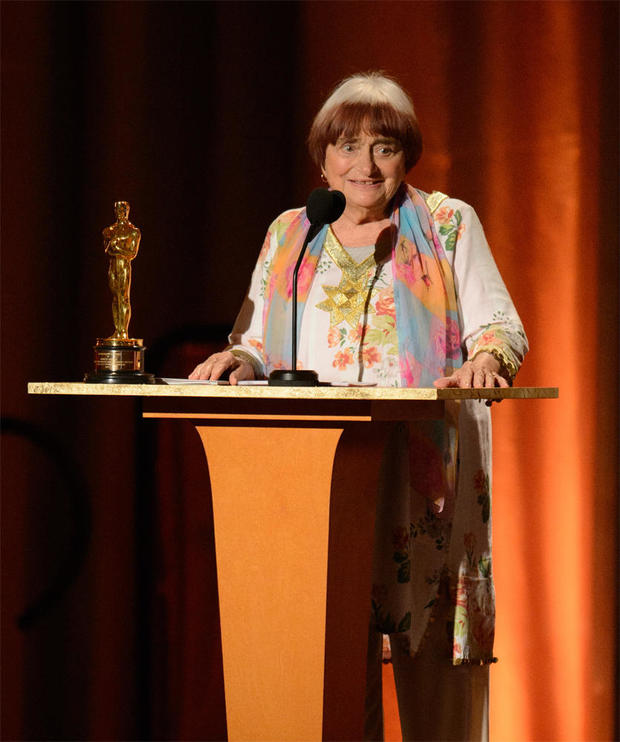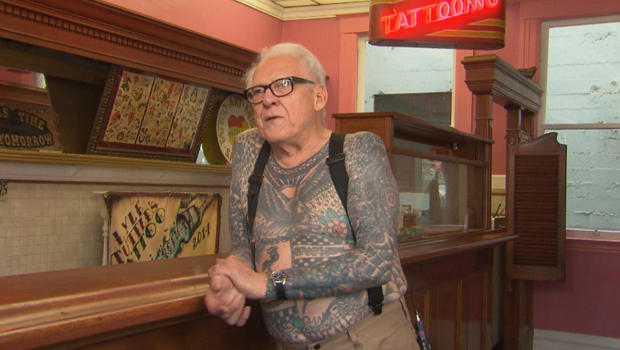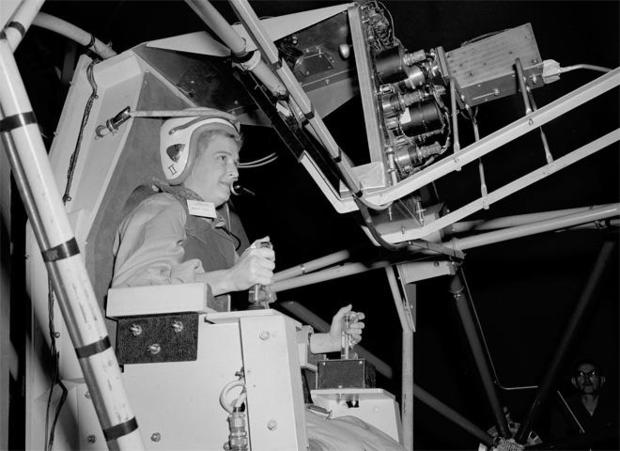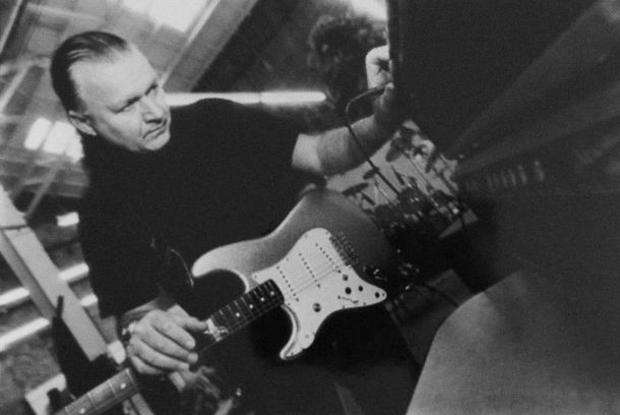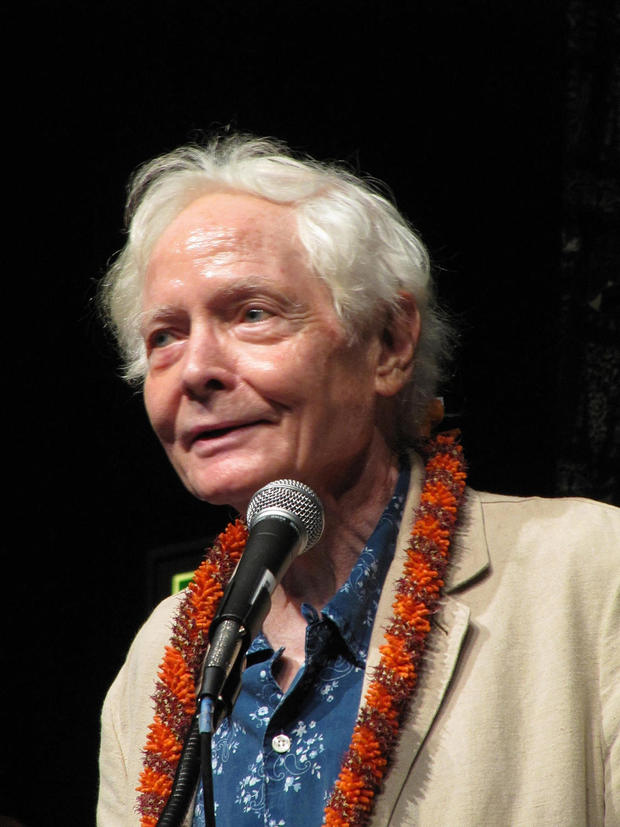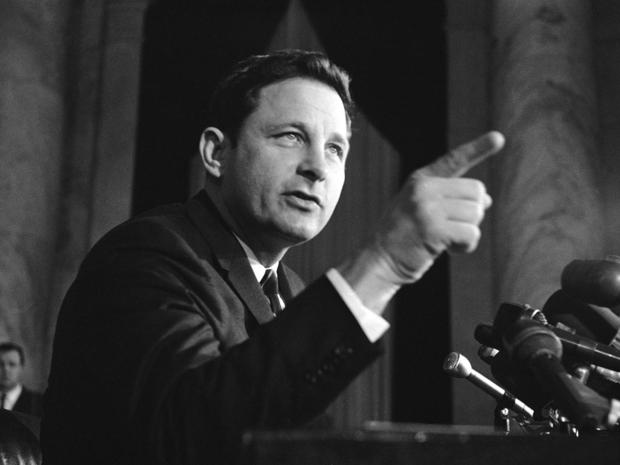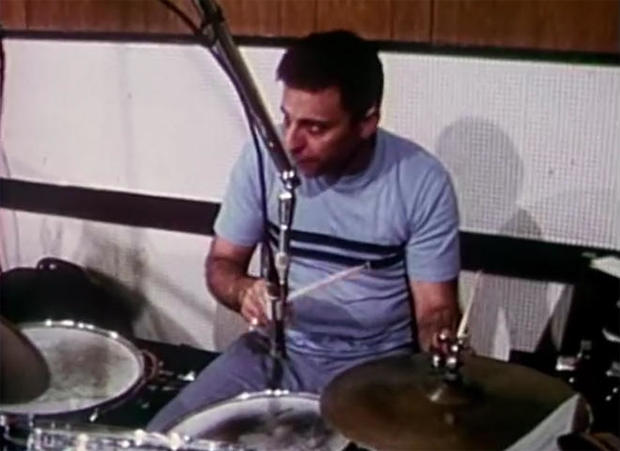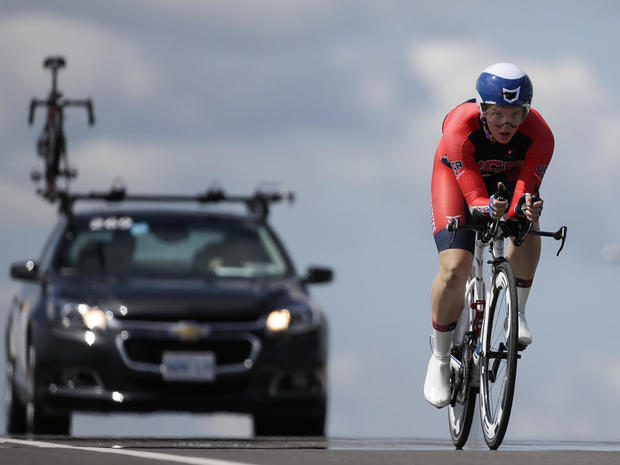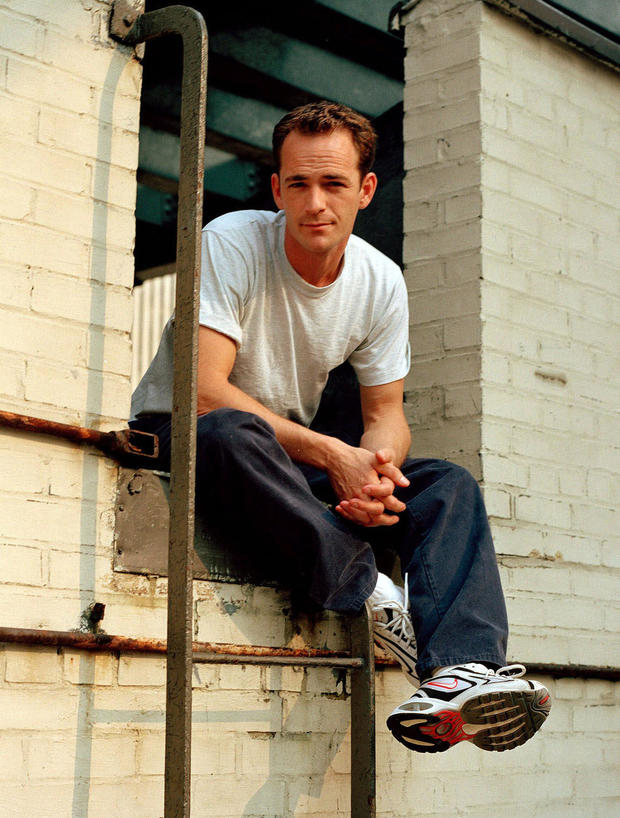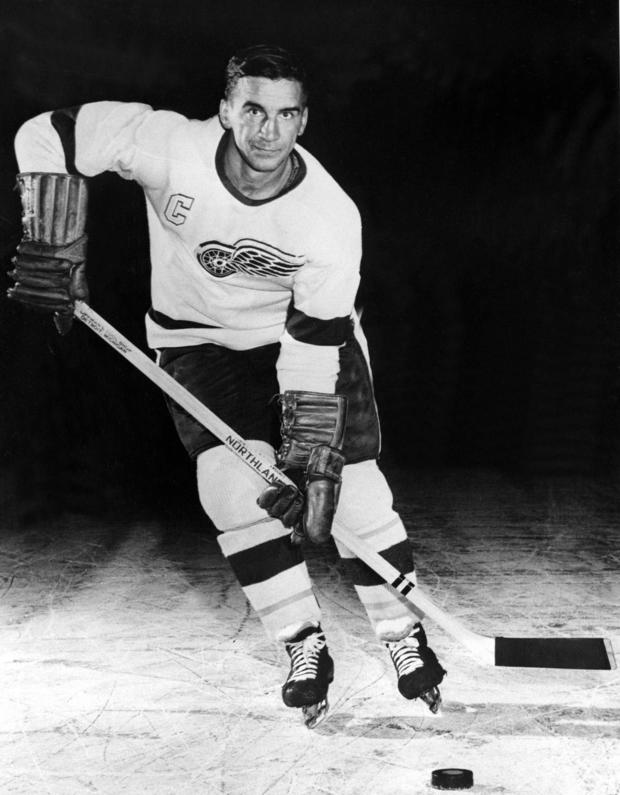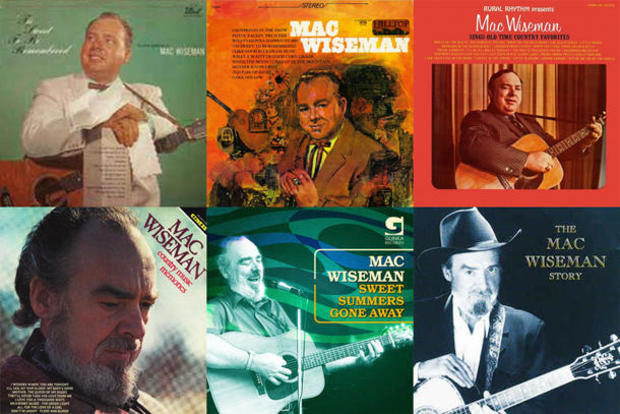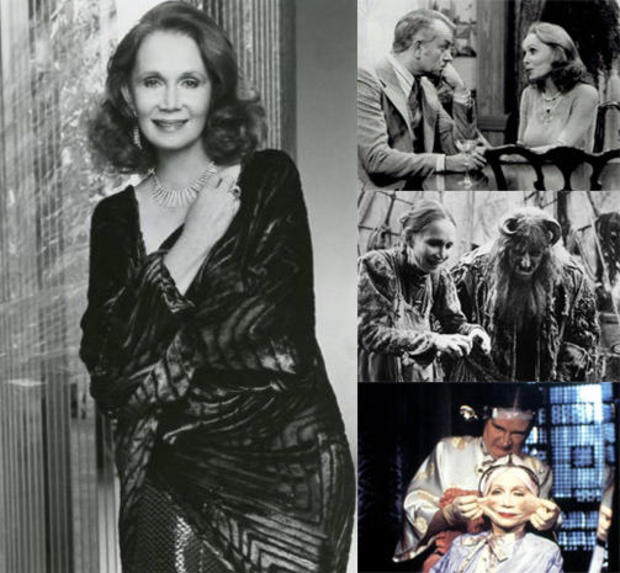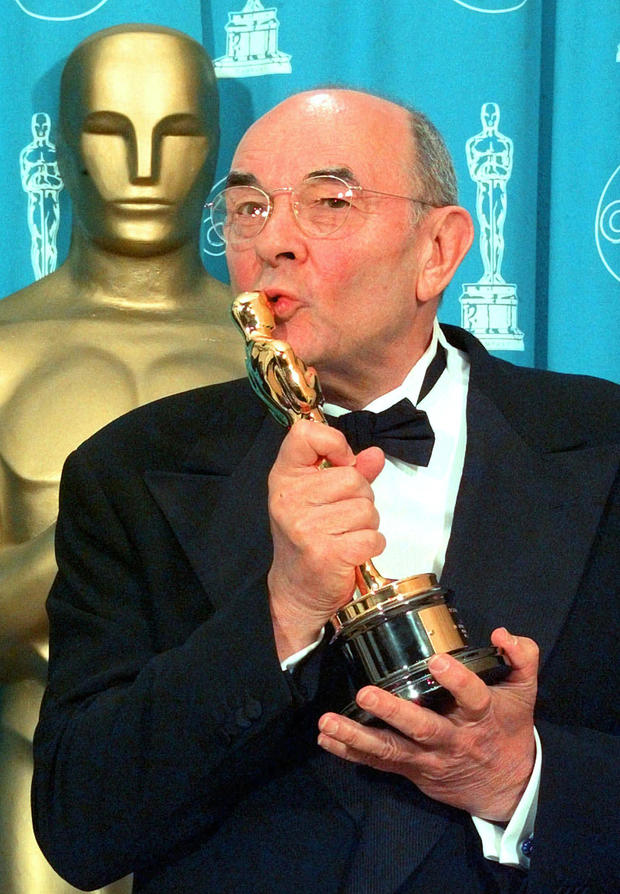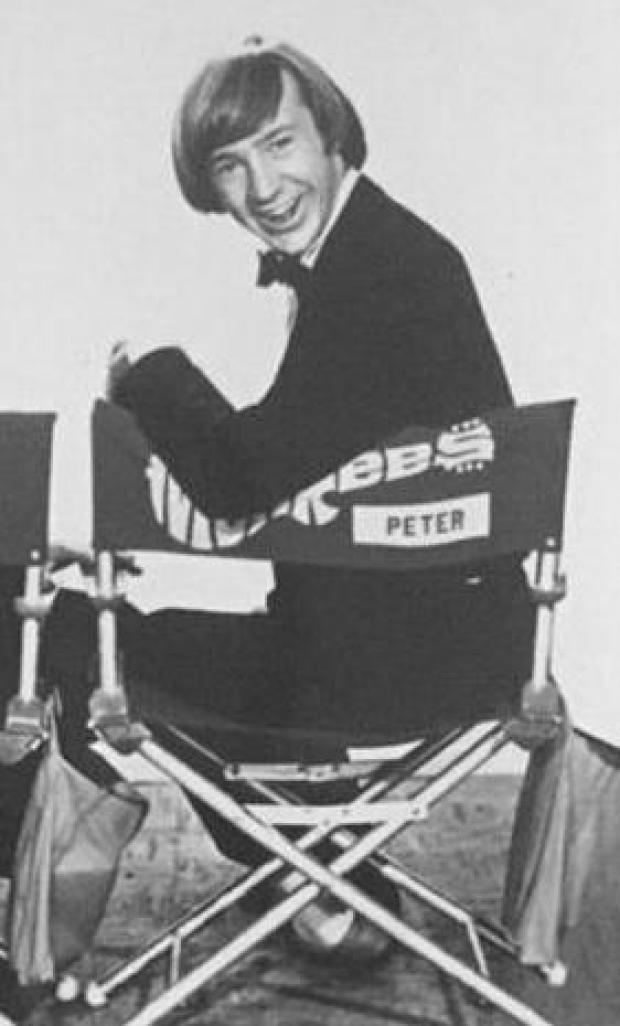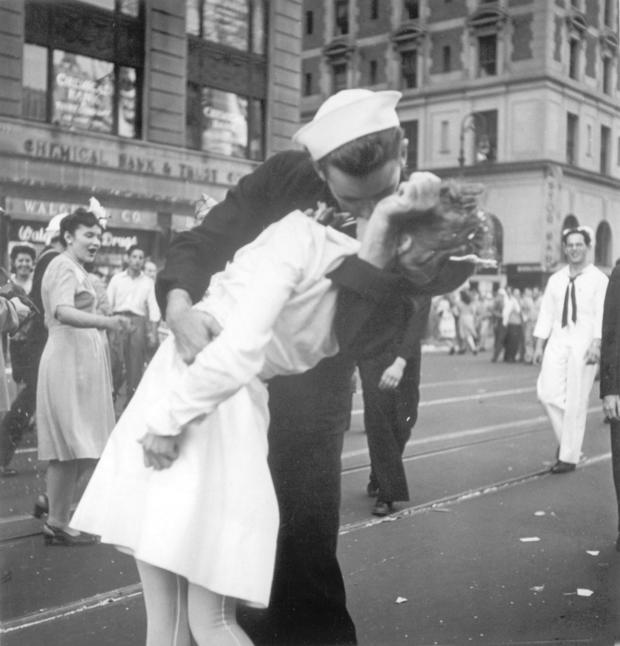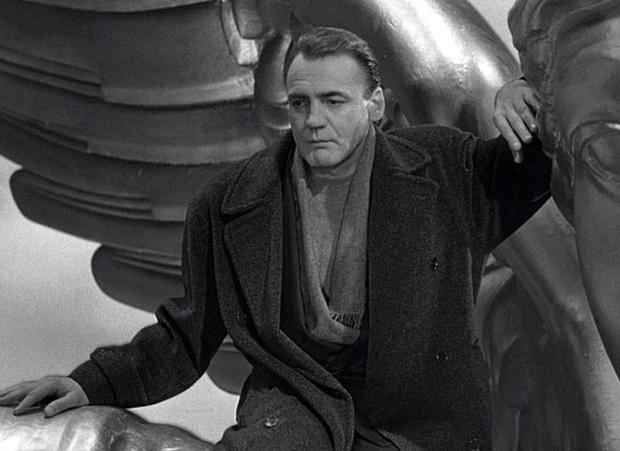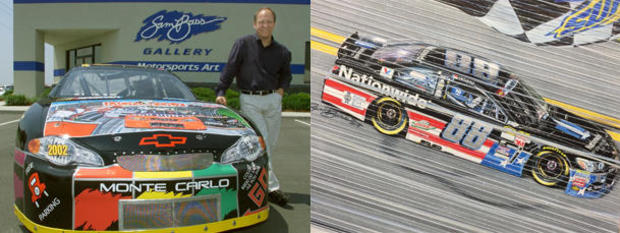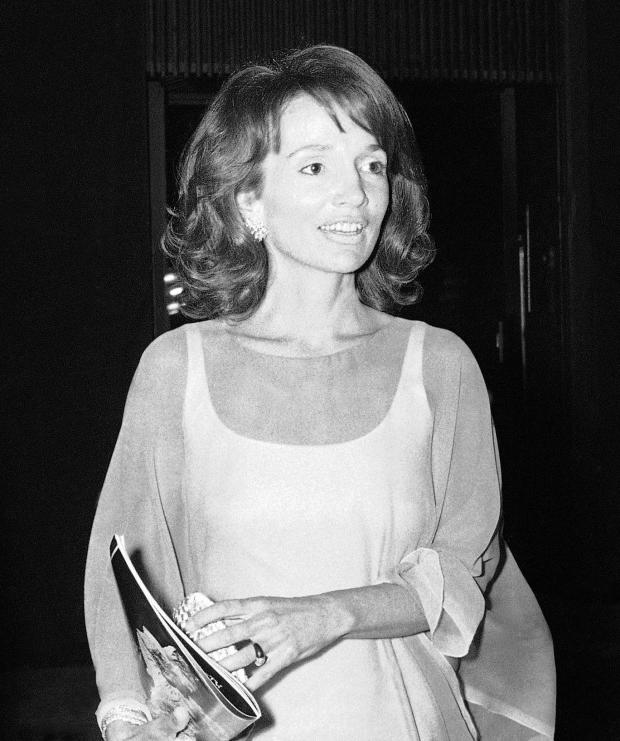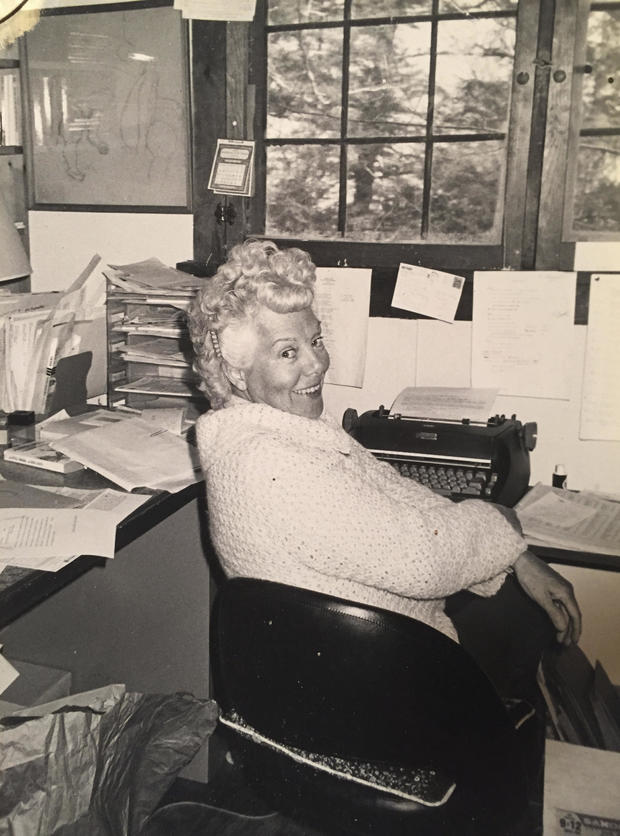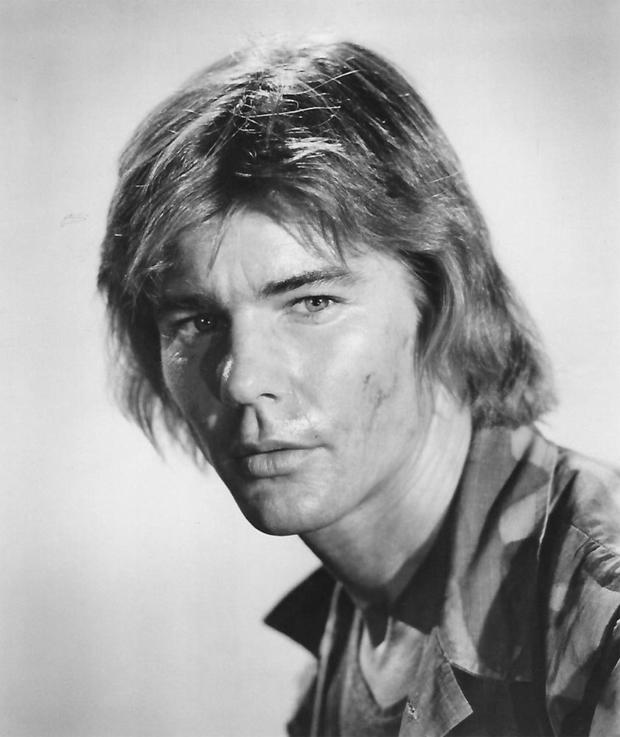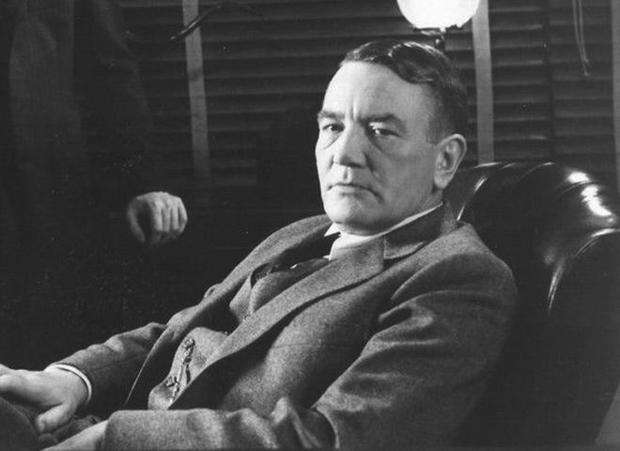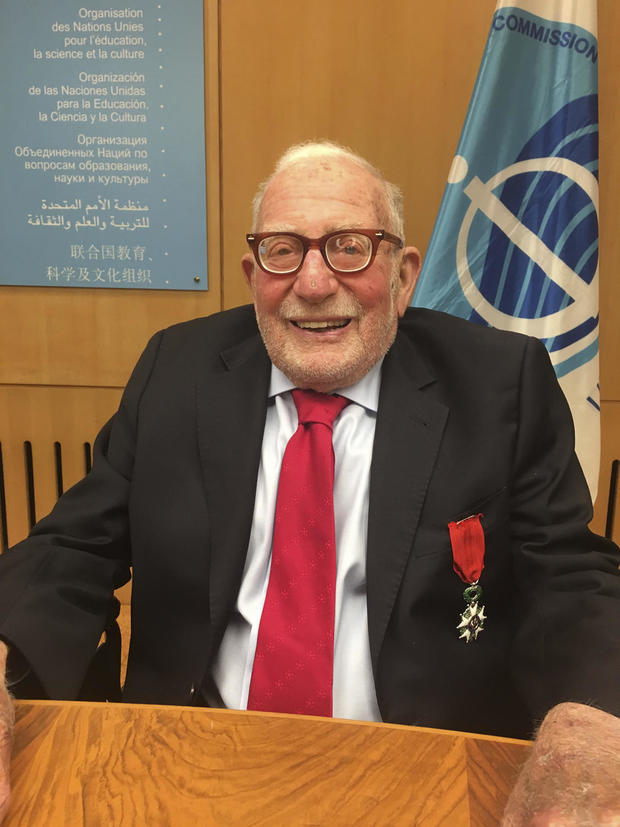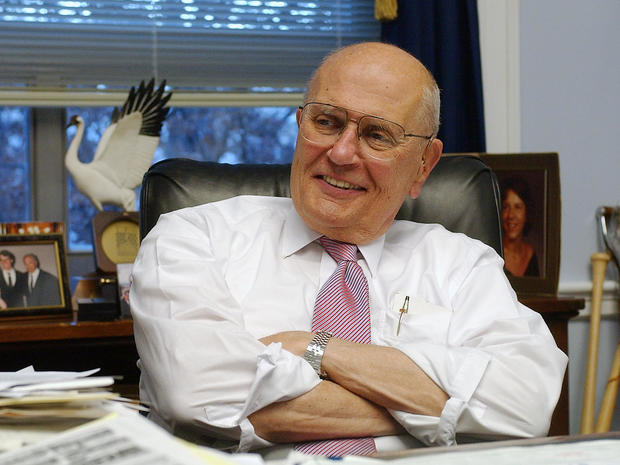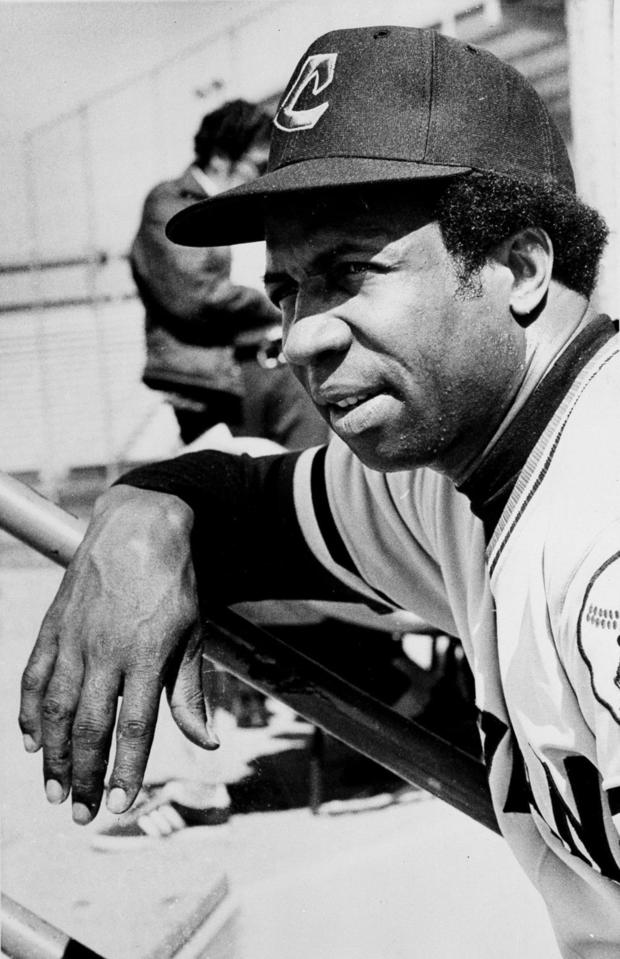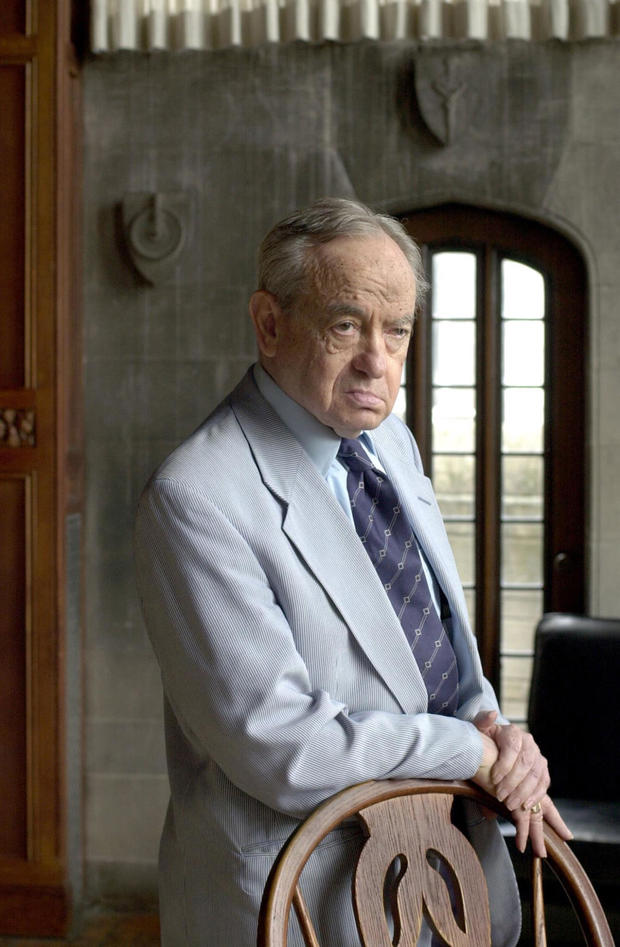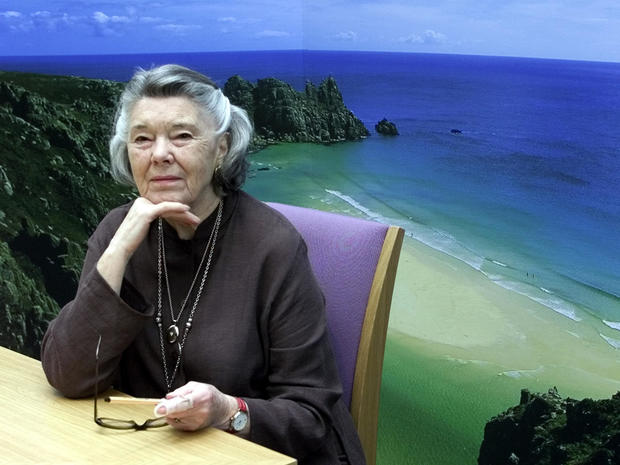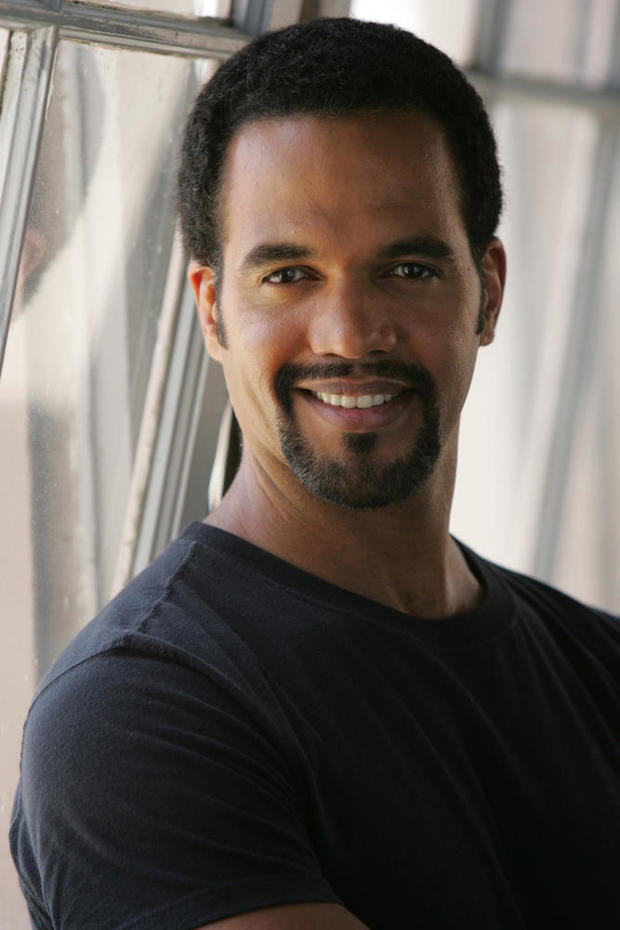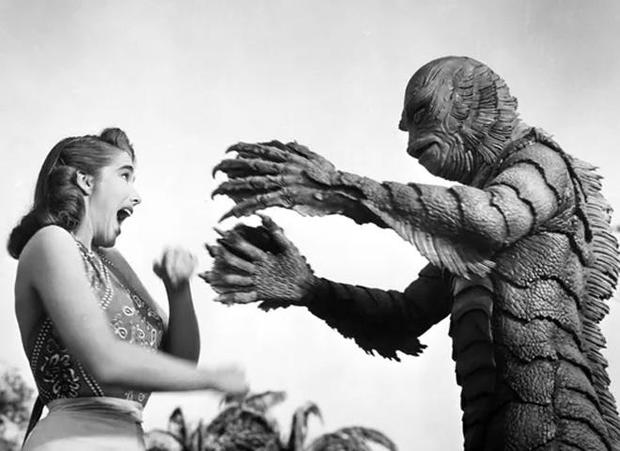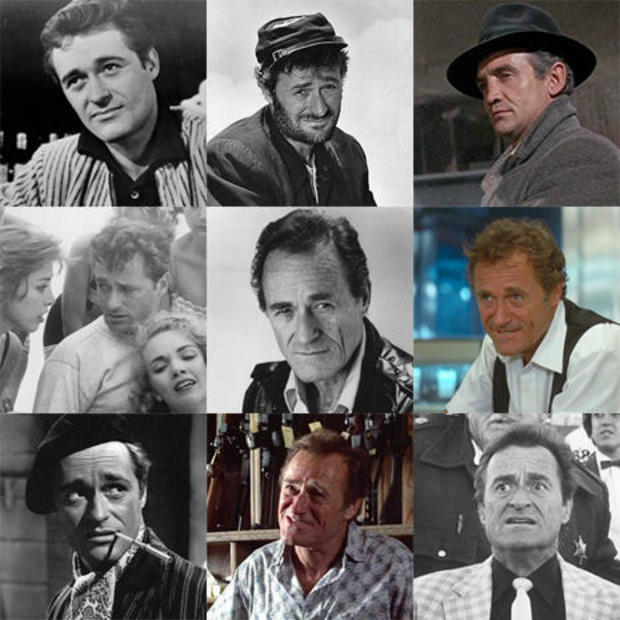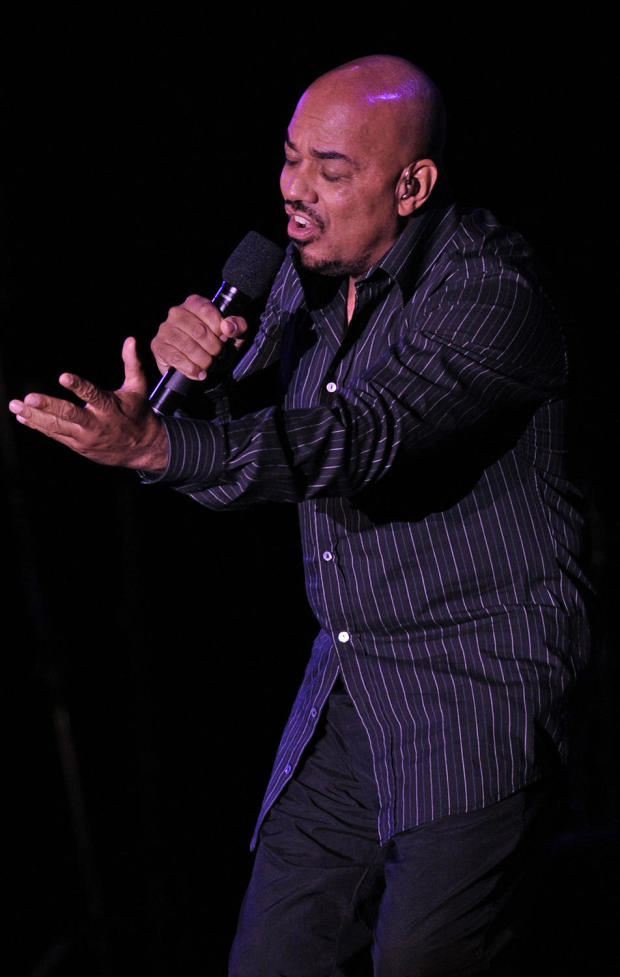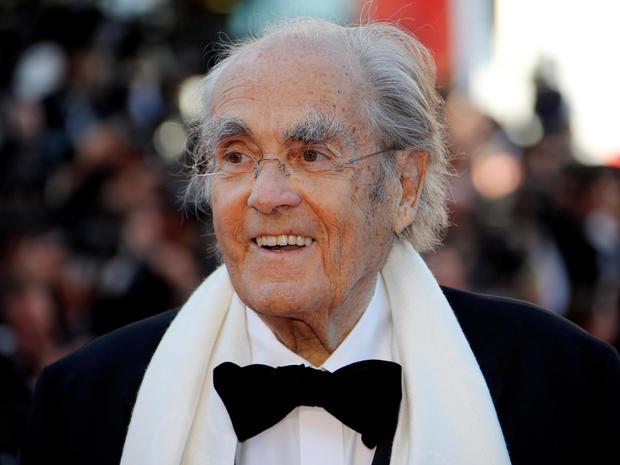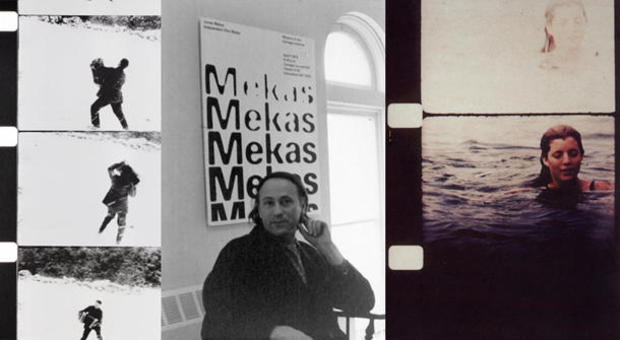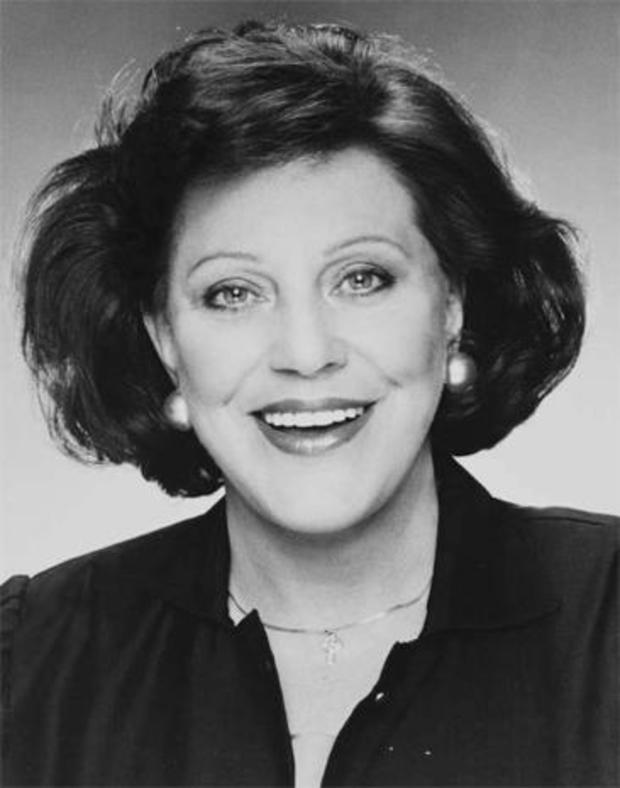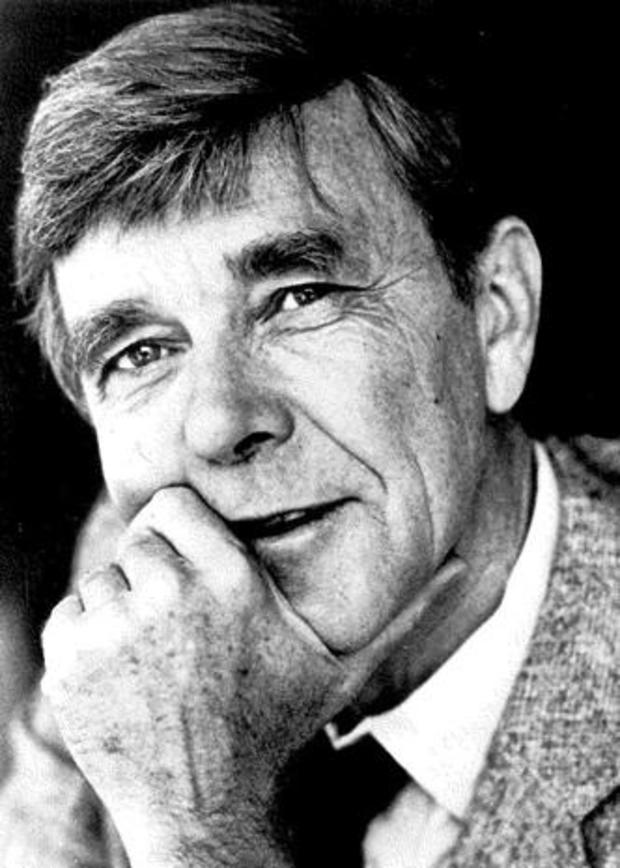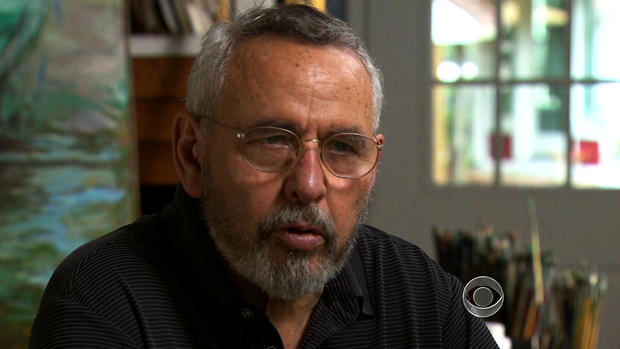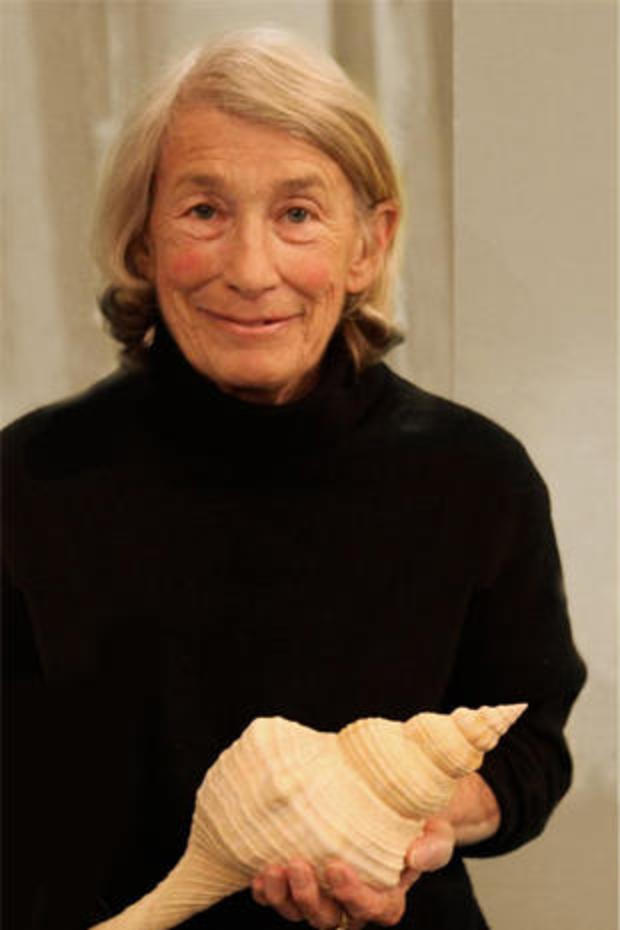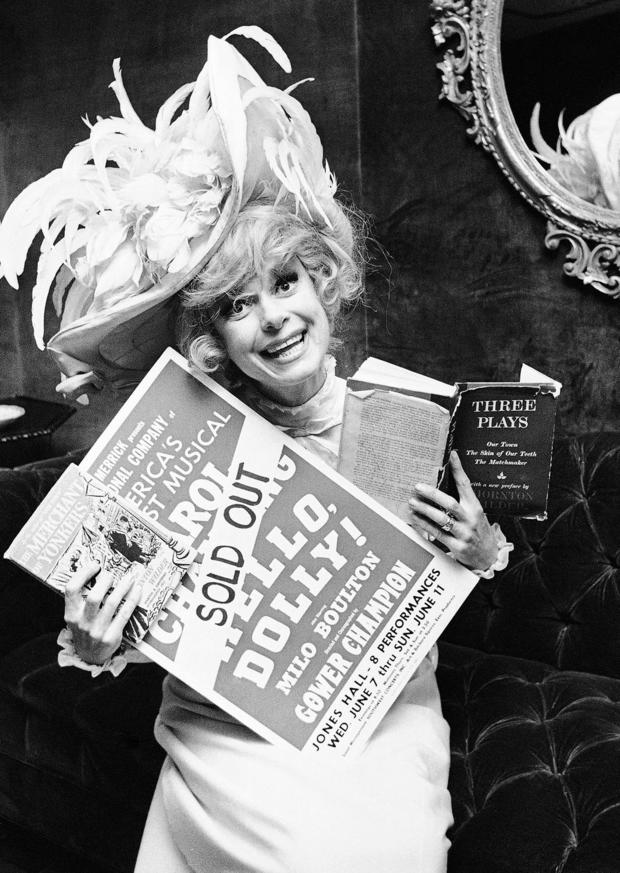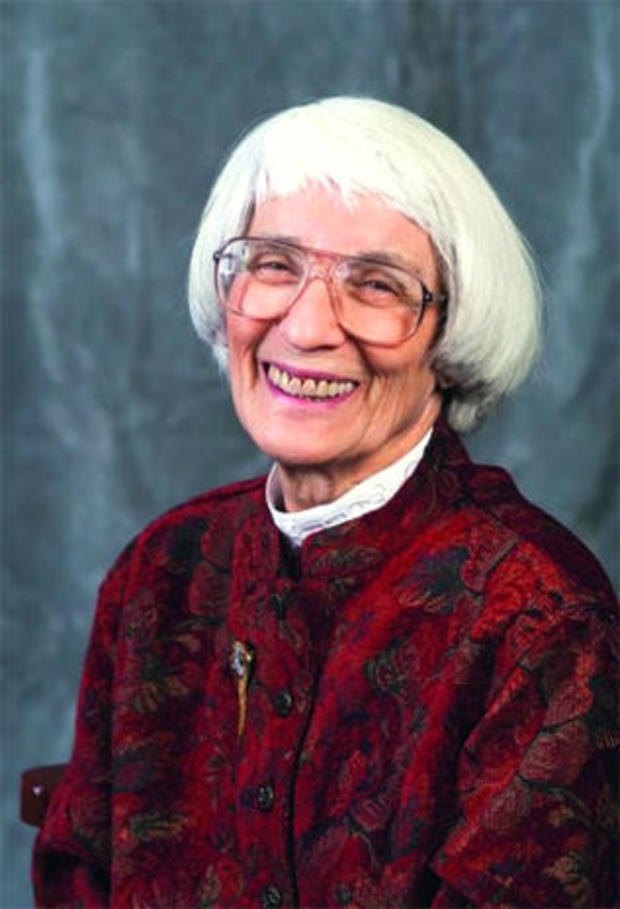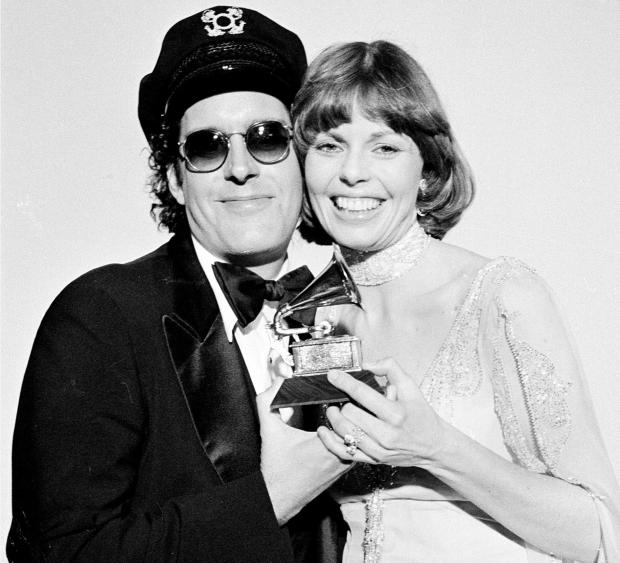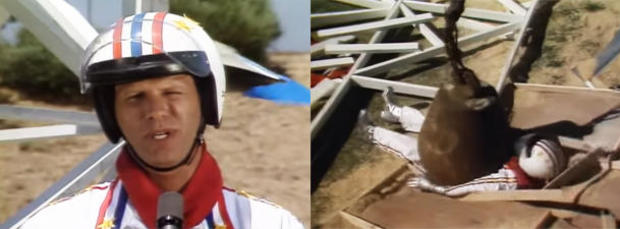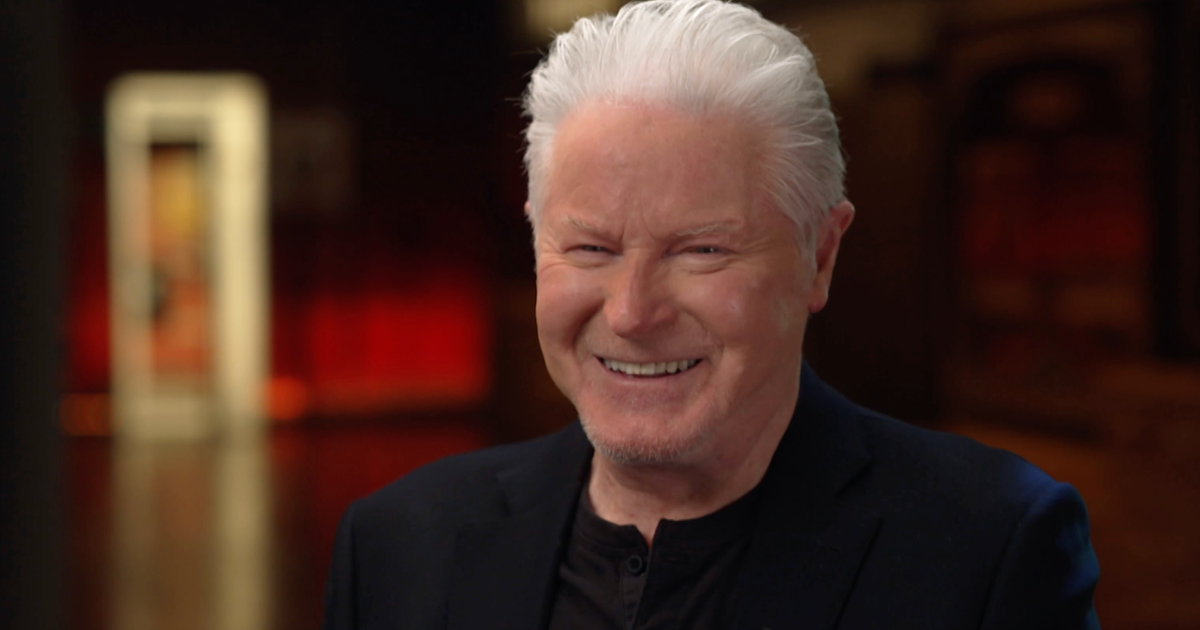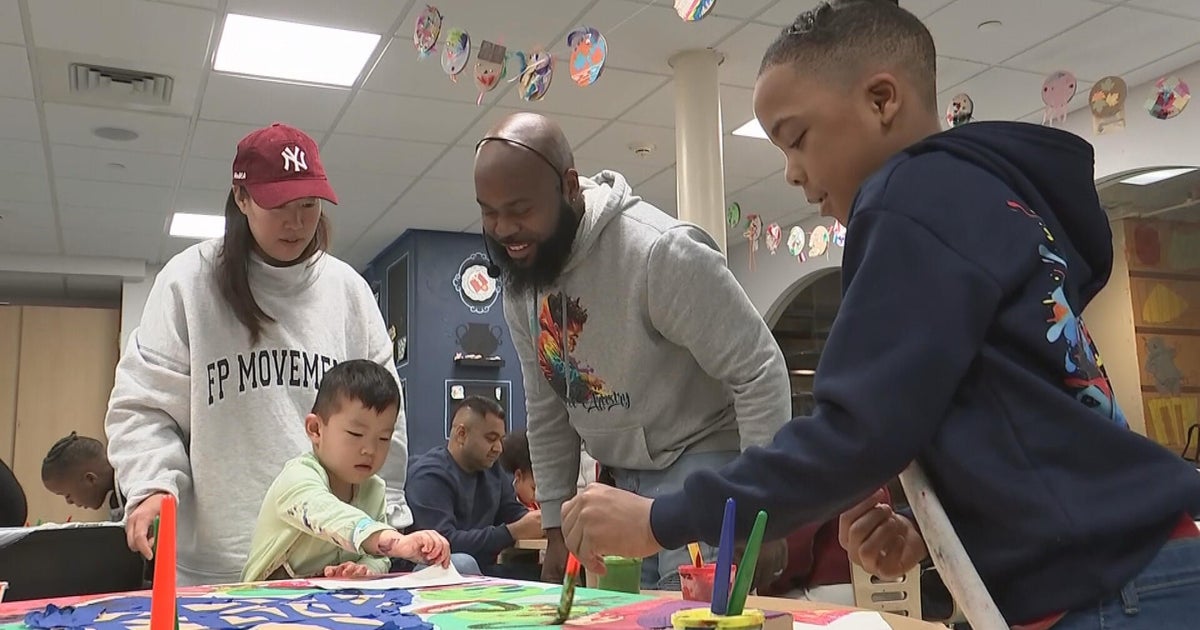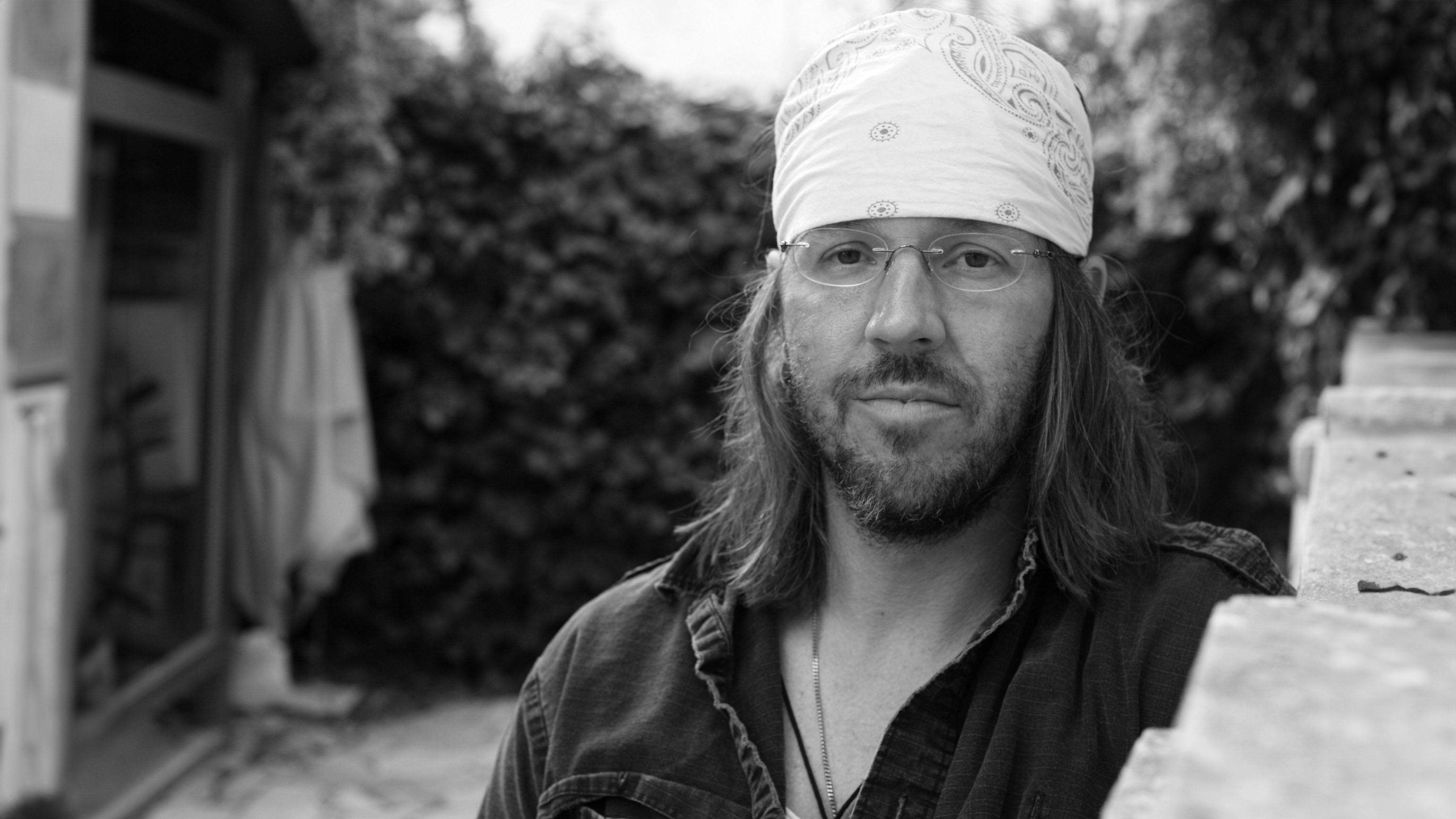Notable deaths in 2019
A look back at the esteemed personalities who left us this year, who'd touched us with their innovation, creativity and humanity.
By CBSNews.com senior producer David Morgan. The Associated Press contributed to this gallery.
An accomplished publisher and editor since his mid-20s, in 1987 Sonny Mehta (November 9, 1942-December 30, 2019) became just the third editor-in-chief of Alfred A. Knopf in its 72-year history, and over the following decades fashioned a remarkable record of critical and commercial success, from prize-winning literature by Toni Morrison and Cormac McCarthy, to blockbusters such as "Fifty Shades of Grey," "Jurassic Park," and "The Girl With the Dragon Tattoo."
The bearded, chain-smoking Mehta spoke carefully and chose wisely, helping Knopf thrive even as the industry faced the jarring changes of corporate consolidation, the demise of thousands of independent stores, and the rise of e-books.
Knopf's stable of authors included Gabriel Garcia Marquez, P.D. James, James Ellroy, John Updike, Kazuo Ishiguro, Alice Munro, and Don Winslow. He published memoirs by President Bill Clinton, Katharine Hepburn and Andre Agassi, Robert Cato's biographies of Lyndon B. Johnson, and humor by Nora Ephron.
While a young man in London, the Cambridge University graduate helped launch the literary career of his college friend Germaine Greer, and introduced British readers to the writing of Hunter S. Thompson. With Pan Books, he released works by rising authors such as Ian McEwan and Salman Rushdie, while signing up Jackie Collins, Douglas Adams and other bestsellers.
"On a good day, I am still convinced I have the best job in the world," Mehta told Vanity Fair in 2016, explaining that he had recently finished a novella by Graham Swift. "I opened it and didn't know what to expect, and I read it in one sitting right here in the office, utterly mesmerized. Sometimes you find something new and you just say, 'Wow.'"
Syd Mead
Syd Mead (July 18, 1933-December 30, 2019) worked as a car designer for the Ford Motor Company before becoming a freelance illustrator, designing technology and drafting architectural renderings for a variety of companies, from Sony and Minolta to Intercontinental Hotels and U.S. Steel. His work began to attract Hollywood producers, and he was recruited to help design the look of science fiction environments.
Calling himself a "visual futurist," Mead's concept art offered evocative designs for transports, cityscapes and spacecraft for such films as "Star Trek: The Motion Picture," "Tron," "Aliens," "2010," "Timecop," "Short Circuit," "Mission to Mars," "Mission: Impossible III," "Elysium," and "Tomorrowland."
His signature film project was 1982's "Blade Runner," for which he was hired to design transports, including the flying police cars. He decided to illustrate entire cityscapes, and director Ridley Scott and production designer Lawrence Paull took them on board for their dystopian vision of Los Angeles in the year 2019. He returned for the recent sequel, "Blade Runner 2049."
In 2011 he told NPR that all of his designs expand upon advances currently being made in technology: "You start with that technology leap, or possibility, and then you design around that. To me, science fiction is reality ahead of schedule."
Neil Innes
"I've suffered for my music. Now it's your turn"
Writer, comedian and singer-songwriter Neil Innes (December 9, 1944-December 29, 2019) originally came to fame as a member of the Bonzo Dog Doo-Dah Band (which he formed with fellow art school student Vivian Stanshall), a mirthful British group whose 1969 album "Tadpoles" included the song "I'm the Urban Spaceman." Their appearance as the house band for the British TV comedy series "Do Not Adjust Your Set" in 1968 would connect Innes with future members of the Monty Python comedy troupe.
His particular bent – melodically strong and lyrically zany – made him an effective collaborator to the Pythons, joining their stage shows and record albums (one popular tune was "How Sweet to Be an Idiot"), and appearing in their movies, including "Monty Python and the Holy Grail" (as the leader of Sir Robin's minstrels, who sang about gruesome fates).
One of his greatest successes grew out of the TV series "Rutland Weekend Television," created with Python's Eric Idle, in which they memorably crafted a parody of The Beatles, called The Rutles ("a legend that will last a lunchtime"), a band which became the subject of a faux-documentary for NBC. Innes' delightful song parodies of Beatles favorites (collected on a Grammy-nominated soundtrack album) were more than just joyous pastiches, though he was hauled into court accused of plagiarism. They became a tribute band of sorts, and were revived for their send-up the Beatles' "Anthology" collection, called "Archaeology."
PLAY EXCERPT: "How Sweet To Be an Idiot"
PLAY EXCERPT: The Rutles sing "Ouch!"
As he told The AV Club in 2011, "You put the Bonzo CD on your iTunes, which I've done recently because I thought I'd get it all together on my notebook, and it comes up as 'Unclassified.' I'm rather pleased about it."
Sue Lyon
At age 14, Sue Lyon (July 10, 1946-December 26, 2019) was picked to play the title role in Stanley Kubrick's adaptation of a Vladimir Nabokov novel, none other than "Lolita," about a middle-aged professor's erotic obsession over a 12-year-old girl. Described by the director as the "perfect nymphet," Lyon won the part over some 800 other girls, despite only a couple of TV credits to her name. Lyon won a Golden Globe Award for her performance in the film, which costarred James Mason, Peter Sellers and Shelley Winters.
She continued to act for about 20 years, with film credits including "Night of the Iguana" (co-starring Richard Burton), John Ford's "7 Women," "Tony Rome," "Four Rode Out," "Evel Knieval," and the 1980 horror film "Alligator."
Speaking in 1987 of her experience on promotion tours for her early movies, Lyon said, "This is not my idea of a good time. I hate the spotlight. I hate people looking at me, I don't like strangers asking me questions. I like to be left alone, really."
She recounted a TV talk show appearance she did, at age 16, just two days after the death of her brother, when the interviewer began by asking if her brother had killed himself because she'd played Lolita. "I didn't say a thing. I got up, and I walked out, I couldn't even dignify that with, you know, 'Don't you have good sense, sir?' I had no words. And that's typical of the reasons that I can't be a movie star. I never could."
Little was reported of her post-acting career, though she was said to have been married five times, once to a convicted murderer sitting in prison.
Don Imus
For 50 years, Don Imus (July 23, 1940-December 27, 2019) was the flamethrower of morning drive-time radio, a provocateur as outrageous as he'd been influential. "I wasn't trying to be outrageous," he told "Sunday Morning" in 2018. "It's just the way I thought. My feeling was then, and is now, that if they didn't like what I did, get somebody else to do it. … I always had it in my head that I was talking to one person. I felt that when I walked in there and sat down and turned the mic on, that I was talking to you."
Raised on a ranch in Arizona, Imus aspired to be a singer, and even made some records with his brother, Fred. To get them radio play, he applied to be a DJ. That led to his first jobs in California, where he posed as a National Guard sergeant on air and ordered 1,200 hamburgers to go from McDonalds.
In less than three years, the irreverent young DJ had made it to WNBC in the number one market, New York. "I listened to what was on in New York and I thought, 'Man, this is gonna be easy!'" he laughed. He was an overnight sensation. In the '80s, "Imus in the Morning" evolved into a talk show, attracting the high and mighty. More than 100 stations syndicated his broadcast, and by 1997, Time magazine named him one of the most influential people in America.
In addition to his radio success, he also organized summer camps for kids suffering from cancer.
He told Anthony Mason he had a few regrets, including "the Rutgers thing," in which he'd criticized the hair of the university's women's basketball team. The remark cost him his syndicated radio show on CBS, and his TV show on MSNBC. "It did change my feeling about making fun of some people who didn't deserve to be made fun of, and didn't have a mechanism to defend themselves," he said.
But he was soon back on the radio, another comeback in a career full of resurrections.
Mason asked, "Why do you think that is?"
"I'm not full of sh*t," Imus replied. "If I've done it, I'll own up to it. And then I have some sorta weird relationship with the audience. I think they saved me most of the time."
Jerry Herman
Composer Jerry Herman (July 10, 1931-December 26, 2019) won two Tony Awards for Best Musical (for "Hello, Dolly!" and "La Cage aux Folles"), writing songs that were, in the words of Angela Lansbury, "bouncy, buoyant and optimistic."
Herman's love of musicals was born from attending a performance of Irving Berlin's "Annie Get Your Gun" at age 3. Back home he played several of the show's songs on the piano. He was playing piano in jazz clubs in New York when, in 1960, he made his Broadway debut, writing songs for the revue "From A to Z." The following year, his score for "Milk and Honey" earned him his first of eight Tony nominations.
In 1964 "Hello, Dolly!," starring Carol Channing as matchmaker Dolly Levi, began its run of 2,844 performances (becoming Broadway's longest-running musical at that time). The popular show, which won 10 Tonys, has been revived several times, most recently in 2017 starring Bette Midler.
Herman followed "Dolly" with "Mame," starring Lansbury. And while three other shows of his failed on Broadway ("Dear World," "The Grand Tour" and "Mack and Mabel"), he was back with a hit in 1983 with "La Cage aux Folles," adapted from the French film comedy about two gay men who own a drag nightclub on the Riviera. It won six Tonys.
Herman also contributed songs to "A Day in Hollywood/A Night in the Ukraine," and his catalogue was mined for the revues "Jerry's Girls" and "An Evening With Jerry Herman." He earned an Emmy nomination for the 1996 TV movie "Mrs. Santa Claus," and in 2009 received a Special Tony Award for Lifetime Achievement. In 2010 he was a Kennedy Center Honoree.
In 1993, as he prepared for a tribute concert at the Hollywood Bowl, Herman explained his philosophy to the Los Angeles Times: "I love happy songs. I love to write optimistic, uplifting songs. It's hard for me to find source material, because I don't want to do a downer."
Allee Willis
Songwriter Allee Willis (November 10, 1947-December 24, 2019) grew up in Detroit and was raised on the sounds of Motown, though she never learned to play music. She attributed her love for music to visiting Motown studios every weekend while growing up. "I would sit on the lawn," she told The Times in 2018. "You could watch everyone come in. But most importantly you could hear through the walls, which is how I became a songwriter."
She recorded an album, "Childstar," in 1974, but was dissatisfied with performing. However, Bonnie Raitt recorded one of her songs, "Got You On My Mind," and Willis began working as a songwriter for other artists, including Ray Charles, Sister Sledge and Cyndi Lauper. She co-wrote Earth, Wind & Fire's hits "September" and "Boogie Wonderland," and won a Grammy for co-writing Patti LaBelle's "Stir It Up" for the soundtrack of "Beverly Hills Cop."
She earned a Grammy and a Tony Award nomination) for the Broadway musical "The Color Purple, and an Emmy nomination for the theme song of the TV show "Friends," "I'll Be There for You," performed by the Rembrandts.
Willis was inducted into the Songwriters Hall of Fame in 2018. "I, very thankfully, have a few songs that will not go away," she told The Times, "but they're schlepping along 900 others."
Elizabeth Spencer
Old enough to have known ex-slaves and Civil War veterans, Elizabeth Spencer (July 19, 1921-December 23, 2019), a grande dame of Southern literature, chronicled her complicated affection for her ties to tiny Carrollton, Mississippi – her determination to honor them and to leave them behind. Spencer was descended from plantation owners and grew up in a community where girls were chastised for smoking, gossip was forbidden (but flourished anyway), and matrons lived in columned mansions. Life was eased and haunted by the subservient presence of blacks, "an ugly system, of course," Spencer wrote in her memoir. "But in that childhood time of enchantment and love, it never seemed to me anything but part of the eternal."
Carrollton labeled her early, and unfavorably, as "smart." Taunted by her classmates, "ostracized and mocked at," she would sneak off to the woods to write, acts of defiance that left her with "pangs of feeling 'different,' evasiveness and secret anxieties."
She earned a master's degree in literature from Vanderbilt University in Nashville. Her first novel, "Fire In the Morning," was published in 1948, followed by "This Crooked Way" and "The Voice at the Back Door," the story of a candidate for sheriff who supports racial justice in a small Mississippi community. "The Voice at the Back Door" was recommended by a Pulitzer committee for the 1957 fiction prize, but rejected by the board; no fiction award was given that year.
Admired by Eudora Welty and Alice Munro, among others, Spencer wrote the novels "The Snare" and "The Salt Line" and dozens of short stories, most recently for the 2014 collection "Starting Over." She also completed a play, "For Lease or Sale," and the memoir "Landscapes of the Heart."
Past regrets, troubled marriages and long-lost relatives were common themes of her stories, which earned her five O. Henry Awards for short fiction. Spencer also confronted her generation's anxiety over civil rights. In the novella "The Business Venture," a circle of Mississippi friends is unable even to mention the savage beatings of Freedom Riders or the whites enraged over efforts to integrate the University of Mississippi.
Her most famous work, "Light In the Piazza," is the story of a North Carolina woman in Florence who watches and worries as her mentally-impaired daughter falls in love with an Italian. First published in The New Yorker and released in book form in 1960, it was an immediate critical favorite adapted into a 1962 movie starring Olivia De Havilland and Yvette Mimieux, and later turned into a 2006 Broadway musical that won six Tony Awards.
Spencer taught at the University of Mississippi, Concordia University in Montreal, and most, recently, at the University of North Carolina in Chapel Hill, allowing her to remain out of Carrollton, but not out of the South. "There's some argument for being able to stay in one region all your life, especially if your roots are there," she told The Paris Review in 1989. "I don't think I've ever really cut the root; I never wanted to. But there's a loss of immediacy in one's experience. You have to count on memory more and daily rhythms less. But memory is a muse, after all, a girl with a vital life of her own."
Ram Dass
Born Richard Alpert, the spiritual teacher Ram Dass (April 6, 1931-December 22, 2019) was a countercultural leader and an early proponent of LSD. As a young psychology professor at Harvard, he experimented with colleague Timothy Leary with the effects of psychedelic substances like psilocybin, the compound found in hallucinogenic mushrooms. The Harvard Psilocybin Project got them both fired. He and Leary retreated to upstate New York, where – joined by Beat Generation figures Allen Ginsberg, William Burroughs and Jack Kerouac – they continued their LSD experimentation.
But Alpert eventually sought a way to reach a state of enlightenment without drugs. Following Ginsberg's advice, he headed to India in 1967, where he met the man who became his guru, Neem Karoli Baba. He acquired the name Ram Dass during that trip, which introduced him to yoga, meditation and spiritualism (the name means "servant of God" in Hindi). He then sought to share that enlightenment with the world, founding several charitable organizations, including the Hanuman Foundation (which introduced prison inmates to spirituality), the Seva Foundation (which works to prevent blindness and helps community groups in developing countries), and the Love Serve Remember Foundation (dedicated to preserving his teachings and those of Neem Karoli Baba). He wrote about his experiences with drugs, and in 1971 published the spiritual primer, "Be Here Now."
"I want to share with you the parts of the internal journey that never get written up in the mass media," he wrote. "I'm not interested in what you read in the Saturday Evening Post about LSD. This is the story of what goes on inside a human being who is undergoing all these experiences."
Among his other books were "How Can I Help?," "Compassion in Action," and "Still Here: Embracing Aging, Changing, and Dying."
"In the '60s, I was an uncle for a movement," he told The Associated Press in 1998. "I was always showing people where they could go. I went east, and then there was a big movement east." Now, he said, "the baby boomers are getting old – and I'm learning how to get old for them. That's my role."
After a severe stroke in 1997 left him paralyzed on the right side and, for a time, unable to speak, he said the stroke brought physical and spiritual suffering, but that he came to see the suffering as a source of insight that he could share with others facing their own battles with illness and aging. "It's brought out new aspects of myself and aspects of my relationship to the world," he said in 1998. The stroke has gotten me into a stage of life – this is a stage close to death, a stage which is inward."
After regaining his speech, Ram Dass returned to the lecture circuit, starting by touring Northern California sharing tales of what he called his state of "heavy grace." "All illnesses are part of the passing show," he told the San Francisco Chronicle in 2004. "You are not just your body. You are the witness of your body."
Emanuel Ungaro
French fashion designer Emanuel Ungaro (February 13, 1933-December 22, 2019) was known for his use of vibrant color, mixed prints and elegant draping.
Born in Aix-en-Provence, Ungaro learned to sew from his father, an Italian tailor who'd fled the rise of fascism. A sewing machine was Emanuel's first toy. He moved at age 23 to Paris, where he worked as an assistant to Spanish fashion designer Cristobal Balenciaga. He then worked for the Courreges house before creating his own couture house.
For decades, Ungaro clothed such celebrities as Jacqueline Kennedy, Gena Rowlands and Catherine Deneuve. A fragrance collection was also started. Though he sold his house to the Italian group Ferragamo in 1996, he continued creating collections for nearly two decades.
In 1977 Ungaro told the Washington Post, "I hate seeing women dressed in a sad way."
"Junior" Johnson
As a young man, Robert Glenn "Junior" Johnson (June 28, 1931-December 20, 2019) built a reputation as a moonshiner who could outrun the law on the mountain roads of North Carolina like no one else. He's credited with inventing the Bootleg Turn, a maneuver that spins the car into a quick 180-degree turn and sends it speeding off in the opposite direction. Johnson began driving at age 8, long before he had a license. "I didn't need one anyway," he often said with a laugh. "They weren't going to catch me."
Johnson was never caught on the roads during his moonshining days, but he was arrested by federal authorities in 1956 when he was caught working at his father's still. He served 11 months of a 20-month sentence in federal prison in Chillicothe, Ohio.
Johnson turned that talent behind the wheel to racing, and became a superstar in NASCAR in the 1950s and '60s. He is credited with discovering drafting – using the slipstream of the car in front of you on the track to keep up or slingshot past. Using that maneuver, he won the 1960 Daytona 500, outrunning several cars that were about 10 mph faster.
In a 1988 University of North Carolina oral history interview, Johnson said, "I think I was gifted with the feel of an automobile to correct any situation I got into when I got a little older. I basically could outguess what the car was going to do."
The winner of 50 races as a driver and 132 as an owner (for drivers that included Darrell Waltrip, Cale Yarborough, Bill Elliott and Terry Labonte), he was described by Esquire writer Tom Wolfe as "The Last American Hero." His life story was later dramatized in a 1973 movie starring Jeff Bridges.
When asked by UNC what makes a driver fast, Johnson replied, "Nerve, one word, that's it … If you've got the nerve, then all you'll have to do is keep working 'til you get with the right team to where you've got the speed. Then you put both of them together and you've got something that nobody can basically cope with."
Abbey Simon
An acclaimed interpreter of Chopin, Schumann and Ravel, virtuoso pianist Abbey Simon (January 8, 1920-December 18, 2019) performed with some of the world's leading orchestras, including the New York Philharmonic, the Boston Philharmonic, the Chicago Symphony Orchestra, the Philadelphia Symphony Orchestra, and the National Symphony Orchestra of Washington D.C., and toured extensively in Europe and South America.
He was also an educator, at Indiana University, the University of Houston and Juilliard, and was regarded as a tough and temperamental teacher (sometimes referred to as "Crabby Abbey"), who would nonetheless mix humor with his criticism of technique.
In his 2017 memoir "Inner Voices," co-authored with Garnet Ungar, a former student, he was quoted as telling a student about to go on stage for his doctoral solo recital, "Let yourself go. Don't go out there and practice."
PLAY EXCERPT: Abbey Simon performs Chopin's Piano Concerto No. 1 in E Minor (Op. 11)
Da Chen
Da Chen (1962-December 17, 2019) drew from the hardships he suffered as a persecuted child growing up in the midst of China's Cultural Revolution to create, in 1999, the critically-acclaimed memoir "Colors of the Mountain." It was a time when the Communist Party and its leader, Mao Zedong, were cementing their grip on power following the country's 1949 revolution. Chen's family, who had been prosperous landowners, became pariahs; his father and grandfather, both college-educated intellectuals, were tortured and sent to reeducation camps, while Da was kicked out of school to work in farm fields.
Eventually a kind-hearted teacher snuck Chen back into school, and after Mao died in 1976 he was allowed to take the country's college entrance exam on which he scored among the highest in the country. He was admitted to the prestigious Beijing Language and Cultural University where upon graduation he joined the faculty teaching English.
Offered a scholarship to Nebraska's Union College, Chen arrived in the United States with little more than $30 and his treasured bamboo flute, supporting himself for a time as a waiter in a Chinese restaurant. He soon received a scholarship offer from Columbia University, and headed to New York where, after earning a law degree, he worked as an investment banker on Wall Street. That's when he began to turn his hand to writing, inspired by thriller writer John Grisham.
He tried twice to write a legal thriller; his wife, who served as his editor, described the first effort as "awful" and the second as "mediocre." It was after she told him to start writing down the stories he'd told about his early years in China that he wrote "Colors of the Mountain," published to immediate acclaim. A New York Times bestseller, it has been published in seven languages and taught at schools and universities.
Other books included "Sounds of the River," which recounted Chen leaving his poor south China town of Yellow Stone to attend college in Beijing. In "Brothers: A Novel," Chen turned to fiction in addressing the Cultural Revolution, in a tale of two brothers, one born into wealth as the son of a general, another into poverty as the son of the general's mistress.
He also published several children's books, including the fantasy "Wandering Warrior." His most recent work, "Girl Under a Red Moon," casts his real-life sister Xi Xi as the heroine during China's Cultural Revolution.
Mama Cax
Haitian-American model Mama Cax (November 20, 1989-December 16, 2019) was diagnosed with bone and lung cancer at the age of 14; she was estimated to have two weeks to live. Despite chemotherapy, she would undergo hip replacement surgery that failed, requiring that she have her right leg and part of her pelvic bone amputated.
Speaking at the Reykjavik Global Forum in November 2019, Cax said, "I found myself covered in scars, which led to body image insecurities, depression and sense of worthlessness."
But she did not let disability get in the way of a modeling career, landing the cover of Teen Vogue and several fashion ads, including for Tommy Hilfiger and Olay. As an advocate for both disability groups and the body positive movement, she has participated in fashion shows and workshops, and a 2016 White House disability conference, and recently hand-cycled the New York City Marathon.
"Using my story to uplift others became my mission," she said. "Isn't it better to teach young girls about strength, perseverance, courage and confidence?"
Anna Karina
A leading actress of the French New Wave, the Danish-born Anna Karina (September 22, 1940-December 14, 2019) modeled and sang in cabarets before moving to France, where she was advised by Coco Chanel to change her name (from Hanne Karin Bayer). She appeared in a cinema advertisement for Palmolive, sitting in a bubble bath. The ad was spotted by Jean-Luc Godard, who asked her to appear in his film, "Breathless," nude. She refused. When challenged by the director that she had already willingly appeared on screen in a bathtub showing some skin, Karina recalled to Vogue magazine in 2016 that she replied, "I wasn't nude. That was your imagination. … The soapsuds were up to my neck."
But she would work with Godard in "Le Petit Soldat" ("The Little Soldier," pictured), and soon after made him the first of her four husbands. She starred in six other Godard films: as a femme fatale in "Une Femme Est Une Femme" ("A Woman Is a Woman"), for which she won Best Actress at the Berlin Film Festival; a prostitute in "Vivre Sa Vie" ("My Life to Live"); one point of a romantic triangle in the comic caper "Bande à Part" ("Band of Outsiders"); an arms smuggler in "Pierrot le Fou"; a computer programmer in the sci-fi "Alphaville"; and a woman investigating a murder in the French town of "Atlantic-Cité" in the crime comedy "Made in U.S.A."
Karina also worked with such directors as Jacques Rivette ("La Religieuse," "Haut, Bas, Fragile"), Luchino Visconti ("The Stranger"), George Cukor ("Justine"), Rainer Werner Fassbinder ("Chinese Roulette"), and Jonathan Demme ("The Truth About Charlie").
Karina also went behind the camera to direct "Vivre Ensemble" ("Living Together"), and "Victoria," and to write "Last Song." She also recorded songs by Serge Gainsbourg, including "Sous le soleil exactement" and "Roller Girl."
Danny Aiello
In 2014 actor Danny Aiello (June 20, 1933-December 12, 2019) made a confession in the title of his memoir, "I Only Know Who I Am When I Am Somebody Else." "I have no idea who I am," he told "Sunday Morning" correspondent Tracy Smith. "Now, when I'm playing a character, I know exactly what I'm going to say, who I am, where I came from. And life is lot easier like that."
As to life's hardships: beginning at age 9 Aiello sold newspapers, shined shoes, worked in a grocery store and bowling alley, and loaded trucks after his father left the family (which included six siblings). He was a pool hustler and high school dropout who married and joined the Army (where he played baseball to entertain the troops), then worked factory jobs. He spent 10 years with Greyhound; during one labor dispute he was forced to quit his job, and his post as president of the transit union. He turned to crime, cracking safes (by throwing them out a window), but was never caught.
Working as a bouncer at a New York comedy club, he filled in as emcee introducing acts, and found he had a knack for performing. That led to small roles in the films "Bang the Drum Slowly" and "The Godfather Part II" (playing a hitman who fails to silence Frank Pentangeli). The roles got bigger, in "Fort Apache, The Bronx" (as a cop who throws a kid off a rooftop); "The Purple Rose of Cairo" (as Mia Farrow's loutish husband); and "Once Upon a Time in America" (as a camera-loving police chief).
In "Moonstruck," he played a courter of Cher, hesitantly getting down on one knee to propose (worried it might ruin his new suit). And for Spike Lee's "Do the Right Thing," Aiello earned an Academy Award nomination for Best Supporting Actor as Sal, owner of a Brooklyn pizzeria that becomes Ground Zero of a racially-charged riot.
His other credits include "Bloodbrothers," "Radio Days," "Jacob's Ladder," "Hudson Hawk," "Ruby," "Mistress," "The Pickle," "Once Around," "Leon: The Professional," "City Hall," "2 Days in the Valley," the TV series "The Last Don," and Madonna's "Papa Don't Preach" music video. On stage he appeared in "Lamppost Reunion," "That Championship Season," "Gemini" (for which he won an Obie Award), "Knockout," "The Floating Light Bulb," "Hurlyburly," "The House of Blue Leaves" and "Home for the Holidays."
He told Tracy Smith he'd lived life with few regrets, except maybe one: He never got to work with director Martin Scorsese. "Now, I'm the only Italian American in the United States that's not in one of his movies! Does he think I suck? Does he think I'm the worst actor in the world? Maybe he does. That's fine. But I've seen some of the actors in some of his pictures. And they do suck. You know what I mean? But they were still in his movies.
"Anyway. I don't want you to think I resent Marty Scorsese because of that. But I do!" he laughed.
Pete Frates
The ALS Ice Bucket Challenge was begun in 2014 when pro golfer Chris Kennedy challenged his wife's cousin, Jeanette Senerchia, whose husband has ALS (amyotrophic lateral sclerosis, also known as Lou Gehrig's disease). ALS patient Pat Quinn picked up on it and started its spread. The process was simple: Take a bucket of ice water, dump it over your head, post a video on social media, and challenge others to do the same – OR make a donation to charity. Most people happily, and soggily, did both.
But when Pete Frates (December 28, 1984-December 9, 2019), a former college baseball player, and his family got involved, the phenomenon exploded on social media. Thousands of people participated, including celebrities, sports stars and politicians. "The ALS Ice Bucket Challenge represents all that's great about this country," Frates said at the time. "It's about fun, friends, family, and it makes a difference to all of us living with ALS."
The challenge has raised about $220 million worldwide, including $115 million alone for the Washington-based ALS Association.
Frates (pictured, center), a native of the Boston suburb of Beverly, was a three-sport athlete who played baseball professionally in Germany and in amateur leagues in the U.S. While playing for the Lexington Blue Sox in 2011, he got hit on the wrist by a pitch. It failed to heal properly. After months of testing, Frates was diagnosed with ALS in 2012. As the disease progressed, he became paralyzed and had to use a wheelchair, lost the ability to talk, and had to be fed through a tube.
"The Man Upstairs has a plan for me," he told The Salem News in 2012. "I'm not having too many issues with this, mentally. This is the hand I've been dealt and I've made my peace with it. There are people out there that don't have my support system or my advantages, and I want to help them."
With the help of funds raised by the Ice Bucket Challenge, significant investments in research on the causes of and potential treatments for ALS have been made. Dozens of research institutions around the world have benefited from the money raised. The challenge has also been used to raise awareness for other charitable causes, leading to advances in treating other diseases.
René Auberjonois
René Auberjonois (June 1, 1940-December 8, 2019) was a prolific character actor for decades, his dry humor making major impressions on stage, in films and on TV, even when he wasn't raising money for Doctors Without Borders.
On Broadway, he played the Fool in a 1968 Broadway production of "King Lear" opposite Lee J. Cobb, and won a Tony Award for Best Leading Actor in a Musical in "Coco," which starred Katharine Hepburn. He received three more Tony nominations for Neil Simon's "The Good Doctor," and the musicals "Big River" and "City of Angels." Other stage credits include "Twelfth Night," "Metamorphosis," "Dance of the Vampires" and "Sly Fox."
In Robert Altman's Korean War comedy "M*A*S*H" (1970), he was Father Mulcahy, the military chaplain and straight man to the hijinks of the doctors at the 4077th Mobile Army Surgical Hospital. In a line he'd ad-libbed, Auberjonois memorably explained how such an anti-authoritarian cut-up as Hawkeye Pierce had made it into the Army: "He was drafted." He would work with Altman several times after, including in "Brewster McCloud," "McCabe and Mrs. Miller," "Images," and "The Player" (as himself). Recently he worked with director Kelly Reichardt in "Certain Women" and "First Cow."
In addition to scores of guest appearances on television, in the 1980s Auberjonois starred in the sitcom "Benson" (pictured) as Clayton Runnymede Endicott III, the governor's hypochondriacal chief of staff (for which he earned the first of two Emmy nominations), and in the '90s he was Odo, the shape-shifting Changeling in the sci-fi series "Star Trek: Deep Space Nine." He later was a regular on "Boston Legal."
Among his lengthy credits for animation voice work, he was the French chef who sings the love song to fish-killing, "Les Poissons," in Disney's "The Little Mermaid."
"I am all of those characters, and I love that," Auberjonois said in a 2011 interview with the "Star Trek" website. "I also run into people, and they think I'm their cousin or their dry cleaner. I love that, too."
Caroll Spinney
Puppeteer Caroll Spinney (Dec. 26, 1933-Dec. 8, 2019) gave Big Bird his warmth and Oscar the Grouch his growl for nearly 50 years on "Sesame Street." Spinney voiced and operated the two major Muppet characters from their inception in 1969 when he was 36, and performed them almost exclusively into his 80s.
"Before I came to 'Sesame Street,' I didn't feel like what I was doing was very important," Spinney said when he announced his retirement in 2018. "Big Bird helped me find my purpose."
Spinney told "CBS Evening News" in 2015 about a phone call he had made to a five-year-old boy named Joey, sick with cancer. The boy's father later told Spinney his son, who hadn't smiled in a month, passed away with a smile on his face thanks to Big Bird's call. In Joey's final moment, described the father to Spinney, Joey said: "Big Bird called me. He's my friend."
And as the lovable, whimsical, giant flightless bird, Spinney became a friend to generations of children, a slightly goofy but joyful and optimistic character who would learn lessons alongside them.
"I've been asked: Does it bother me that people don't know who you are?" he said in 2015. "But they know Big Bird and Oscar. And I don't mind a bit because I know I can play them – and also good pay – and I get to take the pay home. Meanwhile, they're back at 'Sesame Street.'"
Ron Leibman
He saw his first Broadway play when he was three years old. Fifty-three years later, Ron Leibman (October 11, 1937-December 6, 2019) was honored with a Tony Award for Best Actor, playing the fiery and corrupt lawyer Roy Cohn in Tony Kushner's "Angels in America." Between those events, Leibman had become a familiar figure on stage and in films and television in roles both dramatic and comedic, relishing characters whose authority, machismo and wildness could be blended in surprising ways.
He starred as a union organizer with Sally Field in "Norma Rae," and as a gleeful car enthusiast opposite Robert Redford in the heist comedy "The Hot Rock." He also starred in "The Super Cops," "Slaughterhouse-Five," "Night Falls on Manhattan," "Seven Hours to Judgment," "Zorro the Gay Blade," "Auto Focus," "Dummy," and "Garden State,"
"Nice guys are boring," he told The AV Club in 2011. "I don't mean in real life. As an actor, those characters are boring."
He played an ex-con-turned-lawyer in the CBS series "Kaz," which he co-created, and won an Emmy for his performance two weeks before the show was cancelled.
"I really don't understand this business. I've stopped trying to figure it out," he told The AV Club. "I didn't know much about television then, because I was a theater actor who had been snatched up and taken out there. And suddenly I was on this television show, which I'd helped write.
"It was my idea, basically, a guy who had been in prison and then gets out and joins a law firm. A man haunted by his past. A sort of 'Les Misérables' theme. I had no idea if it was going to be successful or not, but when it went on the air and I saw the commercials, they were for trucks. And I said, 'Wait a minute, the audience watching this show ain't buying trucks!' I thought we might've been in the wrong place – and sure enough, that was true. I learned a lot, very quickly."
Other stage roles included "We Bombed in New Haven" "Doubles," "Cop-Out" (with his then-wife Linda Lavin), "I Ought to Be in Pictures," "Rumors" (with his second wife, Jessica Walter), "The Merchant of Venice," and "Rich and Famous." Leibman also played Dr. Leonard Green (Jennifer Aniston's father) on "Friends." He also recently did voice work on the animated series "Archer," which also stars Walter.
William Ruckelshaus
Rather than carry out President Richard Nixon's unlawful order to fire Watergate special prosecutor Archibald Cox, William Ruckelshaus (July 24, 1932-November 27, 2019), who was deputy attorney general at the time, quit his job, following in the footsteps of Attorney General Elliot Richardson. After their resignations, Solicitor General Robert Bork carried out the firing of Cox in what became known as the "Saturday Night Massacre." Impeachment proceedings against Nixon began a mere 10 days later.
Called "incorruptible" by longtime friend and Seattle philanthropist Martha Kongsgaard, Ruckelshaus, a lifelong Republican, also served as acting director of the FBI, and was the first administrator of the U.S. Environmental Protection Agency, where he helped implement the 1970 Clean Air Act, pushed automakers to tighten controls on air pollution, and took actions against major companies polluting the nation's waters. (He returned to run the EPA under President Ronald Reagan.) He also held senior positions at Weyerhaeuser Co. and Browning-Ferris Industries.
Reflecting on his long career in public service and private enterprise in 2001, Ruckelshaus ranked his time at the EPA as one of the most fulfilling and challenging. "At EPA, you worked for a cause that is beyond self-interest and larger than the goals people normally pursue," he said in an EPA oral history interview. "You're not there for the money, you're there for something beyond yourself."
In recent years, Ruckelshaus joined other former EPA directors in championing the agency against cuts or efforts to curtail its authority. In an interview with The Associated Press last year, his criticism of President Donald Trump's moves to roll back environmental protections and give more regulatory power to the states was withering.
He said some states don't have the resources to police big polluters, and others lack the will. "The reason that the ultimate authority to enforce the law was put into federal hands was because the states weren't any good at it," Ruckelshaus said. "The idea that you're going to delegate it to the states ... is completely fraudulent."
Jonathan Miller
A stage and opera director, filmmaker, author and comedian who co-created the groundbreaking comedy revue "Beyond the Fringe," Jonathan Miller (July 21, 1934-November 27, 2019) studied medicine and qualified as a doctor before turning to the arts, spurred by the success of the satirical revue he created with fellow Cambridge University student Peter Cook and Oxford students Dudley Moore and Alan Bennett. "It was kind of an accident, really," he told The Associated Press in 1981.
The satirical show, which later transferred to London's West End and then Broadway, triggered a wave of irreverent British comedy on stage, records and television, and launched Miller into a theatrical career. He directed a production of "The Merchant of Venice" starring Laurence Olivier; a psychedelic 1960s BBC TV adaptation of "Alice in Wonderland"; "The Taming of the Shrew" starring Monty Python alumnus John Cleese (pictured); and a revival of "Long Day's Journey Into Night" starring Jack Lemmon. He also staged operas (despite his inability to read music), working with such companies as Glyndebourne, the Royal Opera and the English National Opera. His productions included "Cosi Fan Tutte," "The Marriage of Figaro"; and a 1920s-set "The Mikado" with Python's Eric Idle.
He was also a popular television presenter, hosting such series as "The Body in Question" (a history of medicine), and "Atheism: A Rough History of Disbelief."
His wide range led to incessant characterizations of him as a "Renaissance Man," which he rejected. As he told Time Out magazine in 2008, "It's so ignorant and vulgar. My father was a painter and a sculptor in addition to being a psychiatrist and a founder of child psychology, but no one would ever have called him a Renaissance Man. One usually gets called a 'Renaissance Man' by people who are entirely unacquainted with the Renaissance."
Gahan Wilson
The work of cartoonist Gahan Wilson (February 18, 1930-November 21, 2019) would become a mainstay of Playboy, the New Yorker and National Lampoon magazines, but not until after struggling for years to convince editors to take a chance on his rather macabre drawings.
Wilson delighted readers with his haunting scenes and dark humor. One cartoon shows a man reading a doctor's eye chart with progressively shrinking letters that spell out, "I am an insane eye doctor and I am going to kill you now." Behind him, a figure gleefully holds a blade, ready to strike.
On his website Wilson reflected on artists who push boundaries and shock the status quo: "Art should lead to change in the way we see things. If some artist comes up with a vision which gives a new opening, it usually creates a lot of stress, because it's frightening."
Jake Burton Carpenter
Jake Burton Carpenter (April 29, 1954-November 20, 2019) did not invent the snowboard, but he helped popularize it, turning it into a billion-dollar business and a major Winter Olympic sport. Twelve years after Sherman Poppen created what was known at the time as a "Snurfer," the 23-year-old entrepreneur – then known only as Jake Burton – quit his job in Manhattan, moved back to Vermont, and launched his company, Burton, in 1977, selling 300 snowboards that year from his Londonderry barn. "I had a vision there was a sport there, that it was more than just a sledding thing, which is all it was then," Burton said in a 2010 interview with The Associated Press. Today, Burton employs more than 900 people, with estimated annual revenue of a quarter-billion dollars, and has sponsored nearly every big name in the sport, from Seth Wescott and Shaun White, to Kelly Clark and Chloe Kim.
Burton helped organize the first U.S. Open Snowboarding Championship in 1982, and in 1998 the Olympics added snowboarding to its roster in Nagano, Japan. During the last decade, snowboarders accounted for more than 25% of visitors to mountain resorts in the United States. In addition to promoting the sport of snowboarding, in 1995 Burton and his wife, Donna, formed the Chill Foundation, which aims to bolster youths' self-confidence and life skills through board sports.
As the years passed, Carpenter straddled the delicate line between the "lifestyle sport" he'd helped create and the mass-marketing behemoth snowboarding was fast becoming. "I had no clue whatsoever that you'd be building parks and halfpipes and that kind of thing," Burton said in his 2010 AP interview. "We're doing something that's going to last here. It's not like just hitting the lottery one day."
Michael J. Pollard
A New Jersey native, actor Michael J. Pollard (May 30, 1939-November 20, 2019) started out with roles in 1950s and '60s TV series, including " Alfred Hitchcock Presents," "The Many Loves of Dobie Gillis," "Lost in Space" and "Star Trek," and appeared on Broadway in "Bye, Bye Birdie" and "A Loss of Roses" (with costar Warren Beatty), before landing his breakout role in "Bonnie and Clyde" (1967), playing C.W. Moss, who joins the bank-robbing duo played by Beatty and Faye Dunaway.
In 1969 he related to Roger Ebert a memorable scene in which he was to drive their getaway car, but was forced to improvise when he couldn't maneuver out of a parking space: "See, I can't drive a car," he said. "There was this guy teaching me, but I couldn't learn. So here I was, stuck in the parking place, and [director Arthur] Penn said, 'Okay, do it that way.'" He earned a Best Supporting Actor Oscar nomination.
Other film credits include "The Wild Angels," "Enter Laughing," "Hannibal Brooks," "Sunday in the Country," "Little Fauss and Big Halsy," "Between the Lines," "Melvin and Howard" (pictured), "Roxanne," "Scrooged," "Tango & Cash," "Dick Tracy," and "House of 1,000 Corpses."
Robert Evans
As a businessman and a movie producer, Robert Evans (June 29, 1930-October 26, 2019) rarely took "no" for an answer – and Paramount Pictures wouldn't have survived without him. Born in New York City, he worked with his brother in a successful women's clothing company after spotty work as a child actor. But at age 26, while visiting Los Angeles, he was spotted sunbathing by a pool at the Beverly Hills Hotel by actress Norma Shearer. Evans was tapped to play a Hollywood executive in a James Cagney movie about horror film star Lon Chaney, "Man of a Thousand Faces" (1957).
A few roles followed but, he told CBS News' Lee Cowan, he was a "half-assed actor," and knew that he wasn't going to be "the next Paul Newman." Indeed, he was almost dropped from the Ernest Hemingway drama "The Sun Also Rises," except for the protestations of producer David O. Selznick, who decreed, "The kid stays in the picture."
Evans eventually turned to producing, and wound up head of production at Paramount at an opportune (or inopportune) moment: the studio's new corporate owners, Gulf + Western, wanted to sell off the backlot. Evans fought back, and years later remembered what the board told him: "You better have some luck, Evans. That's all I can tell you, you better have some luck."
And his did. In the late 1960s and '70s, he took the failing studio and made it number one, with some of the most popular and acclaimed films ever made, including "The Odd Couple," "True Grit," "Love Story," "Harold and Maude," "Chinatown" and "The Godfather." "The first night, when the picture closed, there wasn't a sound in the entire theater," Evans said of the Francis Ford Coppola classic to "Sunday Morning" in 2012. "I said, 'Oh God, I might have a bomb here.' I thought it was a bomb – until the party afterwards. People were stunned by it, actually stunned!"
After a corporate restructuring in the mid-'70s, he continued as a producer, of "Marathon Man," "Black Sunday" and "Urban Cowboy." Later films included Coppola's "The Cotton Club," and "The Two Jakes" (a sequel to "Chinatown" directed by Jack Nicholson).
His flashy career and equally flashy personal life (he was married a total of seven times, including to actresses Ali MacGraw and Catherine Oxenberg and former Miss America Phyllis George) were recounted in his 1994 memoir, "The Kid Stays in the Picture," which later became a documentary film.
One night in 1998 he suffered three massive strokes. But just as he had in Hollywood, Evans set out to beat the odds, enduring months of painful rehabilitation, and eventually becoming healthy enough to get married (and divorced) again. He wrote about his recovery in the book, "The Fat Lady Sang," which he hoped would inspire others. "If I can make it through what I did – I'm no better than they are – they should work it, too," he told "CBS This Morning" in 2013. "I'm so grateful, because the greatest show on Earth is life, and I'm still in the front row center."
Elijah Cummings
"I may be dancing with the angels when all of this is corrected, but I gotta tell you, we must fight for our democracy," said Rep. Elijah Cummings (January 18, 1951-October 17, 2019) in February when, as chairman of the powerful House Oversight Committee, he oversaw investigations into President Trump's business dealings and campaign finance violations, and their intersections with government actions. He denounced the president's immigration policy that separated parents and children at the border, and in his final hours signed subpoenas demanding the administration hand over documents pertaining to its controversial decision to deport children with life-threatening health issues, dooming them to death.
"We are in a fight for the soul of our democracy, and you've got to understand that," Cummings told "60 minutes" correspondent Steve Kroft earlier this year. "This is serious business."
He was always a fighter for what was right. Even at age 11, he was one of the first children to integrate a swimming pool in Baltimore's Riverside Park in 1962, despite a mob of whites throwing bottles and rocks, one of which struck Cummings in the face, giving him a scar he carried ever since.
The Baltimore native was one of seven children born to parents with fourth-grade educations who'd once been sharecroppers in South Carolina. Both his mother and father were Pentecostal ministers, and they instilled the importance of education. Cummings told Kroft: "[My father] told us, 'If you miss one day of school, that meant you died the night before.' And he meant that. I did not miss one second of school between kindergarten and graduating from high school. Not one second."
He graduated Phi Beta Kappa from Howard University, and earned a law degree at the University of Maryland. He rose through the ranks of the Maryland House of Delegates, becoming that body's first black House Speaker Pro-Tem, before winning a special Congressional election in 1996 to replace Rep. Kweisi Mfume, who'd left the House to lead the NAACP.
Cummings was a formidable orator, passionately advocating for the poor and the addicted, as he represented both inner-city Baltimore and more well-to-do suburbs. He chaired the Congressional Black Caucus from 2003 to 2004, and when the Democrats won control of the House, he became chairman of the Oversight and Reform Committee.
Cummings would scrape with Mr. Trump over the White House issuing top security clearances to his family members despite their being rejected through standard protocols. As one of the committee chairmen in charge of the House's impeachment inquiry into Mr. Trump, Cummings was also investigating how the president was enriching himself in the Oval Office through his real estate properties, and how the president demanded a personally-beneficial quid pro quo from the Ukrainian president in exchange for U.S. military aid and a visit to the White House.
In April on "Face the Nation" Cummings defended the urgency of investigating charges against the president and his team: "We don't have time to get tired, because the Russians aren't getting tired. They are attacking our electoral system every single day, if not every hour. And so we're going to have to stand up. … We cannot afford that, our democracy cannot afford that."
Bill Macy
Actor Bill Macy (May 18, 1922-October 17, 2019) came to the attention of producer Norman Lear with a tour de force performance in an Off-Broadway play in which he comically choked for several minutes on a chicken bone. "If I live to be a thousand, and I hope to, I will never forget his choking to death on a chicken bone!" Lear told the Television Academy in 1998. Lear would hire Macy to play Walter Findlay, husband of the outspoken and irrepressible Maude (played by Bea Arthur), in the "All in the Family" spinoff, "Maude."
The series ran for six seasons, and tackled issues rarely seen (certainly in comedies) on TV screens in the '70s, such as abortion, alcoholism and homophobia. In one episode, "Walter's Problem," Macy slapped Arthur across the face during an argument over his drinking. The memory of it still affected him years afterwards.
Previously, Macy played the jury foreman in Mel Brooks' "The Producers" ("We find the defendants incredibly guilty!"), and on stage appeared in "Oh! Calcutta!" and "Wake and Sing!"
His film roles included "The Late Show," "The Jerk," "Serial," "My Favorite Year," "Movers & Shakers," "Analyze This," "Surviving Christmas," and "The Holiday." On TV he starred in "The Scarlett O'Hara War," and had guest appearances on "St. Elsewhere," "L.A. Law," "Murder, She Wrote," "The Famous Teddy Z," "Seinfeld," and "How I Met Your Mother." He returned to Broadway in "I Ought to Be in Pictures" and "The Roast."
Robert Forster
A native of Rochester, New York, Robert Forster (July 13, 1941-October 11, 2019) quite literally stumbled into acting while in college. Studying to be a lawyer, he followed a fellow female student he was trying to talk to into an auditorium where "Bye Bye Birdie" auditions were being held. He wound up being cast in that show; that fellow student would become his wife (with whom he had three daughters), and he was launched on a trajectory that would take him, as an actor, to nearly 200 film and TV appearances and an Academy Award nomination.
After appearing on Broadway in "Mrs. Dally Has a Lover," Forster made his film debut in "Reflections in a Golden Eye" (1967), which starred Marlon Brando and Elizabeth Taylor. Forster would go on to star in Haskell Wexler's documentary-style classic "Medium Cool" and the detective series "Banyon." It was an early high point that he would later say was the beginning of a "27-year slump."
He worked consistently throughout the 1970s and 1980s in mostly forgettable B-movies and genre films, including "The Don Is Dead," "Alligator," "The Black Hole," "Vigilante," "Stunts," and "The Delta Force." "I had four kids, I took any job I could get," he said in an interview with the Chicago Tribune last year. "Every time it reached a lower level I thought I could tolerate, it dropped some more, and then some more. Near the end, I had no agent, no manager, no lawyer, no nothing. I was taking whatever fell through the cracks."
Quentin Tarantino, in his 1997 film "Jackie Brown" (pictured), put Forster back on the map. The role of bail bondsman Max Cherry was created with Forster in mind; the actor had unsuccessfully auditioned for a part in "Reservoir Dogs," but Tarantino promised not to forget him. His performance opposite Pam Grier earned him an Academy Award nomination for Best Supporting Actor.
In a 2007 interview for Fandor, Forster said of the director, "He gave me a career back." That second-act resume included films like David Lynch's "Mulholland Drive"; ''Me, Myself and Irene"; ''The Descendants"; ''Olympus Has Fallen"; and "What They Had." On TV he was featured in the revival of "Twin Peaks," on "Last Man Standing" (as Tim Allen's father), and on "Breaking Bad." (He revived his character, Ed the Disappearer, in its spinoff film, "El Camino.")
In 1999 Forster told the Rochester Review his method for choosing roles: "I'm of the school that I only have a certain number of years to work, so I take what I can get and then deliver the best work I can. I have to deliver the goods now. In the moment. Time is all you have, and now is the only time you can deliver excellence."
Alexei Leonov
The first human to take a spacewalk, Soviet cosmonaut Alexei Leonov (May 30, 1934-October 11, 2019) ventured out of his Voskhod 2 spacecraft in March 1965. The 12-minute spacewalk nearly killed him, but he was instructed to make statements to the press describing the ease of his excursion into space, and that his training had been perfect, rather than the fact that he'd nearly died.
Speaking to a NASA interviewer on the 50th anniversary of the mission, Leonov said "I really don't know how I managed to turn and go with my legs first. I was running a fever, I was sweating, I could not see much because of the sweat." Leonov later revealed he was on the verge of heat stroke.
Difficulties with his suit and with re-entering the capsule, and with the descent craft failing to properly disengage, led to problems upon re-entry; Leonov and fellow cosmonaut Pavel Belyayev landed nearly 240 miles off-course, in a forest in Upper Kama Upland. There was no clearing for helicopters to land; rescuers had to arrive on skis, after the cosmonauts spent an uncomfortable night in freezing temperatures, surrounded by timber wolves.
In 1975 Leonov commanded the Russian Soyuz spacecraft that docked with a NASA Apollo capsule, a space rendezvous that symbolized détente between the two space race rivals. After the flight, Leonov was promoted to general. He became a statesman for the international space community, and also an accomplished artist.
"The most vivid impression of my life has to do with the fact that not only was I in a (spacesuit), but I found myself to be surrounded with the stars," he told NASA in 2015. "Stars were on the right-hand side and the Earth was on the left-hand side, and there was just enormous, unbelievable silence. … I hear how my heart was pounding. I could hear myself breathe.
"The stars were very bright. They were everywhere. They were above, they were beneath. On the ground, you can only see stars up in the sky. In space, they are everywhere."
Rip Taylor
Charles Elmer Taylor Jr. worked as a congressional page before serving in the Army during the Korean War, where he started performing standup. He readily admitted stealing jokes from USO shows when he plied his trade in the Catskills, but as he recalled in 1992, "I sat on a stool telling jokes, and nobody was laughing. In desperation, I pretended to cry as I begged them to laugh. That killed 'em." That, he said, is when the character Rip Taylor (January 13, 1931-October 6, 2019) was born. The "crying comedian" bit got the attention of Ed Sullivan, who would say, "Get me the crying comedian."
The madcap comic, who cut a memorable figure with his bushy blonde toupee, exaggerated eyebrows and walrus-like mustache (not to mention his penchant for throwing confetti), ended up on tour with Judy Garland and Eleanor Powell in Las Vegas in 1966, and appeared on stage in "Anything Goes," ''A Funny Thing Happened on the Way to the Forum," ''Sugar Babies," "Oliver!" and "Peter Pan" (as Captain Hook).
Taylor became a television mainstay, making more than 2,000 guest star appearances on shows like "The Monkees," ''The Merv Griffin Show," ''The Tonight Show," ''Late Night with David Letterman," ''Hollywood Squares" and "The Gong Show." He also hosted the beauty pageant spoof, "The $1.98 Beauty Show," and he played himself in "Wayne's World 2" and the "Jackass" movies.
In 1992 Taylor reflected that he always considered himself an actor. "Rip is funny because he's crazy. Every night on stage, he's cornered and put-upon. That's what I am bringing into play as a straight actor."
Ginger Baker
With blazing eyes, orange-red hair and a temperament to match, London native Ginger Baker (August 19, 1939-October 6, 2019) was a volatile, propulsive and immodest drummer who wielded blues power and jazz finesse. One of the most highly-rated drummers of all time, Baker had contempt for The Who's Keith Moon and others he dismissed as "bashers" without style or background.
Baker was a drummer from early on, even rapping out rhythms on his school desk as he mimicked the big band music he loved and didn't let the occasional caning from a teacher deter him.
Baker came of age just as London was learning the blues, with such future superstars as Clapton, Mick Jagger and Jimmy Page among the pioneers. Baker joined Alexis Korner's Blues Incorporated, where he met Scottish-born bassist Jack Bruce, with whom he was thrown together again as members of the popular British group the Graham Bond Organization.
Baker teamed with Eric Clapton and Bruce in the mid-1960s to become Cream, one of the first supergroups. All three were known individually in the London blues scene, and together they helped make rock history by elevating instrumental prowess above the songs themselves, even as they had hits with "Sunshine of Your Love," ''I Feel Free" and "White Room."
Cream sold more than 10 million records. But by 1968 Baker and Bruce had worn each other out, and even Clapton had tired of their deafening, marathon jams, including the Baker showcase "Toad," one of rock's first extended drum solos. Cream split up at the end of the year, departing with two sold-out shows at London's Albert Hall.
"Oh, for God's sake, I've never played rock," Baker told the blog JazzWax in 2013. "Cream was two jazz players and a blues guitarist playing improvised music. We never played the same thing two nights running. Jack and I had been in jazz bands for years. All that stuff I did on the drums in Cream didn't come from drugs, either. It was from me. It was jazz."
To the surprise of many, especially Clapton, he and Baker were soon part of another super group, Blind Faith, which also featured singer-keyboardist Stevie Winwood and bassist Ric Grech. The band debuted in June 1969 before some 100,000 at a concert in London's Hyde Park. It split up after completing just one, self-titled album, as notable for its cover photo of a topless young girl as for its music. A highlight from the record: Baker's cymbal splashes on Winwood's lyrical ballad "Can't Find My Way Home."
From the 1970s on, Baker was ever more unpredictable. He moved to Nigeria, took up polo, drove a Land Rover across the Sahara, lived on a ranch in South Africa, divorced his first wife and married three more times. He recorded with the Nigerian musician-activist Fela Kuti, jammed with Art Blakey, Elvin Jones and other jazz drummers, and played with John Lydon's Public Image Ltd. He founded Ginger Baker's Air Force, which imploded after two albums.
Baker continued to perform regularly in his 70s despite arthritis, heart trouble, hearing loss dating from his years with Cream and lung disease from smoking. Cream was inducted into the Rock and Roll Hall of Fame in 1993.
And his immodesty was on display in his 2010 memoir, titled: "Hellraiser: The Autobiography of the World's Greatest Drummer."
Diahann Carroll
She began her career as a model in a segregated industry, appearing in Ebony magazine; winning first prize on a TV talent program led to performing in nightclubs. Diahann Carroll (July 17, 1935-October 4, 2019) would become the first African-American actress to win a Tony Award for a leading role in a musical, portraying a high-fashion American model in Paris who has a love affair with a white American author in the 1962 Richard Rodgers show "No Strings." She also earned an Academy Award nomination for Best Actress for "Claudine" (1974), as a hard-bitten single mother of six who finds romance in Harlem with a garbage man (James Earl Jones).
But she was perhaps best known for her pioneering work on "Julia" (1968-71). Carroll played Julia Baker, a nurse whose husband had been killed in Vietnam. Although not the first black woman to star in her own TV show, she was the first to star as someone other than a servant. NBC executives were wary about putting "Julia" on the network during the racial unrest of the 1960s, but it became an immediate hit.
In the 1980s, she joined in the long-running prime-time soap opera "Dynasty" as Dominique Deveraux, the glamorous half-sister of Blake Carrington. Her other TV appearances included "Naked City" (for which she received the first of four Emmy nominations), "The Colbys," "A Different World," "Lonesome Dove," "Grey's Anatomy," "Diary of a Single Mom," and "White Collar."
Her film roles included "Carmen Jones" and "Porgy and Bess" (although her singing voice was dubbed), "Goodbye Again," ''Hurry Sundown," ''Paris Blues," "The Split," "The Five Heartbeats," and "Eve's Bayou."
Her other stage appearances included "Same Time, Next Year," ''Agnes of God," and the musical "Sunset Boulevard," roles originated by white actresses.
She also returned to her roots in nightclubs; in 2006, she made her first club appearance in New York in four decades, singing at Feinstein's at the Regency.
Kim Shattuck
For a time in the 1980s punk rocker Kim Shattuck (July 17, 1963-October 2, 2019) joined the all-female L.A. rock band The Pandoras. She told the L.A. Times in 1993 that she preferred punk's thrilling edge to the "elevator music" that had surrounded her as a child. She also characterized pop music as suffering from "wimpy-sounding" guitars.
But she felt stifled in the Pandoras, wanting to write songs (but not for them). So, she, Pandoras vet Melanie Vammen, Ronnie Barnett and, later, Roy McDonald formed the pop/punk band The Muffs. Their cover of Kim Wilde's "Kids in America" made a splash in the soundtrack of the film "Clueless." Vammen left the group, but The Muffs continued to record sporadically, with their seventh album, "No Holiday," scheduled for release later this month.
PLAY EXCERPT: "Kids in America" by The Muffs
PLAY EXCERPT: "Sad Tomorrow" by The Muffs
Shattuck also performed with Lisa Marr and Sherri Solinger as The Beards. In 2013 Shattuck joined the indie rock band The Pixies, but her enthusiasm on stage led to her being dismissed from the "introverted" group.
In 2011 Shattuck told Guitar World about her first guitar: an Ibanez semi-hollowbody. "It was a great guitar, and it cost me more than I had. I wanted to get a Gibson hollowbody but I couldn't afford it. But I swear [the Ibanez] is solid because I have a temper, and I would literally scream and throw it across the room. Luckily most of the time it landed on my bed, so it was okay."
(Pictured: The Muffs – Kim Shattuck with Ronnie Barnett (left) and Roy McDonald - in 1995.)
Jessye Norman
The international opera star Jessye Norman (Sept. 15, 1945-Sept. 30, 2019) grew up in Augusta, Georgia, singing in church and around a musical family that included pianists and singers. She earned a scholarship to the historically black college Howard University in Washington, D.C., to study music, and later studied at the Peabody Conservatory and the University of Michigan. She made her operatic debut in 1969 in Berlin, and wowed audiences around the world on stages in Milan, London and New York.
Renowned for her performances in "Carmen," ''Aida" and Wagner's "Ring" cycle, and for her interpretations of lieder by Brahms, Mahler and Strauss, Norman was not limited to opera or classical music; she also performed spirituals, and songs by Duke Ellington, Cole Porter and George & Ira Gershwin. "I have always been drawn to things other people might consider unusual," Norman said in a 2002 interview with the Chicago Sun-Times. "I'm always taken by the text and beautiful melody. It's not important to me who has written it. It's just more reasonable to have an open mind about what beauty is. It's important for classical musicians to stretch and think beyond the three B's (Bach, Beethoven and Brahms)."
In that same interview she profoundly said, "Pigeonholing is only interesting to pigeons."
Her passionate soprano voice won her four Grammy Awards (plus a Grammy Lifetime Achievement Award in 2006), the National Medal of Arts, and the Kennedy Center Honor.
Norman also gave back, raising funds to help students attend school, championing the arts in schools, and promoting diversity. In 2003 the Jessye Norman School of the Arts opened in Augusta to provide a free fine arts education to disadvantaged children. This month the street on which the school is located is being re-named Jessye Norman Boulevard.
José José
Mexican crooner José Rómulo Sosa Ortiz, who sang under the name José José (Feb. 17, 1948-Sept. 28, 2019), moved audiences to tears with melancholic love ballads. Known as the "Prince of Song," the power of his voice and ability to sing technically-difficult tunes in a wide register made him a treasured cultural icon in Latin America. The singer had added a second José to his stage name in honor of his father, a tenor with the National Opera of Mexico. (He was 17 when the elder José died.) "I wanted to honor the memory of my father, who was a great opera singer and died very young, without knowledge of my success," he told The Associated Press in a 2005 interview. "Since I inherited his voice, this is recognition of that inheritance."
The artist's voice, a combination of baritone and lyric tenor, captivated audiences, while his dress style – suits accented with bow ties, pocket handkerchiefs and silk scarves – was copied at nightclubs across Latin America. Born in a musical family, he started singing in cafes before founding a rock group called the Heart Breakers that launched an unsuccessful album in the mid-'60s. His solo career took off with a single called "La nave del olvido" ("The Ship of the Forgotten"), and he climbed to the top of the Latin charts in the 1970s with slow songs such as "El Triste" ("The Sad Man") and "Amar y querer" ("Love and Want"). He peaked in the 1980s with albums like "Secrets," his best-selling collaboration with Spanish love song composer and producer Manuel Alejandro.
José José struggled with Lyme disease, facial paralysis, substance abuse and depression. His problems with alcohol and drugs led to the 1993 dissolution of his 18-year marriage with model Anel Noreña, with whom he had two children. He hit bottom following the separation and began sleeping in a taxi on the outskirts of the Mexican capital. Friends intervened and took him to an addiction treatment center in the U.S. He would later remarry.
He was nominated on multiple occasions for a Grammy, but never won, through the Latin Recording Academy recognized the singer with a Musical Excellence Prize at the 2004 Latin Grammy Awards. That same year, he received a star on the Hollywood Walk of Fame.
In his later years voice troubles made it very difficult for him to sing. "He fought really hard for every word, for every sound," said Greek composer and pianist Yanni.
Cokie Roberts
"I still have moments in the Capitol where I will turn a corner, and something will just come rushing back. And I'm 63 years old. And there'll be times when I'll turn a corner and sort of half expect to see my father. So, it's ... a place redolent with memories, to put it mildly."
The daughter of politicians – both her father and mother served in the House of Representatives – Cokie Roberts (December 27, 1943-September 17, 2019) grew up with a keen understanding of politics during the 1940s and '50s, given that there was no separating their family life from the political life. "We went on campaign trips, we made speeches, we went to the blessing of the fleet or the opening of the headquarters," she told a House Oral History project in 2007). "We certainly went out on Election Day and went to all the polling places, and we handed out literature and we put up signs, and we tore down other people's signs! I mean, it was very, very much an active involvement."
In a 2018 interview with the Television Academy, Roberts said, "Journalism just kind of happened to me. It wasn't anything I had planned to do." She got her start when her husband, correspondent Steven Roberts, was stationed in Greece, from where she filed stories for CBS News. Returning to Washington in the mid-1970s, she was hired by National Public Radio to cover Congress, her background gifting her with an understanding of the Capitol that few others had.
She became a pioneering broadcast journalist who chronicled Washington for NPR, PBS and ABC News – the rare female voice among the most prominent media figures in D.C. From 1996 to 2002 Roberts co-anchored the ABC Sunday political show "This Week" with Sam Donaldson, and later settled into the role of analyst and commentator. During her career she won three Emmy Awards, and in 1990 she received the Edward R. Murrow Award for Outstanding Contributions to Public Radio.
She wrote several bestselling books, including "Capital Dames: The Civil War and the Women of Washington, 1848-1868," and "We Are Our Mother's Daughters" about the changing roles and relationships of women. She also co-authored two books with her husband, about marriage ("From This Day Forward") and an interfaith family ("Our Haggadah").
She downplayed how her gender may have hindered her professional advancement once she began interviewing Washington figures. "Politicians will talk to anybody," she said. "They cared about the initials after your name—NPR, ABC, you know. They didn't care about your sex or anything else, really."
Ric Ocasek
"Purple hum, assorted cards
razor lights, you bring
and all to prove you're on the move
and vanishing
Candy O, I need you so"
"Candy O" by Ric Ocasek
Rock guitarist Ric Ocasek (March 23, 1944-September 15, 2019) was lead singer for the rock band The Cars, whose hits in the late 1970s and '80s included "Just What I Needed," ''Shake It Up," "Good Times Roll," ''My Best Friend's Girl" and "Drive." Ocasek (who also wrote most of the band's songs) and Benjamin Orr (who played bass and also sang) were buddies who played in several bands in the 1960s and '70s (including ID Nirvana and the folk-rock Milkwood), until they founded The Cars in Boston in 1976.
A decade older than many of their modern-rock compatriots, they nevertheless became one of the most essential American bands of that time with their fusion of new wave, 1960s pop and 1970s glam. As frontman, Ocasek's minimalist, half-spoken deadpan vocals and lanky, sunglassed look, jovially on display in tongue-in-cheek music videos, defined the MTV-era rock band.
The band's commercial peak came with 1984's "Heartbeat City," which featured the hit singles "You Might Think"; "Magic," sung by Ocasek; and the atypical ballad "Drive," sung by Orr. Other songs included "Tonight She Comes," "You Are the Girl" and "Strap Me In."
After the band broke up in 1988, their influence continued to be felt among younger artists, including Kurt Cobain and Nirvana. Ocasek also produced albums for the bands Weezer, No Doubt and Bad Religion. In 2011 Ocasek reunited the group's surviving members (Orr had died in 2000) and released the album "Move Like This," featuring "Sad Song." Last year The Cars were inducted into the Rock & Roll Hall of Fame.
In 2011 Ocasek was asked by Vanity Fair about his songwriting: "Everything is totally sincere, but there's a lot of sarcasm and some comedy in the lyrics," he said. Alluding to his appreciation of the Beat Poets he said, "I just love the way people threw words around like they were painting."
Eddie Money
A New York City native, Edward Joseph Mahoney broke with his family's tradition of police work, leaving behind his officer training program for a musical career under the name Eddie Money (March 21, 1949-September 13, 2019). He moved to Berkeley, California, and had enough success in Bay Area clubs to attract the attention of famed rock promoter Bill Graham. "Two Tickets to Paradise" and "Baby Hold On" were both hits from his eponymous 1977 debut album, which went platinum.
By the end of the '70s he was opening for the Rolling Stones, although the job didn't last as long as expected. "I had a hit with 'Two Tickets' and everybody loved me; I was getting too many encores," Money told hippopress.com. "We were supposed to have six dates (with the Stones), and we only worked four. The way I see it is this - if you're gonna get fired from a Rolling Stones tour, get fired for being too good."
In 1987, the husky-voiced performer earned a Grammy nomination for Best Rock Vocal for "Take Me Home Tonight." Other hits included "Think I'm in Love"; "I Wanna Go Back"; "The Love in Your Eyes"; "She Takes My Breath Away"; and "Walk on Water."
He had few chart successes after the 1980s, when he struggled with alcoholism and addiction, and almost died from a Fentanyl overdose, topics he covered in his 1982 album, "No Control." He would overcome alcohol addiction by a 12-step program in 2001. Money continued to record and tour (with his children playing backup), and recently starred in a reality TV series, "Real Money."
In 2018 Money told Rolling Stone he wasn't considering retiring: "I'm not really getting rich out here. But I look at it like this: The kids aren't in jail, they're not in rehab, nobody's wrecked the car this week, and there's still milk in the refrigerator. I'm having a good month."
"Trolley - New Orleans"
One of the most influential of photographers, the Zurich-born Robert Frank (November 9, 1924-September 9, 2019) apprenticed for photographers in Switzerland before emigrating to New York City in 1947. He worked for Harper's Bazaar, and contributed pictures to such publications as Life and Camera. After traveling through Europe and Peru, in 1955 Frank began a two-year journey across the continental United States as a Guggenheim Fellow. He took 28,000 pictures; a selection of 83 images was published in 1958 as "The Americans."
The book was a landmark in documentary photography, eschewing classical portraiture and instead creating intimate, moody portraits of an America struggling to define itself in a post-war world, capturing on film people and places often ignored – from the clash of high- and low-class and people operating on the edges of celebrity, to laborers, the disenfranchised, and the isolation that exists in both crowded cities and lonely rural landscapes.
While some criticized Frank's images as being derogatory towards their subjects, or just downright sloppy, his work came to be revered for expertly capturing the moods of a variety of urban and rural environments. "The Americans" spoke not of a nation bathed in post-war optimism or nostalgia; it was a land of suffering, often quiet or overlooked, with people in search of an American Dream that was hard-fought or inaccessible. New Yorker art critic Peter Schjeldahl called "The Americans" ''one of the basic American masterpieces of any medium."
In 1987 Frank described for "Sunday Morning" what he was aiming for with his camera: "I was passionate about losers. That was maybe the political [theme], that people that were taken advantage of, that really couldn't make it, that would never make it. Those people, I felt passionate about."
He would drop documentary photography and take up the motion picture camera, creating experimental films like 1959's "Pull My Daisy" (on which he collaborated with Beat poets Jack Kerouac and Allen Ginsberg), and the 1972 Rolling Stones concert film, "C********r Blues."
He also created photo montages and mixed-media artwork, but rarely aimed his camera at subjects as he had before. "You know, life is different," Frank told "Sunday Morning." "You go through different rooms. I don't think you go back to that room you occupied once if you can help it not to go back. I would have a very hard time to become a photographer like I used to be. I think it would almost be impossible for me to do. I'd rather would dig a ditch or something."
Pictured: "Trolley - New Orleans" (1955) by Robert Frank.
Peter Lindbergh
Born in Poland, the German fashion photographer Peter Lindbergh (November 23, 1944-September 3, 2019) was renowned for working with such supermodels as Cindy Crawford, Naomi Campbell, Kate Moss and Linda Evangelista – often demanding that they take off their makeup.
After studying at Berlin's Academy of Fine Arts in the 1960s, he opened his first studio in 1973, before moving to Paris in 1978. His striking, almost cinematic black-and-white portraits have appeared in Harper's Bazaar, Vanity Fair, Vogue, and The New Yorker, and in museums, such as London's Victoria & Albert.
He recently shot the September 2019 cover of British Vogue's special "Forces for Change" issue, guest edited by Meghan Markle. Images of 15 female trailblazers were captured over several days in June across three continents (including New Zealand Prime Minister Jacinda Ardern photographed via video link).
"My instructions from the Duchess were clear: 'I want to see freckles!'" Lindbergh said in a Vogue interview. "Well, that was like running through open doors for me. I love freckles."
Carol Lynley
New York-born Carol Lynley (February 13, 1942-September 3, 2019) started out as a child model, and at 15 was starring in the Broadway production of "The Potting Shed," a role which landed her on the cover of Life Magazine. She earned a Golden Globe nomination for the 1959 film "Blue Denim" in which she recreated her Broadway role of a teenager seeking an abortion.
Lynley appeared in more than 100 films and TV series, including "Return to Peyton Place," "The Stripper," "Under the Yum Yum Tree," "The Cardinal," "The Pleasure Seekers,' "Harlow," "Bunny Lake Is Missing," and "The Shuttered Room." Her best-known role was in the 1972 disaster film, "The Poseidon Adventure" (pictured), playing a singer performing on board an ocean liner on New Year's Eve when the fated ship is struck by a tidal wave and capsized.
She had numerous guest appearances on such shows as "The Man From U.N.C.L.E.," "Fantasy Island," ''The Love Boat" and "Hawaii Five-O."
Valerie Harper
As Rhoda Morgenstern, the chubby, self-deprecating best friend of Mary Richards in "The Mary Tyler Moore Show," said of a piece of candy, "I don't know why I'm putting this in my mouth. I should just apply it directly to my hips."
Rhoda, a Jewish Bronx native who proclaimed she'd migrated to the cold of Minneapolis because "I figured if I was frozen I'd keep better," was a beloved sitcom character who would later earn her own hit series, "Rhoda." Along the way, actress Valerie Harper (August 22, 1939- August 30, 2019) won four Emmy Awards for her character.
Harper busted TV taboos as Rhoda went from being a brash, overweight girl-next-door to a wise-cracking divorcee, and she became indelibly identified with the role.
A dancer whose family had settled in Jersey City, N.J., Harper had taken dance lessons in Manhattan while in school, and by age 15 was dancing at Radio City Music Hall. She was in the chorus of the Broadway musical "Li'l Abner" (and its film adaptation), and danced in the musicals "Take Me Along," "Wildcat," and "Subways Are for Sleeping." She then joined some former Second City improv players in Paul Sills' "Story Theatre." Her other stage credits include "Death Defying Acts," and "Looped," for which she received a Tony Award nomination playing Tallulah Bankhead.
Several years after "Rhoda" signed off, Harper starred in a new sitcom, "Valerie," but a contract dispute with the producers led her to walk off the show, only to be replaced by Sandy Duncan. Harper sued and won $1.4 million.
Her other credits include the TV series "Columbo," "The Love Boat," "City," "Melrose Place," ''Sex and the City" and "Desperate Housewives," and the films "Chapter Two," "The Last Married Couple in America" and "Blame It on Rio." She also reunited with Moore in the 2000 TV movie, "Mary and Rhoda."
In 2013, Harper revealed that she had been diagnosed with a rare brain cancer, leptomeningeal carcinomatosis; she'd been told she had as little as three months to live. In the six years since that announcement, Harper not only appeared as a guest star on "Hot in Cleveland," "2 Broke Girls," "Melissa & Joey" and "Children's Hospital," and did voice work on "The Simpsons" and "American Dad"; she also competed in "Dancing With the Stars."
"I'm not dying until I do," Harper said in a TV interview. "I promise I won't."
Jim Leavelle
His look of shock at a shooting occurring right before his eyes seemed to accentuate the mindlessness and horror surrounding the national tragedy of a president's assassination. Dallas detective Jim Leavelle (August 23, 1920- August 29, 2019), sporting a Stetson, was escorting the man accused of the murder of President John F. Kennedy in the basement of the Dallas Police headquarters on November 24, 1963, when nightclub owner Jack Ruby approached and shot Lee Harvey Oswald at point-blank range. The assault occurred on live television, but it was this frozen image of Leavelle as Oswald slumped from a fatal bullet (captured by Bob Jackson of the Dallas Times Herald) that marked the day in our collective consciousness – underscoring that, with Oswald silenced, America might never get a clear answer about the president's murder.
In 2013, Leavelle said that when he saw Ruby approach with a weapon, he tried, unsuccessfully, to pull Oswald aside to shield him. "Him being real close, all I did was turn his body so instead of the bullet hitting him dead center it hit about 3 or 4 inches to the left of the navel," Leavelle said.
Over the following decades (he retired from active service in 1975), Leavelle received mail nearly every day from people asking questions about the assassination or invoking any one of several conspiracy theories, his daughter, Tanya Evers, told The Associated Press. He regularly spoke at schools and before various groups because he believed "he had a responsibility to share his story," she said.
"He really felt a need to address the theories," said Evers. "He wanted to make sure that people knew there was no conspiracy and that one misguided person could take a shot at a president and succeed."
Peter Fonda
He became a sensation in the 1969 cult classic "Easy Rider," playing a biker on a drug-fueled road trip through America's Southwest. Peter Fonda (February 23, 1940-August 16, 2019) earned an Oscar nomination for co-writing the film, which introduced a new, rebellious streak to Hollywood, ushering in a wave of younger filmmakers catering to disenchanted '60s and '70s audiences.
But Fonda, whose family was movie star royalty (father Henry, sister Jane), had long before appeared in some Hollywood studio fare ("Tammy and the Doctor," "The Victors," "The Young Lovers") and in indie hits for filmmaker Roger Corman ("The Wild Angels," "The Trip"). "Easy Rider," though, made him an undeniable star, while pointing to a more raw and cynical narrative that Hollywood would eagerly chase for the next decade. Which was ironic given that, as Fonda told Hollywood Reporter's Scott Feinberg in 2015, the idea for "Easy Rider" came to him in response to MPAA chief Jack Valenti urging filmmakers not to make movies about motorcycles, sex and drugs. "I knew this would shake the cage," he said.
And like his disaffected biker, nicknamed Captain America, Fonda was a force to be reckoned with, or shot down. He rejected the establishment, grew his hair long and experimented with drugs. During an acid trip with The Beatles, Fonda recalled a childhood incident when he accidentally shot himself. He told John Lennon, "I know what it's like to be dead." Lennon used that line in the Beatles' song "She Said She Said."
Fonda's film and TV resume post-"Easy Rider" was a mixture of '60s anti-establishment ("Dirty Mary, Crazy Larry," "The Last Movie") and drive-in exploitation fare ("Race With the Devil," "Spasms," "Fighting Mad"). But he achieved a graceful pinnacle, and an Academy Award nomination for Best Actor, as a beekeeper fighting to salvage his family in "Ulee's Gold" (1997). He performed wearing the same eyeglasses his father wore in his Oscar-winning role in "On Golden Pond," bringing about a quasi-reconciliation on-screen with the forbidding father whom he'd famously battled.
"If I wasn't an actor and I was digging ditches, let me tell you that I'd be digging the best ditches," he told The Independent in 2014. "People at the other end of the ditch would be looking over and saying, 'Do you know who that is? That's Henry Fonda's son.' F**k that, that's who they see me as. If I'm on stage, if I'm on film, I'm not Henry Fonda's son."
In addition to directing three films ("The Hired Hand," "Idaho Transfer" and "Wanda Nevada," which featured his dad), Fonda acted in "3:10 to Yuma," "The Limey," "Love and a .45," "Escape From L.A.," "Ghost Rider," "Japan" and "Boundaries," and the TV movie "The Passion of Ayn Rand," for which he won a Golden Globe. He also furthered the family dynasty by fathering actress Bridgit Fonda ("Single White Female").
Still, Fonda's reputation – thanks in part to the rebellious roles he pursued – stood in stark contrast to the wild successes his co-stars Dennis Hopper and Jack Nicholson would later enjoy. He told The Independent in 2014, "That Dennis and Jack had their careers didn't affect me at all. I know Hollywood didn't like me. They blamed me for what they thought was trying to overthrow the system. My reaction to that is, are they kidding me? The government yes, Hollywood no."
(Photo: Peter Fonda poses on a replica of the "Captain America" bike from "Easy Rider," in Glendale, Calif., October 23, 2009.)
Richard Williams
When the makers of the 1988 film "Who Framed Roger Rabbit" needed their human cast members to interact believably with characters made out of ink and paint – in worlds both real and fantastical – they turned to Richard Williams (March 19, 1933-August 16, 2019), a Canadian-British animator whose career straddled the Golden Age of Animation and today's computer-animated cinematic universe.
"Roger Rabbit" featured stars of 1940s Hollywood cartoons who mix it up with a private detective (Bob Hoskins) investigating a murder. The movie's outrageous animation and special effects, a landmark in cinematic technique, won two Oscars, including a special Academy Award for Williams (who'd previously won an Oscar for his animated version of "A Christmas Carol").
Williams also supplied animation to features such as "The Return of the Pink Panther" (1975), whose opening credits were a joy.
For decades he labored on a fantasy feature, "The Thief and the Cobbler," whose production shuttled from one studio to another. It was taken from Williams' control and re-edited, and then re-re-edited. Recent work to restore the film to the director's intentions based on a surviving workprint has been done, creating a "Recobbled" version that aims to mirror the story as planned.
His best-selling book, "The Animator's Survival Kit," was a distillation of decades' worth of experience and has been deemed a bible for animation students around the world. Williams' role as an educator in his craft continued on social media, where he would answer questions about technique and artistic inspiration. He recently tweeted, when asked what tools he wishes he'd had when he started in the industry, "You can do virtually anything today. The question is, what are you going to do that's generated by your talent. In my 2D world it started with drawing and I found the medium was capable of anything if I worked at it. I had what I needed."
Toni Morrison
Growing up in Lorain, Ohio, not far from Cleveland, Toni Morrison (February 18, 1931-August 5, 2019) never experienced anything like what happened to the characters in her dark, often heart-breaking books about the black experience in America. Until she went away to college at Howard University, she had always lived surrounded by whites. "Most of my writing about the black public, the black family, the black community is part of my life, but a lot of it was inquiry," Morrison told "Sunday Morning" correspondent Martha Teichner in 2004. "I never lived in a black neighborhood."
Morrison was a single mother trying to raise two sons as she worked fulltime as an editor at Random House, while struggling to write her own books. "What is it I have to do that's so important that I'll die if I don't?" she told Teichner. "There were two things, and the first one was mother my children. And the second one was write."
But it was difficult for her to do both at the same time, so used to shutting herself in a room alone, immersing herself in the rigors of writing. She admitted she never read to her children when they were little. But this editor and professor (it wasn't until her third book, "Song of Solomon," that she dared to call herself a writer on her income tax forms) created elegant, emotional works about the parameters of love and freedom in a society scarred by racism. Her novels included "The Bluest Eye," "Tar Baby," "Jazz," "Paradise," "Love," "Home" and "God Help the Child." She won the Pulitzer Prize in 1988 for "Beloved," in which a mother loved her children so much she was willing to kill them rather than see them returned to slavery.
Morrison also wrote non-fiction books, two plays ("Desdemona" looked at Shakespeare's "Othello" from his lover's viewpoint), and several children's stories, on which she collaborated with her son, Slade.
In 1993, she was awarded the Nobel Prize for literature, the first African American woman ever so honored. As part of her Nobel acceptance speech, she said, "Language alone protects us from the scariness of things with no names. Language alone is meditation."
D.A. Pennebaker
Documentary filmmaker D.A. Pennebaker (July 15, 1925-August 1, 2019) revolutionized moviemaking – certainly non-fiction films – with the production of 1968's "Monterey Pop," chronicling the Monterey Pop Festival in California. Pennebaker's team built the first portable sound-synched cameras, necessary for shooting music performances on the fly, as you would need to when you're trying to capture the essence of artists such as Janis Joplin, Jimi Hendrix and The Who.
Other renowned music-oriented films by Pennebaker included "Bob Dylan: Don't Look Back" and "Down From the Mountain," as well as concert films featuring such artists as David Bowie ("Ziggy Stardust and the Spiders from Mars"), John Lennon and the Plastic Ono Band, Jerry Lee Lewis and Depeche Mode.
Yet Pennebaker's background did not bode well for the life of a musical filmmaker; he never went to film school ("I was at engineering school at Yale and trying to figure out how to build a power station in the Permian Basin, which interested me not at all," he told Film Comment in 2017), and his father forbid him to even say the word "jazz" in his presence. But he hooked up with other filmmakers in New York City in the 1950s and '60s, including Francis Thompson and Albert Maysles, and began teaching himself the process.
In addition to rock, pop and jazz subjects, Pennebaker also directed "Elaine Stritch at Liberty," a document of the actress' one-woman show, which earned him a Primetime Emmy nomination. He received a News Emmy nomination for "Unlocking the Cage," about lawyers seeking to represent non-human clients in court. He earned an Oscar nomination for "The War Room," which went behind the scenes of Bill Clinton's 1992 presidential campaign. In 2012 Pennebaker received the Academy's Governor's Award for lifetime achievement.
Pennebaker described the essence of documentary storytelling to Film Comment: "When you're filming, it's like a hunt. Anything that moves, you film. If it looks interesting, you film it. And you build this huge collection of stuff you've filmed. And then to edit it, it isn't just cut out the bad pictures. You had to create scenes. I learned what scenes were just by trying to make them."
Harold Prince
From "West Side Story" to "Fiddler on the Roof," "Damn Yankees" to "Cabaret," "Sweeney Todd" to "The Phantom of the Opera," Harold Prince (January 30, 1928-July 31, 2019) was the driving force behind some of the greatest musicals ever to open on Broadway. By the time he was 26 he'd produced his first musical, "The Pajama Game," and won his first Tony Award. During his career, he collaborated with such musical theater giants as Stephen Sondheim, Leonard Bernstein and Andrew Lloyd-Webber. He produced "Fiorello!," "Take Her, She's Mine," and "A Funny Thing Happened on the Way to the Forum." As a director (or a director-producer) his credits include "She Loves Me," "It's a Bird … It's a Plane … It's Superman!," "Zorba," "Company," "Follies," "A Little Night Music," "Candide," "Pacific Overtures," "On the Twentieth Century," "Evita," "Merrily We Roll Along," "Kiss of the Spider Woman," and "Show Boat."
He would earn a total of 21 Tony Awards, a record.
One of his keys to success was his willingness to reverse course and make changes. As he told "CBS Sunday Morning" host Charles Osgood in 1979, "I will do a whole show and be ready to preview It, and I'll be very happy. And suddenly, an actor will say, 'Can I say something?' And I'll say, 'Yes, what is that?' And he'll say, 'This isn't logical.' And I'll want to kill him. Because all along, I knew it wasn't logical, but I've been too lazy to change it, and I thought I'd gotten away with It. I hoped I'd gotten away with it. And then suddenly somebody says, 'You didn't get away with it, you know?' And you have to deal with it."
Despite helming some of the most glorious examples of musical theater, he also had some misfires. 1982's "A Doll's Life" closed after five performances.
"The memories of the shows that were not hits are terrific memories," Prince told "Sunday Morning." "I think almost without exception, I had a good time doing them. I didn't have such a good time opening night, reading the reviews of some of them, but otherwise, I had a good time!"
Nick Buoniconti
Pro Football Hall of Fame middle linebacker Nick Buoniconti (December 15, 1940-July 30, 2019) was an undersized overachiever who'd overcome any number of hurdles during his early years: nearly drowning when he was two years old, falling out of a moving car at age three, and contracting scarlet fever at eight. He was small for a football player, but not too small to take the field for Notre Dame. After playing guard on offense and linebacker on defense for the Fighting Irish, he was ignored by the NFL Draft, and only managed to get picked by the AFL's Boston Patriots in the 13th round. He played for the Patriots from 1962 to 1968, then went on become captain of the Miami Dolphins' back-to-back Super Bowl champions; his 1972 turn with the Dolphins remains the NFL's only perfect season, finishing 17-0.
Following retirement from the game, Buoniconti worked as an attorney, a broadcaster, as president of U.S. Tobacco, and as an agent to such athletes as Bucky Dent and Andre Dawson. For 23 seasons he was co-host of HBO's weekly sports show, "Inside the NFL."
Most importantly, in 1985 Buoniconti and his son, Marc, who was paralyzed from the shoulders down making a tackle for The Citadel, helped to found the Miami Project to Cure Paralysis, which has become the world's largest spinal cord injury research center. They would help raise more than a half-billion dollars for paralysis research. He also launched the Nick & Lynn Buoniconti CTE Research Fund, to study the effects on the brain of repetitive concussions. He announced that he would donate his own brain to science.
Chris Kraft
As flight director during the Mercury and Gemini missions, Chris Kraft (February 28, 1924-July 22, 2019) brought a no-nonsense management style to America's space program, and helped define control room operations at NASA through Apollo and beyond.
Kraft founded Mission Control and created the job of flight director (later comparing it to an orchestra conductor), establishing how flights would be run as the space race between the U.S. and Soviets heated up. "It's where the heart of the mission is," Kraft said in an April 2010 AP interview. "It's where decisions are made every day, small and large ... We realized that the people that had the moxie, that had the knowledge, were there and could make the decisions."
"We didn't know a damn thing about putting a man into space," Kraft wrote in his 2002 autobiography, "Flight: My Life in Mission Control." "We had no idea how much it should or would cost. And at best, we were engineers trained to do, not business experts trained to manage."
And when President John F. Kennedy set a goal of landing a man on the moon within a decade, Kraft – who'd overseen short orbital Mercury missions – didn't know how it could be done. "Frankly it scared the hell out of me," he said at a 2009 lecture at the Smithsonian.
Neil Armstrong once called him "the man who was the 'Control' in Mission Control."
Kraft also helped design the Apollo missions that took 12 Americans to the moon from 1969 to 1972, and later served as director of the Johnson Space Center, until 1982, overseeing the beginning of the era of the space shuttle.
In his autobiography, Kraft said with the name Christopher Columbus Kraft Jr., "some of my life's direction was settled from the start." He considered himself fortunate to be part of the team that sent Americans to space, and called it a sad day when the shuttles stopped flying, blasting the decision to end the shuttle program as foolish. "The people of Mercury, Gemini, and Apollo are blossoms on the moon. Their spirits will live there forever," he wrote. "I was part of that crowd, then part of the leadership that opened space travel to human beings. We threw a narrow flash of light across our nation's history. I was there at the best of times."
Rutger Hauer
"I've seen things you people wouldn't believe. Attack ships on fire off the shoulder of Orion. I watched C-beams glitter in the dark near the Tannhäuser Gate. All those moments will be lost in time, like tears in rain. Time to die."
It would not be an overstatement to say that Dutch actor Rutger Hauer (January 23, 1944-July 19, 2019), as the replicant Roy Batty in the 1982 science fiction classic "Blade Runner" (pictured), offered one of the most remarkable discourses on mortality in cinema history. It was a monologue he rewrote, and his performance as the artificial intelligence with a mandated four-year life span facing his end elicited a moving portrait of humanity, compassion and grace. "There's no film that competes with it," Hauer told Empire Magazine in 2015. "It shines completely on its own for ever and ever and ever."
But it would be reductive to only remember Hauer's performance in that film and ignore his vibrant contributions to, for example, the works of Paul Verhoeven, including "Soldier of Orange," the Oscar-nominated "Turkish Delight," and "Spetters." He played a terrorist in the Sylvester Stallone action film "Nighthawks," the mentor of a fashion designer in "Chanel Solitaire," a journalist mixed up with the CIA in "The Osterman Weekend," a cursed lover in the fantasy "Ladyhawke," a murderous hitch-hiker in "The Hitcher," a vengeful swordsman in "Blind Fury," a bounty hunter in "Wanted: Dead or Alive," a vampire ("Buffy the Vampire Slayer") AND a vampire hunter ("Dracula 3D"), an SS officer in the alternative history "Fatherland," a shady CEO ("Batman Begins"), a vigilante ("Hobo With a Shotgun"), and Dutch painter Pieter Bruegel ("The Mill and the Cross"). He won a Best Supporting Actor Golden Globe in 1988 for the TV movie "Escape from Sobibor."
Hauer told the Associated Press in 1987, "It's so much fun to playfully roam into the dark side of the soul and tease people."
Born in the Netherlands village of Breukelen, Hauer ran away at age 15 to work on a freighter, and later joined the Army, but inevitably – both his parents were actors – he signed up for acting school, and spent five years with a small theater troupe in rural Holland. A stream of Dutch and European films followed, and he was encouraged to seek work in Hollywood. Though an agent suggested he change his name to something easier for American audiences to grasp, Hauer declined: "If you're good enough, people will remember your name," he said.
John Paul Stevens
On the bench, former Supreme Court Justice John Paul Stevens (April 20, 1920-July 16, 2019) was known for his fierce independence, old-fashioned geniality, and trademark bowtie. During his nearly 35 years on the bench, the former Navy code breaker in World War II (a Republican who was nominated to the court by President Gerald Ford in 1975) gradually transformed from a moderate conservative to a leading liberal voice. "I don't really think I've changed; I think that there have been a lot of changes in the court," Stevens said in 2010.
But the justice who began his Supreme Court years as a critic of affirmative action and a supporter of the death penalty shifted his views substantially, to the point that Stevens declared in 2008 that he believed the death penalty is unconstitutional. His decisions, in part, helped promote racial equality and gay rights, and he became a strong proponent of abortion rights, consumer protection, and limits on the death penalty.
He was a prolific writer of separate opinions laying out his own thinking, whether he agreed or disagreed with the majority's ruling. Yet Stevens didn't consider his methods novel. He tended toward a case-by-case approach, avoided sweeping judicial philosophies, and stayed mindful of precedent. He also proved adept at drawing swing votes from Republican appointees Sandra Day O'Connor and Anthony Kennedy, often frustrating conservative Chief Justice William Rehnquist.
He took an unusually courteous tone with lawyers arguing their cases, but he was no pushover. After his fellow justices fired off questions, Stevens would politely weigh in. "May I ask a question?" he'd ask gently, then quickly slice to the weakest point of a lawyer's argument.
Stevens was especially concerned with the plight of ordinary citizens up against the government or other powerful interests – a type of struggle he witnessed as a youth. When he was 14, his father, owner of a grand but failing Chicago hotel, was wrongly convicted of embezzlement. Ernest Stevens was vindicated on appeal, but decades later his son would say the family's ordeal taught him that justice can misfire. More often, however, Stevens credited his sensitivity to abuses of power by police and prosecutors to what he learned while representing criminal defendants in pro bono cases as a young Chicago lawyer.
He wrote a scathing dissent in Bush v. Gore, the 2000 case that ended Florida's recount and anointed George W. Bush as president: "Although we may never know with complete certainty the identity of the winner of this year's presidential election, the identity of the loser is perfectly clear. It is the nation's confidence in the judge as an impartial guardian of the rule of law."
In 2010 upon his retirement, he told "60 Minutes" it was one of the court's greatest blunders. "I don't question the good faith of the justices with whom I disagreed, but I think they were profoundly wrong," he said.
He also dissented in the 2010 ruling in Citizens United, when the court lifted restrictions on spending by corporations and unions to sway elections. He called the decision "a rejection of the common sense of the American people" and a threat to democracy.
He remained active after stepping down from the high court at age 90. He wrote books, spoke frequently in public, and contributed lengthy pieces to The New York Review of Books. He called for repealing the 2nd amendment and abolishing the death penalty. "This is a country in which people can disagree without being disagreeable," he said. "I try not to be disagreeable in my opinion writing. I think for the most part I succeed."
Jim Bouton
Pitcher Jim Bouton (March 8, 1939-July 10, 2019) signed with the New York Yankees in 1958, and made it to the majors in 1962. Throwing so hard that his cap often flew off his head, Bouton was 21-8 with six shutouts in 1963 - his second season in the majors and his only year as an All-Star - and went 18-13 with four more shutouts in 1964.
An injury in 1965 sidelined Bouton for much of the next three years in New York, and in 1969, while splitting the season with two expansion clubs, the Seattle Pilots and Houston Astros, he began to throw a curve at the baseball establishment by writing "Ball Four: My Life and Hard Times Throwing the Knuckleball in the Big Leagues," a revealing look at the game off the field. Published in 1970, "Ball Four" detailed Yankee great Mickey Mantle's carousing, the use of stimulants in the major leagues, and womanizing by the players. Bouton's book made for eye-opening and entertaining reading (the New York Public Library included it on its 1996 list of Books of the Century), but he paid a big price for the bestseller when former teammates, players and executives across baseball ostracized him for exposing their secrets. (He wouldn't be invited to the Yankees' Old-Timers' Day until 1998.)
Nicknamed Bulldog, Bouton also pitched for Houston in 1970 (and penned a follow-up book, "I'm Glad You Didn't Take It Personally"), before becoming a sportscaster in New York City (for WABC and WCBS). He starred in a 1976 CBS sitcom based on "Ball Four," which only aired five episodes, and he and a former teammate developed Big League Chew, a bubble gum alternative to tobacco.
At age 39 he returned to the majors with the Atlanta Braves in 1978, going 1-3. He finished his 10-year career with a 62-63 record and 3.57 ERA.
In an interview with ESPN, Bouton spoke of the staying power of his book: "It was an interesting time. It was a diary of not just a baseball team, but also of the period of time. Who knew that the 1960s would be seen as a transformational time in the nation's history? It was better that I kept a diary in 1969, with the Pilots, than with the Yankees in 1964. The star player doesn't notice anything, but the guy in the bullpen does."
Denise Nickerson
Poor Violet Beauregarde, the mean little girl with a habit for incessantly chewing gum, in the 1971 film, "Willy Wonka and the Chocolate Factory," based on Roald Dahl's book. She couldn't resist chomping down on Wonka's experimental candy flavored like a three-course dinner, finishing with a dessert of blueberry pie, only to swell up like a giant blueberry herself. She is summarily rolled away by Oompa-Loompas to be (ahem) squeezed.
Actress Denise Nickerson (April 1, 1957-July 10, 2019) was featured as two characters on the TV series "Dark Shadows," and appeared in "Flipper," before playing the Violet who turns violet. Later credits included "The Electric Company," "The Brady Bunch," "Search for Tomorrow," the TV movie "The Neon Ceiling," and Michael Ritchie's film "Smile." Her last role was in the 1978 comedy "Zero to Sixty," before she left show business to study nursing.
She would occasionally participate in reunions of the "Willy Wonka" cast, and told People magazine, "I'm a very fortunate lady to have been chosen to be a part of something that brings smiles to so many faces."
Valentina Cortese
Valentina Cortese (January 1, 1923-July 10, 2019) was an Italian post-war screen diva, a popular muse for leading Italian directors including Federico Fellini and Michelangelo Antonioni. She starred as Fantina in "Les Misérables," before briefly chasing a Hollywood career, appearing in "Malaya," "Thieves' Highway," "The Barefoot Contessa" (with Humphrey Bogart), and "The House of Telegraph Hill" (costarring Richard Basehart, whom she married). But she returned to Europe, where she starred in "Barabas," "Juliet of the Spirits," "Brother Sun, Sister Moon," and "The Assassination of Trotsky." She also appeared as the Queen of the Moon in the fantasy "The Adventures of Baron Munchausen," and as Herodias in the TV miniseries "Jesus of Nazareth."
She garnered an Academy Award nomination playing a fading film star in Francois Truffaut's "Day for Night," a movie about making movies. While Cortese didn't win the Oscar for Best Supporting Actress, she was showered with praise by the actress who did: Ingrid Bergman, of "Murder on the Orient Express." In her acceptance speech Bergman said Cortese had given "the most beautiful performance" playing an aging actress who forgets her lines like "all we actresses" do sooner or later. "I'm her rival, and I don't like it at all," Berman said and gestured toward a smiling Cortese in the audience. "Please forgive me, Valentina."
In a 2012 interview with Rome daily La Repubblica, Cortese said, "I could have remained in Hollywood for who knows how long, but I never made compromises. Never was in a producer's bed," although she claimed, without naming names, that "because of a 'no' to one, I was destroyed."
Cortese called the theater her "true passion," and won acclaim for her performances at Milan's Piccolo Theater, included roles in works by Brecht, Goldoni and Pirandello.
Freddie Jones
British character actor Freddie Jones (September 12, 1927-July 9, 2019) made his London stage debut in 1962 with the RSC, and starred in works by Harold Pinter and Maxim Gorky. His lengthy list of TV and film credits included the series "Pennies From Heaven," "Vanity Fair" and "Emmerdale," and the films "Far from the Madding Crowd," "Frankenstein Must Be Destroyed," "Juggernaut," "Zulu Dawn," "Firefox," "Krull," "And the Ship Sails On," "Firestarter," "Young Sherlock Holmes," "Erik the Viking" and "Dune."
His most memorable turn may be in David Lynch's "The Elephant Man," as the keeper of the deformed John Merrick.
Last year, in explaining why he'd continued starring in the series "Emmerdale," the then-90-year-old Jones told the Radio Times, "Actors need to act. Plus, it's the only thing I can do with any decency and I draw great satisfaction from it. I try to wring all I can from a sentence. It's rewarding and it depends upon creativity and invention. …
"People do seem to stay young in this profession – there's something rejuvenating about it."
Ross Perot
Ross Perot (June 27, 1930-July 9, 2019) was a colorful self-made billionaire who tapped into working-class anger as the foundation for a presidential campaign.
After attending the U.S. Naval Academy and becoming a salesman for IBM, he went his own way, creating and building Electronic Data Systems Corp., which helped other companies manage their computer networks. One of the wealthiest men in the country when he first ran for president in 1992, Perot bought his suits at Men's Wearhouse, and as he showed "60 Minutes" drove an eight-year old Oldsmobile.
Prior to throwing his hat in the ring, Perot attracted attention by claiming that the U.S. government left behind hundreds of American soldiers who were missing or imprisoned at the end of the Vietnam War. Perot fanned the issue at home and discussed it privately with Vietnamese officials in the 1980s, angering the Reagan administration, which was formally negotiating with Vietnam's government.
With the political reality of 1992 ripe for populism, Perot railed against the Gulf War and out-of-control spending, and joined Democrat Bill Clinton in the attack against President George H.W. Bush, framing him as the protector of the status quo. Perot spent $63.5 million of his own money, much of it on 30-minute TV spots, and wielded charts and graphs he underscored with the phrase, "It's just that simple." With his homespun style on the stump, talking about the "giant sucking sound" of jobs leaving the U.S., Perot became a favorite target of comedians – and won 19% of the vote, making him the most successful third-party presidential candidate since Teddy Roosevelt ran on the Progressive Party line in 1912. (Perot's 1996 run on the Reform Party ballot was less successful, earning him 8% of the vote.)
In later years, Perot pushed the Veterans Affairs Department to study neurological causes of Gulf War syndrome, reported by many soldiers who served in the 1991 Persian Gulf war. He scoffed at officials who blamed the illnesses on stress - "as if they are wimps" - and paid for additional research. Perot received a special award from the VA in 2009 for his support of veterans and the military.
Rip Torn
He was a free-spirited Texan who became a distinguished actor in television, theater and movies, who wasn't averse to attacking his director on camera with a hammer. Rip Torn (February 6, 1931-July 9, 2019) studied at the Actors Studio, where he gained the attention of Elia Kazan, who hired him to play the alcoholic, emotionally troubled former football hero Brick Pollitt in the Tennessee Williams classic, "Cat on a Hot Tin Roof" (billed under his birth name, Elmore Torn).
Like Brando and Dean, Torn brought a tense realism to his craft, appearing on stage in "Sweet Bird of Youth," "Creditors" and "Strange Interlude," all costarring his then-wife Geraldine Page (the doorbell of their New York home fittingly read "Torn Page"); "Desire Under the Elms"; "Blues for Mister Charlie"; "The Glass Menagerie"; "Anna Christie"; and "The Young Man From Atlanta."
After his film debut in 1956 in "Baby Doll," and a string of TV appearances (including "Playhouse 90," "Naked City," "Alfred Hitchcock Presents," and "The Untouchables"), Torn's movie credits included "Pork Chop Hill," "King of Kings" (as Judas), "The Cincinnati Kid," "Beach Red," "Tropic of Cancer," "The Man Who Fell to Earth," "Nasty Habits," "Coma," "The Seduction of Joe Tynan," "The Beastmaster," "Songwriter," "City Heat" and "Extreme Prejudice."
His unrestrained acting talent was put to the test in a volatile scene in Norman Mailer's improvised movie "Maidstone," in which he attacked his director-costar with a hammer; Mailer in turn bit into Torn's ear.
He earned an Oscar nomination for the period drama "Cross Creek," but then turned to comedy, playing a bombastic, ethically-challenged producer in "The Larry Sanders Show," Garry Shandling's spoof of TV talk shows. Over the series' six seasons, Torn earned six of his nine total Emmy nominations, and won one award. Torn also played Agent Zed in the first two "Men in Black" movies; co-starred in Albert Brooks' "Defending Your Life"; and had a recurring role in the sitcom "30 Rock."
He was also a political activist who joined James Baldwin, Harry Belafonte and other cultural and civil rights leaders for a frank and emotional 1963 meeting with then-Attorney General Robert F. Kennedy about the country's treatment of blacks.
In 2001 Torn told Esquire magazine, "Garry Shandling always said to me, 'Don't get mad, get funny.' It changed my life."
Martin Charnin
Martin Charnin (November 24, 1934-July 6, 2019) made his Broadway debut playing a Jet in the original "West Side Story," and went on to become a Broadway director and a lyricist best known for turning a 1920s comic strip into a beloved musical. Charnin wrote the lyrics for "Annie," which he also directed, and for which he shared a Tony Award for Best Original Score. The original production ran for 2,300 performances, and inspired tours and revivals around the world.
Charnin attributed the success of "Annie" in part to its sweet optimism and its message that things were going to get better. "We were living in a really tough time," he told The Associated Press in 2015. "Right in the middle of Nixon. Right in the middle of Vietnam. There was an almost-recession. There was a lot of unrest in the country and you can always feel it and a lot of depression - emotional depression, financial depression. We wanted to be the tap on the shoulder that said to everyone, 'It'll be better.'
"'Annie' has touched generations and each one of the generations that it has reached has a very fond, distinct, specific memory of it. Because they love it - they don't like it, they love it - they pass that memory on like a baton in a relay race," he said.
As a lyricist Charnin's other theater credits included "Two by Two" starring Danny Kaye, "I Remember Mama," "The Madwoman of Central Park West" and "Mata Hari," and he directed "The National Lampoon Show." He was also nominated for several Emmy Awards for directing and producing variety specials, winning two for "Jack Lemmon in 'S Wonderful, 'S Marvelous, 'S Gershwin," and one for "Annie, the Women in the Life of a Man," a showcase for Anne Bancroft.
But it was the cartoon "Annie" that was Charnin's greatest muse. During the past four decades, he directed 20 different companies of the musical, for which he auditioned 3,500 girls. "The only Annies who really ever work on the ones who really take it seriously," Charnin told "Sunday Morning" in 2017, "and deal with her not as a cartoon, but as a real kid in search of her parents, with street smarts, and optimism as the thing that drives her."
Joao Gilberto
Self-taught guitarist and songwriter Joao Gilberto (June 10, 1931-July 6, 2019) was considered one of the fathers of Brazil's iconic bossa nova sound. A fusion of samba and jazz, bossa nova emerged in the late 1950s and became a worldwide sensation in the 1960s with Antonio Carlos Jobim's hit song, "The Girl From Ipanema," recorded by Gilberto and others. His wife Astrud Gilberto performed the distinctive vocals.
Over his career Gilberto won two Grammy awards and was nominated for six. His work inspired an entire generation of Brazilian musicians. Singer Daniela Mercury called Gilberto a "genius who revolutionized popular Brazilian music. He taught us how to sing in the most beautiful way in the world."
Arte Johnson
"Verrrrry interesting." Arte Johnson (January 20, 1929-July 3, 2019) was working at Viking Press in New York in the 1950s when he walked in off the street to an open audition and won a part in "Gentlemen Prefer Blondes." He would go on to win an Emmy in 1969 (and be nominated twice more) for his comedy sketch work on the TV show "Rowan & Martin's Laugh-In." His characters included Wolfgang (a befuddled Nazi soldier); the dirty old man who constantly propositioned Ruth Buzzi; Indian guru Rabbi Shankar; and a man in a yellow raincoat who rides a tricycle (badly).
Johnson's other TV credits include "Bewitched," ''The Partridge Family," ''Lost in Space," ''Murder, She Wrote," "The Love Boat," "Night Court," and "Mad About You." He also appeared as Dracula's sidekick in "Love at First Bite" and as a federal agent in "The President's Analyst." He also appeared on such game shows as "The Gong Show," ''The Match Game" and "Wheel of Fortune."
He also did voice work on cartoons and commercials, and narrated more than 80 audiobooks.
In 1974 he said, "Humor for me consists in incongruity. If I were doing a Hasidic rabbi, I'd have him speak with an Irish accent. … You take it out of reality and make it cartoon-esque without being denigrating. Because people today are so sensitive, it's the only way of creating humor without offending someone."
Lee Iacocca
In the 1980s America had no better pitchman than auto executive Lee Iacocca (October 15, 1924-July 2, 2019). An engineer by education and a salesman by nature, Iacocca became a bold-faced name as a straight-talking, cigar-chomping CEO, saving Chrysler with an appeal to America's can-do spirit, and a signature tag line: "If you can find a better car, buy it."
His sales creed was simple: "You can have brilliant ideas, but if you can't get them across, your ideas won't get you anywhere."
Iacocca started work at Ford in the '40s. His first national splash came at the 1964 World's Fair, where he introduced the Ford Mustang that he brought to market. But saving Chrysler (where he developed the minivan) was how he shot to fame.
At one point the world's third most-admired man (behind President Ronald Reagan and Pope John Paul II). Iacocca considered a run for the White House, but was talked out of it by Tip O'Neill. He would instead perform a public service by overseeing the restoration of the Statue of Liberty and Ellis Island.
Tyler Skaggs
"He was just a happy person," Los Angeles Angels of Anaheim manager Brad Ausmus said of pitcher Tyler Skaggs (July 13, 1991-July 1, 2019), whose death at age 27 stunned baseball fans nationwide. Skaggs, a left-hander, grew up in Santa Monica and was a starting pitcher on the team he'd rooted for as a child.
Angels General Manager Billy Eppler said many of those involved with the team looked at Skaggs "as a brother or a son."
Luis Alvarez
"I did not want to be anywhere else but Ground Zero when I was there," former New York police detective and 9/11 first responder Luis Alvarez (October 1965-June 29, 2019) told Congress in June, just two weeks before he died at age 53. Alvarez went to Capitol Hill with Jon Stewart to fight for the 9/11 Victim Compensation fund, visibly weakened by the cancer that would soon claim his life.
Alvarez, a former Marine, spent weeks searching the rubble of the World Trade Center site after the attacks of Sept. 11, 2001. Fifteen years later, he was diagnosed with colorectal cancer linked to his exposure to toxins from the twin towers' collapse.
"My message to Congress is: We have to get together and get this bill passed as quickly as possible," Alvarez told the "CBS Evening News." "I would love to be around when it happens. ... Put politics aside and let's get this bill done, because we did our job and the government has to do theirs."
Max Wright
Actor Max Wright (August 2, 1943-June 26, 2019) became one of the best-known TV dads of the 1980s with his role in the sitcom "ALF," playing Willie Tanner, the father of a suburban family that offered a home to a wisecracking extraterrestrial.
He also had a recurring role in the late-90s TV series "Norm," and appeared in numerous films, including "All That Jazz" and "Reds." An accomplished stage actor as well, Wright received a Tony nomination in 1998 as best actor in a play for "Ivanov."
Billy Drago
Actor Billy Drago (November 30, 1945-June 24, 2019), who appeared in over 100 films and TV series over the years, was best known for playing villains. He appeared in Clint Eastwood's classic Western, "Pale Rider" (1985) and stole scenes as the gun-toting organized crime enforcer Frank Nitti in "The Untouchables" (1987), opposite Kevin Costner as Eliot Ness.
In a 2011 interview, Drago said, "I tend not to think 'Oh, this is another scary movie.' I just look for interesting roles."
Judith Krantz
The queen of the beach read, Judith Krantz (January 9, 1928-June 22, 2019) rose to fame with "Scruples" in 1978 and went on to become one of the best-selling authors of all time. Her winning formula, in novels like "Princess Daisy" and "I'll Take Manhattan," featured beautiful characters with jet-setting lifestyles and romantic storylines with plenty of sex scenes.
The New York Times reports her 10 popular novels together sold more than 85 million copies and were translated into more than 50 languages, earning her a fortune that put her in a class with her fictional heroines. Most of her books were also turned into TV movies or miniseries.
Gloria Vanderbilt
She was born into one of America's wealthiest families, and from the beginning the world was fascinated by the trials, travails and adventures of glamorous Gloria Vanderbilt (February 20, 1924-June 17, 2019). At age 10, Gloria – the heiress of what was left of her late father's fortune – was dubbed "The Poor Little Rich Girl," when her aunt fought her mother for custody and won, in part because it was alleged that Gloria's mother had been in a lesbian relationship.
She told "CBS Sunday Morning" in 2004 that while she'd gained her share of the Vanderbilt fortune, she lost what she really wanted: a relationship with her mother. It started her, she said, on a life-long search for love. "So, sex was something that really saved me. I mean, it gave me a sense of self. I had very low self-esteem, no confidence at all. And the minute boys came into the picture, it absolutely changed my life."
But Gloria didn't always choose her men wisely. She married the first of her four husbands at age 17, causing her aunt to disinherit her, and in several books she's name-dropped her many paramours, including Howard Hughes, Frank Sinatra, Marlon Brando, Roald Dahl and Gordon Parks. (She was said to have been the inspiration of Holly Golightly in Truman Capote's "Breakfast at Tiffany's.") Her husbands included orchestra conductor Leopold Stokowski (with whom she had two sons), and film and TV director Sidney Lumet. But she claimed her only happy marriage was to author Wyatt Cooper (with whom she had two boys, Carter Cooper and TV journalist Anderson Cooper), which ended with his death in 1978 at age 50. Ten years later, she witnessed the suicide of Carter, who had been treated for depression.
"After Carter died, I really didn't think I was going to go on living, and I did," she told "Sunday Morning." "And the way I did is, you do it moment to moment."
Dark-haired, tall and ultra-thin, Vanderbilt was a talented painter and collagist and stage and television actress who became a familiar face in fashion, as an early enthusiast for designer denim. Vanderbilt partnered with Mohan Murjani, who introduced a $1 million advertising campaign in 1978 that turned the Gloria Vanderbilt brand, with its signature white swan label, into a sensation. At its peak in 1980, it was generating more than $200 million in sales.
In 2009, the 85-year-old Vanderbilt penned a novel, "Obsession: An Erotic Tale," a graphic tale about an architect's widow who discovers a cache of her husband's letters that reveal his secret sex life. In an interview with The New York Times, she said she wasn't embarrassed about the explicitness of her new book, saying: "I don't think age has anything to do with what you write about. The only thing that would embarrass me is bad writing."
David Esterly
"In every composition there's always a moment of panic about three-quarters of the way through," said artist David Esterly (May 10, 1944-June 15, 2019.), whose delicately-crafted sculptures (made using linden wood) would take months, even years to create. He never studied carving formally, but owed his illustrious career to a chance encounter while studying literature in London.
"I was walking down Piccadilly with the woman who would later become my wife, when she suddenly grabbed me by the arm and said, 'Let's go see Grinling Gibbons,'" he told "CBS Sunday Morning" earlier this year. "I thought it might have been a former boyfriend, so I was sort of on alert! But in fact, she steered me into a beautiful church from the 1680s." Turned out Gibbons was the greatest British wood carver, and Esterly would be utterly taken with his work, enough so that he then spent eight years in an English cottage teaching himself to carve.
And then, fate stepped in. In 1986 a fire in the royal palace of Hampton Court destroyed some of Gibbons' masterpieces. Esterly was chosen to restore and even replace several of the master's creations.
Acknowledged as a supremely gifted carver, Esterly would create magnificent works, mostly on commission, at his upstate New York workshop. Recently, however, he began exhibiting the symptoms of ALS, also known as Lou Gehrig's disease. With the help of assistants, he completed his final work, for Crystal Bridges Museum of Art in Bentonville, Arkansas.
In a follow-up interview with "Sunday Morning" he remarked, "I've lived my life by the connection between brain and hand. And now, I'm ending it by precisely that connection being snatched away from me. So, to me, there's something richly meaningful about that."
Franco Zeffirelli
He was best known to American audiences as the filmmaker behind the lavish 1968 version of Shakespeare's "Romeo and Juliet," featuring teenagers Olivia Hussey and Leonard Whiting in the roles of the doomed teenaged lovers, and the 1977 TV miniseries "Jesus of Nazareth." Italian director Franco Zeffirelli (February 12, 1923-June 15, 2019) brought romanticism and extravagant production values to movies that spanned genres (he directed films of "The Taming of the Shrew," starring Elizabeth Taylor and Richard Burton; "Brother Sun, Sister Moon"; "Hamlet" starring Mel Gibson; "Jane Eyre" with Charlotte Gainsbourg; and the Brooke Shields romancer "Endless Love"), but he was most celebrated for his opera productions.
Zeffirelli worked with such greats as Luciano Pavarotti, Placido Domingo and Maria Callas, producing classics for the world's most famous opera houses, from Milan's La Scala to the Metropolitan Opera in New York. His staging of "La Boheme" was shown on American television in 1982. His 1982 film of "La Traviata," with Teresa Stratas and Domingo, found near-unanimous critical acclaim on both sides of the Atlantic, and received Oscar nominations for costumes and art direction.
Zeffirelli made it his mission to make culture accessible to the masses, producing operas aimed at TV audiences. Claiming no favorites, he once likened himself to a sultan with a harem of three: film, theater and opera. "I am not a film director. I am a director who uses different instruments to express his dreams and his stories – to make people dream," Zeffirelli told The Associated Press in a 2006 interview.
Sylvia Miles
After having studied scenic and costume design, Sylvia Miles (September 9, 1924-June 12, 2019) was apprenticing for a set designer at around age 16 when an actor died, and she was promptly enlisted to fill in for the role, that of a 90-year-old man. Acting, she decided, was for her.
After studying at The Actors Studio, Miles made her name in a series of Off-Broadway roles starting in the 1950s, including "A Stone for Danny Fisher" with Zero Mostel, "The Iceman Cometh," and the world premiere of Jean Genet's "The Balcony." (Other stage performances included "The Night of the Iguana," "Who's Afraid of Virginia Woolf?," "The Killing of Sister George," and her one-woman show, "It's Me, Sylvia.")
After roles in the films "Murder, Inc." and "Terror in the City," and the TV series "Route 66" and "The Naked City," she appeared in one scene in the 1969 film "Midnight Cowboy," as a brassy Manhattan woman who invites an aspiring male prostitute from Texas (played by Jon Voight) up to her penthouse for sex, but ends up taking money from him instead. In 1975's "Farewell, My Lovely," which starred Robert Mitchum as detective Philip Marlowe, her screen time is only slightly longer as a down-on-her-luck entertainer who swaps information for a bottle of booze. Her brief, scene-stealing appearances in both films earned her Academy Award nominations.
Miles' other film credits included the Andy Warhol-produced "Heat," as a fading film star; "The Great Scout & Cathouse Thursday"; "Evil Under the Sun"; "Wall Street" and its sequel, "Wall Street: Money Never Sleeps"; and "Crossing Delancey." Her TV roles included guest appearances on "Miami Vice," ''One Life to Live" and "Sex in the City."
She was also a competitive chess player (as a child she played with her dad in Washington Square Park), and a socialite, bringing her outgoing personality and flamboyant fashion sense to nearly every party or red-carpet premiere in New York. (It was quipped that "She'd go to the opening of an envelope.")
In a 1980 interview with critic Roger Ebert, Miles talked about going to Florida to film the horror movie "The Funhouse" with Tobe Hooper: "Fabulous, I'm playing a fortuneteller. Madame Zena. I have a phony accent and a great scene where I lose the accent gradually as I'm being murdered in the funhouse. Of course, there are people who have asked why I want to be in a horror picture. You know what I always say: Better a horror film than a horrible film. Besides, the people who see them, I think they remember the horror films better than the others. I got an Academy Award nomination for 'Farewell, My Lovely,' but I think more people remember me from 'The Sentinel' … at the end of the picture, when we entered the gates of Hell? Remember? All the freaks, real freaks? It scared the hell out of people!"
Gabriele Grunewald
One of the country's top middle-distance runners, Gabriele "Gabe" Grunewald (June 25, 1986-June 11, 2019) finished second in the 1,500 meters at the 2010 NCAA championships, just months after surgery and radiation therapy for adenoid cystic carcinoma, a rare form of cancer in the saliva glands. She kept on running through three more bouts with the disease, forging a career as a professional athlete and U.S. champion while enduring surgeries, radiation treatments, chemotherapy and immunotherapy.
In 2014, she was the U.S. indoor 3,000 champion.
That year she told Runner's World magazine, "Professional running was pretty far off of my radar before cancer because I wasn't good enough, frankly. I think that's an important part of my story. I was able to tap into that inner desire a lot more effectively after my first cancer diagnosis. …
"After cancer, I'm not afraid to fail."
Her foundation, Brave Like Gabe, was started to raise awareness of and benefit research into rare forms of cancer. On her website, bravelikegabe.org, she encouraged others who were fighting cancer or adversity to share their stories under the hashtag #MyBraveStory.
Dr. John
Malcolm John Rebennack, the New Orleans singer and piano player known by his stage name Dr. John (November 20, 1941-June 6, 2019), first entered the music scene when he accompanied his father, who ran a record shop and also fixed the PA systems in bars. As a teenager in the 1950s, he played guitar and keyboards in a string of bands, and got into music full-time after dropping out of high school. His gigs ranged from strip clubs to auditoriums, roadhouses and chicken shacks. He grew acquainted with drugs and petty crime, and lived a fast-paced life. (The ring finger of Rebennack's left hand was blown off in a shooting incident in 1961 in Jacksonville, Fla.)
After a stint in federal prison, Rebennack – who'd long had a fascination with occult mysticism and voodoo – drew inspiration from New Orleans folklore to create a musical personality, Dr. John, a male version of voodoo queen Marie Laveau. Dr. John blended black and white musical styles with a hoodoo-infused stage persona and gravelly bayou drawl.
His friend and mentor Harold Battiste, in a 2005 interview, recalled, "It was really done sort of tongue-in-cheek."
Dr. John's spooky 1968 debut "Gris-Gris" was a classic of underground American music, combining R&B with psychedelic rock, and employing a piano style both rollicking and haunting.
Play excerpt: "Right Place, Wrong Time"
He had a Top 10 hit with "Right Place, Wrong Time," and collaborated with numerous top-tier rockers, including The Grateful Dead, The Rolling Stones, Van Morrison and James Booker. He also appeared with The Band in Martin Scorsese's concert film "The Last Waltz." He won six Grammy Awards, and was inducted into the Rock & Roll Hall of Fame in 2011.
In a 1973 interview with Rolling Stone magazine, Dr. John recalled being instructed as a white teenager by the black musicians in New Orleans. "In the days when it was very difficult for a black guy and a white guy to even socialize, for a black guy to give a white guy guitar lessons when he's scuffling to make a livin' is beyond beautiful. It's the most soulful, I could say. I was like a little punk kid with those guys saying, 'Hey, could you show me how to do this?' And they would. In a time when black people were not accepted by white people, they were willing to overlook that to help me play music. And these guys was not just street musicians, they was the best guys there. They all took rock & roll and rhythm & blues beyond what it had been to what they now call funk, boogaloo."
When asked about record company categorization of folk musicians (and the somewhat difficult categorization of his own output), Dr. John said, "Categories is so messed up. It's like I can't work here because I'm a somethin', or you can't work here because you play music that doesn't go here. Why is that? If it's music, it goes."
Leah Chase
For three generations, the family-owned restaurant Dooky Chase's has been a fixture in the heart of New Orleans' Treme area, a downtown neighborhood that's endured the Great Depression and the perils of forced segregation. And it was the domain of the "Queen of Creole Cooking," chef Leah Chase (January 6, 1923-June 1, 2019), who in 2015 told "CBS Evening News," "In this kitchen, I'll tell you it's my way or the highway."
Chase's determination propelled her from a girl with a small-town Louisiana upbringing to a celebrated chef who authored cookbooks, appeared on cooking shows, and fed civil rights greats such as Thurgood Marshall and Martin Luther King Jr.
At a time when other black Creole women were working in the city's garment industry, Chase worked as a waitress in the French Quarter, which exposed her to the segregated city's pricey restaurants frequented by whites. When she married Dooky Chase in 1946, his family's restaurant had been open for five years, largely under the guidance of his mother. But Leah Chase wanted to make it a fine dining experience for black patrons, along the lines of what she had seen in the Quarter. "I said, 'Well, why we can't have that for our people? Why we can't have a nice space?' So, I started trying to do different things," she said.
Gradually, she introduced silverware on the table, tablecloths, and Creole dishes, transforming the restaurant bearing her father-in-law's name from a sandwich shop where black patrons could buy lottery tickets, to a refined restaurant whose food reflected her city – a mixture of Spanish, French, African and other cultures. She also enjoyed new culinary influences in New Orleans, like the growing number of Vietnamese and Jamaican restaurants.
Dooky Chase's became a place where white and black civil rights activists could meet and strategize about voter registration drives or legal cases. Although Chase and her husband were breaking the law by allowing whites and blacks to eat together, police never raided the restaurant. She would also send food to jailed civil rights leaders, sniffing her nose at the notion of them eating prison food.
But in 2005, Dooky Chase's was devastated by Hurricane Katrina. Five-and-a-half feet of water rushed into the restaurant. Everything was lost. "People said, 'Well, what are you going to do at your age?' There was only one thing for me to do," Chase told CBS. She teamed up with her family, friends and some of the chefs she mentored. In 2007, Chase was back in business, dishing out down-home cooking and hospitality as she has for more than 65 years.
And well into her 90s, Chase could be found every day at the restaurant, using a walker while greeting customers and supervising the kitchen. "No matter what you do on this Earth, you have to do it and do it well," she said. "It takes everybody to do a part."
Leon Redbone
Born in Cyprus, singer and guitarist Leon Redbone (August 26, 1949-May 30, 2019) emigrated with his family in the 1960s to Canada, where he attended folk music festivals, performing jazz, ragtime and Tin Pan Alley standards. He earned the praise of Bob Dylan and a profile by Rolling Stone before he even had a record out. His debut album, "On the Track," was released in 1975.
Recognizable by his Panama hat and sunglasses, Redbone's deep, mellifluous voice was just as unique, an amalgamation of crooners like Bing Crosby, Mississippi Delta bluesmen, and Southern gentlemen perched on a porch with a mint julep.
Following appearances on "Saturday Night Live," Redbone was a regular on "The Tonight Show Starring Johnny Carson," "A Prairie Home Companion," and the children's show "Between the Lions." He released 17 albums, and sang the theme songs on the TV series "Mr. Belvedere" and "Harry and the Hendersons."
Play Excerpt: "Shine On Harvest Moon"
Play Excerpt: "My Walking Stick"
Play Excerpt: "Baby It's Cold Outside" (with Zooey Deschanel)
In 1996 Redbone reflected on the mood of his songs to the Las Vegas Sun: "It's painting something, it's you creating a mood. You can create a mood anywhere you want, with colors, noise, yelling and screaming. I myself prefer serenity, calm, peace and quiet, and I find that to be mostly in songs that are somewhat melancholy, reflective and peaceful-sounding – but not depressing."
Redbone's song style was perfectly encapsulated in the statement that announced his passing: "Leon Redbone crossed the delta for that beautiful shore at the age of 127. He departed our world with his guitar, his trusty companion Rover, and a simple tip of his hat."
Tony Horwitz
His wife once referred to him as "a Civil War bore." Tony Horwitz (June 9, 1958-May 27, 2019) had grown up with a fascination for the War Between the States, born of the photographs of Matthew Brady and the evocative place names of battle sites like Mule Shoe, Slaughter Pen, Bloody Lane and Devil's Den. He spent his early years as a journalist covering contemporary conflicts in the Middle East, Africa and the Balkans for The Wall Street Journal. (His 1991 book "Baghdad Without a Map" was a tongue-in-cheek recounting of his trips through the Mideast.)
After returning to the States, his obsession with the Civil War – and America's bifurcated view of its bloody history – was stirred anew, leading to the publication of his 1998 bestseller, "Confederates in the Attic."
He also won the Pulitzer Prize for a 1995 Journal series on widening income inequality and low wage jobs, and was a staff writer for The New Yorker.
His other books include "Blue Latitudes," in which he traced Capt. James Cook's 18th century journeys in the Pacific; "Midnight Rising," about John Brown's 1859 raid on Harpers Ferry; and his latest, "Spying on the South," about future landscape architect Frederick Law Olmsted's experience as a New York Times correspondent in the South of the 1850s.
"I'm fascinated by how the past bleeds into the present," Horwitz told Indiebound.
Bill Buckner
Bill Buckner (December 14, 1949-May 27, 2019) was an All-Star and batting champion, a gritty gamer who was welcome on any team, and a reliable fielder, except for that one time, in the sixth game of the 1986 World Series between the Boston Red Sox and the New York Mets. With the score tied 5-5 in the bottom of the tenth with two outs, Mookie Wilson's grounder to Buckner at first seemed an easy out, excerpt Buckner blundered the ball which bounded between his legs, the Mets won, and New York would take the 7th and final game of the championship series, perpetuating Boston's decades-long World Series drought.
Never mind that the speedy Wilson might have beaten a cleanly-fielded grounder anyway, or that a wild pitch by the Sox's reliever Bob Stanley had tied up the game to begin with; Buckner bore the brunt as the series' goat. He would take his ignominy in stride, even though it was often the play that stood out in a 21-year MLB career during which he amassed 2,715 hits (including 174 home runs and 1,208 RBIs) and stole 183 bases while playing with the Red Sox, Los Angeles Dodgers, Chicago Cubs, California Angels, and Kansas City Royals, before returning to Boston.
He even became pals with Wilson, who once said, "I felt badly for some of the things he went through. Bill was a great, great baseball player whose legacy should not be defined by one play."
In 2008 Buckner was invited back to throw the ceremonial first pitch at the Red Sox home opener, at a Fenway Park adorned with their 2004 World Series flag. "I really had to forgive," he said, "not the fans of Boston per se, but I would have to say, in my heart, I had to forgive the media, for what they put me and my family through. So, I've done that. I'm over that. And I'm just happy that I just try to think of the positive. The happy things."
Appearing on Larry David's comedy series "Curb Your Enthusiasm" a few years later, Buckner made a diving catch of a baby tossed from the window of a burning building. "We had to redeem him!" David explained in a 2017 interview about the episode.
Edmund Morris
In 1984 Ronald and Nancy Reagan chose Edmund Morris (May 27, 1940-May 24, 2019) to write the authorized biography of the president. He became a regular visitor at the White House at the start of President Reagan's second term, enjoying extraordinary, unlimited access to staff and Cabinet meetings. But as he explained to "60 Minutes" in 2004, "Ronald Reagan was never revealing."
After years of observation and research, amassing reams of file cards he labeled "inscrutable," Morris said, "I could never really figure him out." Which made his Reagan biography an even greater challenge than his several books on Theodore Roosevelt (his first, "The Rise of Theodore Roosevelt" in 1979, earned a Pulitzer Prize), Thomas Edison and Beethoven.
Calling Reagan "the most mysterious man I have ever confronted," Morris would end up inserting himself into the narrative of Reagan's life, as a sometimes-fictional character to help tell the story of the president and former actor – his "audience," as it were. The literary device at the core of "Dutch: A Memoir of Ronald Reagan" divided critics, yet it found a place on The New York Times nonfiction bestseller list.
Morris also wrote on travel and the arts for The New Yorker, The New York Times, and Harper's Magazine.
Bart Starr
The college football career of Bart Starr (January 9, 1934-May 26, 2019) wasn't very noteworthy – the Green Bay Packers chose him out of Alabama with the 200th pick in the 1956 draft – and it wasn't until coach Vince Lombardi's arrival in 1959 that Starr, living by his motto "desire and dedication are everything," began to blossom.
Lombardi liked Starr's mechanics, his arm strength and especially his decision-making abilities. Under Lombardi's nurturing, Starr became one of the league's top quarterbacks. "If you work harder than somebody else, chances are you'll beat him though he has more talent than you," Starr once said. He credited Lombardi for showing him "that by working hard and using my mind, I could overcome my weakness to the point where I could be one of the best."
Starr led Green Bay to six division titles, five NFL championships, and wins in the first two Super Bowls. He was the 1966 NFL MVP, and was named MVP of the first two Super Bowls. He was inducted into the Pro Football Hall of Fame in 1977.
In his most famous play, during the NFL championship on Dec. 31, 1967, Starr employed a "quarterback sneak," knifing into the end zone behind guard Jerry Kramer and center Ken Bowman with 16 seconds left, to lift the Packers over the Dallas Cowboys 21-17 in what became known as the "Ice Bowl," when the layer of condensation that had formed under the tarpaulin covering the field promptly froze like an ice rink. With a temperature of -14° and a wind chill of -49°, it was the coldest NFL game ever recorded.
"We all have a capacity to focus and to concentrate to a unique degree when we're called upon to do it," Starr said on the 30th anniversary of that game.
But he would struggle as the Packers' head coach. In nine seasons, from 1975-83, he won just 41 percent of his games, going 53-77-3, including 1-1 in the playoffs.
Starr has an NFL award named after him, given annually to a player of outstanding character.
John Pinto
Born into a family of sheep herders in Lupton, Arizona, on the Navajo Nation, John Pinto (December 15, 1924-May 24, 2019) didn't start formal schooling until he was nearly a teenager. "At the age of 12, I was in kindergarten," he told the Albuquerque Journal in a 2007 interview. "I guess I did all right."
As a Marine during World War II, Pinto served as a Navajo Code Talker, a group of radio men who translated American coordinates and messages into an indecipherable code based on the Navajo language.
After serving as a Marine, he graduated with a bachelor's in elementary education at age 39, and eventually earned his master's, becoming a teacher and a truancy officer in Gallup. Delving into politics to address the needs of impoverished indigenous populations, Pinto was elected to the State Senate in 1976, representing a district that includes the Navajo Nation for more than four decades, becoming one of the nation's longest-serving Native American elected officials.
Judith Kerr
Berlin-born author Judith Kerr (June 14, 1923-May 22, 2019) was a Jewish refugee from Nazi Germany, having escaped in 1933. Her family settled in England, where she studied art and worked as a scriptwriter at the BBC. She fictionalized her family's ordeal in her book, "When Hitler Stole Pink Rabbit."
In 1968 Kerr wrote and illustrated the bestselling children's book "The Tiger Who Came to Tea," the beguiling story of a tea-drinking tiger. She'd told the tale to her two children, and her husband, the writer Nigel Kneale, encouraged her to write it down. The book, which conveyed a sense of wonder and possibility, would sell more than five million copies.
Her next book introduced Mog the cat, who starred in some 15 books and developed a large following, until "Goodbye Mog" was published in 2002. In 2015 the feline was brought back for "Mog's Christmas Calamity," which raised more than £1 million for a literacy campaign with the charity Save the Children.
Among the more than 30 books for children she has written and illustrated is the forthcoming "The Curse of the School Rabbit," set to be published in June.
When asked by The Guardian last year whether her experiences of World War II made the childhood innocence of her books all the more precious, Kerr replied, "Well, stories are a huge comfort when things are bad."
Niki Lauda
Formula One racer Niki Lauda (February 22, 1949-May 20, 2019) was born into a wealthy Viennese family and was expected to follow his father into the paper-manufacturing industry. Instead, he concentrated his business talents and determination on his dreams of becoming a racing driver.
Lauda financed his early career with the help of a string of loans, working his way through the ranks until making his Formula 1 debut at the 1971 Austrian Grand Prix. In 1973 he placed fifth as part of the team from BRM in Belgium. Lauda joined Ferrari in 1974, winning a Grand Prix for the first time that year in Spain. He won his first F1 drivers' championship title with five victories the following season.
But the following year he was in a horrific, fiery crash during the German Grand Prix that left him scarred for life; he was comatose for some time. Nearly a decade later he recalled the accident that left him badly burned: "The main damage, I think to myself, was lung damage from inhaling all the flames and fumes while I was sitting in the car for about 50 seconds. It was something like 800 degrees.
"Then my lungs recovered and I got my skin grafts done," he said. "I was really lucky in a way."
Undaunted, he returned to racing just six weeks later. Lauda said he "started very slowly trying to get all the feelings back, especially the confidence that I'm capable of driving these cars again." The result, he said, boosted his confidence, and after four or five races "I had basically overcome the problem of having an accident, and everything went back to normal."
In 1977 won the world title with Ferrari. He retired in 1979 to concentrate on setting up an airline, Lauda Air, declaring that he "didn't want to drive around in circles anymore." But he came out retirement in 1982 after a big-money offer from McLaren (reportedly about $3 million a year), and won his third title in 1984. He retired for good the following year.
Austin Eubanks
On April 20, 1999, Columbine High School student Austin Eubanks (October 8, 1981-May 18, 2019) was shot in the hand and knee in the attack that killed 12 classmates and a teacher, including Eubanks' best friend, in Littleton, Colo. He survived, but for more than a decade was addicted to prescription painkillers. Despite repeated trips to rehab, his affliction sparked arrests and led to the breakup of his family.
After getting sober in 2011, Eubanks worked at an addiction treatment facility as a counselor, and traveled across the country speaking for addiction prevention and recovery programs, and to help erase the stigma so often attached to those seeking help from addiction. In April he told an audience in Kentucky, "We live in a culture today that is ill-equipped to address emotional pain in a healthy fashion."
On the occasion of the 20th anniversary of the Columbine attack earlier this year, Eubanks told CBS Station KCNC in Denver he lamented that active-shooter drills, armed guards and video surveillance are all too routine for school students today.
"We are so unwilling to actually make meaningful progress on eradicating the issue [of gun violence]," said Eubanks. "So we're just going to focus on teaching kids to hide better, regardless of the emotional impact that that bears on their life? To me, that's pretty sad."
Herman Wouk
Author Herman Wouk (May 27, 1915-May 17, 2019) grew up in the Bronx, and after graduating Columbia University, found work writing for comedian Fred Allen's radio show. But he grew tired of concocting jokes. "I felt there was more to do, but I really didn't know what to do beside that," he told "Sunday Morning" in 2017.
He wound up joining the Navy at the start of World War II. "I found my feet as a writer in the Navy," he said. "I was no longer trying to be funny or anything. I just reported the facts. That's what the Navy gave me. Cheers to the Navy!"
As an officer he served for two years aboard a minesweeper called the Zane. The experience would inspire his most famous work, "The Caine Munity" (1951), a Pulitzer Prize-winning study in paranoia that became a classic film starring Humphrey Bogart.
"Yes, there was a Captain Queeg," Wouk said. "More than one actually. But he was unique in his way. He wasn't Humphrey Bogart. But he was a work of imagination drawn out of a real experience."
He would return to World War II and the Holocaust as the inspiration for a pair of bestselling novels for the ages: "The Winds of War" (1971) and its sequel, "War and Remembrance" (1978). Each would be adapted into a blockbuster TV mini-series.
"I was never interested in writing a history; I wanted to write a book about the war," Wouk said.
"But at the same time, you're teaching people history," said correspondent Tracy Smith.
"Doggone right I am!" Wouk exclaimed. "That's the main task."
I.M. Pei
Pritzker Prize-winning architect I.M. Pei (April 26, 1917-May 16, 2019) added elegance to landscapes across the globe with powerful geometric shapes and grand spaces, from a trapezoidal addition to the National Gallery of Art in Washington, D.C., to the giant glass pyramid at the Louvre. Born in southern China, he migrated to the United States in 1935 with plans to study architecture, then return to practice in China. However, World War II and the revolution in China prevented him from going back (until after President Nixon's trip to Beijing in the early 1970s).
Pei studied at the Massachusetts Institute of Technology and Harvard University, and advanced from designing office buildings, low-income housing and mixed-used complexes, to a worldwide collection of museums, municipal buildings and hotels. He established his own architectural firm in 1955, a year after he became a U.S. citizen.
His big break was in 1964, when he was chosen over many prestigious architects to design the John F. Kennedy Memorial Library in Boston. At the time, Jacqueline Kennedy said all the candidates were excellent, "But Pei! He loves things to be beautiful."
Some of his designs were met with much controversy, such as the 71-foot faceted glass pyramid in the courtyard of the Louvre museum in Paris, which opened in 1989. Two years earlier, when asked by "60 Minutes" correspondent Diane Sawyer how he thought the French would react to his audacious design, he replied, "I was sure that I would be kicked out of town!"
The roster of public buildings designed by his firm includes the Jacob Javits Convention Center in New York City; the United States Holocaust Memorial Museum in Washington; and the Rock and Roll Hall of Fame, in Cleveland. Pei, who admitted he was just catching up with The Beatles, researched the roots of rock 'n' roll and came up with an array of contrasting shapes for the museum. He topped it off with a transparent tent-like structure, which was "open – like the music," he said.
Tim Conway
Tim Conway (December 15, 1933-May 14, 2019) was a proud second banana, who never seemed to mind that the jokes were at his own expense. The Ohio native credited his Midwestern roots for putting him on the right path to laughs, with his deadpan expression and innocent, simple-minded demeanor. "I think the Midwest is the heart of comedy in this country, and a little bit of the South, too," he told the Wisconsin State Journal in 2005. "For some reason, we're just more laid-back, more understanding. ... and Midwesterners have a kinder sense of humor."
He got his career start on local TV in Cleveland in the 1950s, where his duties included comedy spots on a late-night movie show. He was spotted by Rose Marie (of "The Dick Van Dyke Show"), who got him an audition for "The Steve Allen Show." He became a regular on that series in the early 1960s, before starring alongside Ernest Borgnine in "McHale's Navy."
For more than a decade, Conway was a fixture on "The Carol Burnett Show" – first as a regular guest and then as a cast member. Conway's characters (Mr. Tudball, the Dentist, the Old Man) were so side-splittingly funny he'd make his fellow actors crack up uncontrollably – Harvey Korman was especially prone. Burnett told CBS' "The Early Show" in 2003, "All Tim had to do was [make a face] and Harvey would be gone."
Conway won four Emmy Awards (for acting and writing) for Burnett's show. He also won Emmys for guest appearances on "30 Rock" and "Coach."
His movie career was modest, appearing in Disney fare like "The Apple Dumpling Gang" and "The Shaggy D.A.," but his physical humor found greater success in a series of comedy videos based on an oddly-short character named Dorf (performed by Conway on his knees). He also voiced the role of Barnacle Boy for "Spongebob Squarepants."
Conway prided himself on clean comedy. "I avoid all the language and nudity and violence and everything," he told NPR's "Weekend Edition" in 2010. "I have enough of that at home."
Doris Day
Back in the 1950s, when Americans thought of "The Girl Next Door," they usually thought of Doris Day (1922-2019). Born Doris Mary Ann Kappelhoff in Cincinnati, Ohio, she wanted to be a dancer until she was injured in an automobile accident. But then she discovered she could sing (her voice was once described as "bottled sunshine"), and while still a teenager joined Les Brown and His Band of Renown.
Play Excerpt: "Sentimental Journey"
She started her Hollywood career in the late '40s. On screen she was bubbly, sweet-natured, and often at the center of a comic romance. She starred in musicals like "Calamity Jane," "The Pajama Game," and "Love Me or Leave Me" (pictured), and also dramatic fare, including the Hitchcock thriller "The Man Who Knew Too Much." But her light romantic comedies – blending her wholesome appeal with a touch of sexiness – resonated most with audiences. Her hits included "Pillow Talk," "Please Don't Eat the Daisies," "That Touch of Mink," "Lover Come Back," and "The Thrill of It All." For years she was the number one female box office star of all time, and the only one who was number one for four years in a row.
But she suffered in her personal life. By the time she'd won acclaim for her first film, 1948's "Romance on the High Seas," she'd already been married and divorced twice. Her first husband beat her; her second abandoned her. By accident or design, the third of her four husbands squandered her $24 million fortune.
Broke, she transitioned to the small screen, as star of "The Doris Day Show" (which ran on CBS for five years), and later on her own talk show.
She eventually retired to northern California, where she devoted herself fulltime to the care of neglected and abused animals on her small ranch near Carmel, and created the Doris Day Animal Foundation.
When Day first heard the song "Que Sera Sera," she told the songwriters she didn't like it. But it would become her signature tune, and one that, in a way, reflected her life:
Que sera sera
Whatever will be, will be.
Last month, when she turned 97, Day gave an extremely rare interview with The Hollywood Reporter, telling them, "I get so many love letters from fans as young as eight years old, telling me they were introduced by my films and music by their great-grandmothers, and my movies make them happy. Different films resonate with viewers for different reasons, but the common thread seems to be that my films are uplifting."
Peggy Lipton
In her 2005 autobiography, "Breathing Out," actress Peggy Lipton (August 30, 1946-May 11, 2019) wrote, "I was very insecure about my looks. … I was trying to heal wounds all the time, whether it meant having affairs or having attitude. I didn't want to show how sad I was." Hers was an insecurity born in part from years of sexual abuse by an uncle when she was a child. Yet, her cool attitude and stunning looks were prominently featured in her breakout role as Julie Barnes, member of a trio of young, hip undercover cops, in the TV series "The Mod Squad" (1968-1973).
Born in New York, Lipton was modeling by age 15, and appeared in such TV series as "Bewitched," "The Alfred Hitchcock Hour," and "The Virginian." She won a Golden Globe for "Mod Squad" and was nominated for an Emmy.
Her career brought with it tabloid fame — she was linked to a string of famous paramours, from Paul McCartney, Elvis Presley, Sammy Davis Jr., and Keith Moon to Terence Stamp — and she would be married for 15 years to composer and record producer Quincy Jones. (She had two daughters with him, fashion designer Kidada Jones and actress Rashida Jones, whose mother Lipton played on the series "Angie Tribeca.")
Lipton starred as Norma Jennings, owner of the Double R Diner, in David Lynch's 1990s series "Twin Peaks" (pictured), serving up pie to customers and allure to a man who wasn't her husband. Lipton returned to the role in the 1992 film "Twin Peaks: Fire Walk With Me," and the 2017 TV reboot.
Other TV and film credits included "The Postman," "Popular," "Alias," the series "Crash," "When in Rome," and "A Dog's Purpose. She also released an eponymous album in 1968, featuring covers of "A Natural Woman," "Stoney End," and "Lu," and four songs she'd written herself.
Jim Fowler
He was a college athlete who turned down major league baseball offers in order to pursue a career in wildlife. Zoologist Jim Fowler (April 9, 1930-May 8, 2019) rose to fame as a staple of the long-running nature program, "Wild Kingdom, which debuted in 1963. Starting as an assistant, Fowler later became co-host with Marlin Perkins before taking over as host. And his athletic prowess would serve him well during the show's 25-year run, whether it was outrunning gorillas and wild cats or wrestling an anaconda. He had a special interest in training eagles, and became an internationally-recognized authority on predatory birds.
Fowler made more than 100 appearances on "The Tonight Show," bringing all manner of exotic animals to crawl around or on Johnny Carson.
Fowler's hand-on demonstration of the importance of conservation was particularly well-suited for television – and, he told The Memphis Flyer in 1997, urgent: "Almost all of the social tragedies occurring around the world today are caused by ignoring the basic biological laws of nature. The quicker we humans learn that saving open space and wildlife is critical to our welfare and quality of life, maybe we'll start thinking of doing something about it."
Rachel Held Evans
Popular progressive Christian author Rachel Held Evans (June 8, 1981-May 4, 2019) wrote about "faith, doubt and life in the Bible Belt," according to her website. With a devout following on social media, she argued against the doctrine espoused by the evangelical movement (such as she witnessed growing up in an evangelical household), and challenged the church community by addressing its attitudes towards sexism, racism, and the LGBTQ community.
In books such as "Faith Unraveled," "Searching for Sunday," and "A Year of Biblical Womanhood" (in which she spent most of 2011 living the Bible word-for-word), Held Evans debated the political parameters of the culture wars that, she believed, were dividing and consuming the faith-based, and proselytized that Christianity must be inclusive of all people. She drew plenty of criticism from both sides of the religious spectrum over differences in doctrine and prayer.
She spoke at churches, conferences and universities around the country about the challenges of faith, and served on President Barack Obama's Advisory Council on Faith-Based and Neighborhood Partnerships.
In a 2012 blog post titled "Confessions of an Accidental Feminist," Held Evans told of a boy in her youth group who'd told her, "You would be a great preacher, Rachel; too bad you're a girl."
"I didn't learn about patriarchy from the feminists. I learned about patriarchy from the Church," she wrote. "I am an accidental feminist, for my liberation did not come from Simone de Beauvoir or Betty Friedan, but from Mary and Martha, Junia and Priscilla, Phoebe and Tabitha. … Maybe that boy in my youth group was wrong. Maybe it's good that God made me a girl."
Peter Mayhew
A Wookiee (in Princess Leia parlance a "walking carpet") who exhibited the appearance of an upright, shaggy dog, the guttural growl of a mélange of animals (including bears and camels), and the mischievous smile of a street urchin, Chewbacca was the trusty sidekick of adventurer Han Solo in the "Star Wars" films. The copilot of the Millennium Falcon, Chewbacca (Chewie to his pals) was said to be 200 years old, yet that didn't diminish his prowess at ripping off the arms of chess opponents, or his ability with a blaster.
Originating the role in the 1977 film was 7'4" Peter Mayhew (May 19, 1944-April 30, 2019), who was working as a hospital orderly at King's College Hospital in London when his height – he'd been diagnosed with giantism at the age of 8 – led to his being hired to play a giant in the film "Sinbad and the Eye of the Tiger." That would lead to his role in George Lucas' classic fantasy. Mayhew studied animal movements and behavior at a local zoo before donning the makeup of Stuart Freeborn to become the beloved Chewie.
He made few film or TV appearances outside of the Star Wars universe (including that "Star Wars Holiday Special" on CBS). Beyond the original trilogy, Mayhew returned as Chewbacca in the 2005 prequel "Revenge of the Sith," and in 2015's "The Force Awakens." Then 71 and suffering from health conditions related to a genetic disorder called Marfan syndrome, Mayhew shared the role with Finnish basketball player Joonas Suotamo, who took over the part in subsequent "Star Wars" films (including the forthcoming "The Rise of Skywalker"). Mayhew also provided the voice for Chewie in the animated "Star Wars: The Clone Wars."
Beyond appearances at sci-fi conventions and fan events, Mayhew expended tremendous energy contributing to various nonprofit and charity groups, including Make a Wish. He established the Peter Mayhew Foundation, to provide humanitarian assistance and alleviate the suffering and financial toll of people in crisis situations. He also penned children's books, including "Growing Up Giant" and "My Favorite Giant."
"My character is a teddy bear, basically," Mayhew told Rolling Stone magazine in 2015. "I bet you, if you looked around your office, how many people had a teddy bear as a youngster or a security blanket as a youngster? And that's what Chewie is, he looks after everybody."
John Singleton
With his debut film "Boyz N the Hood" (1991), John Singleton (January 6, 1968-April 29, 2019), at age 24, became the youngest person ever nominated for a Best Director Academy Award – and the very first African American. He was also nominated for Best Original Screenplay.
Singleton was just out of the University of Southern California's School of Cinematic Arts when he wrote, directed and produced "Boyz N the Hood." Based on his upbringing and shot in his old neighborhood, the low-budget production starred Cuba Gooding Jr. and Ice Cube and centered on three friends in South Central Los Angeles, where college aspirations competed with the pressures of gang life. The film was a critical and commercial hit, given a 20-minute standing ovation at the Cannes Film Festival, and praised as a groundbreaking extension of rap to the big screen, as well as a realistic and compassionate take on race, class, peer pressure and family. Singleton would later call it a "rap album on film."
His later movies explored themes of creative expression ("Poetic Justice"), identity ("Higher Learning") and America's racist past ("Rosewood"). He directed a remake of the action film "Shaft," and an installment in the "Fast and Furious" franchise ("2 Fast 2 Furious").
His television credits included episodes of "The People v. O.J. Simpson: American Crime Story" (for which he was nominated for an Emmy), "Empire" and "Billions." He co-created the FX crime drama "Snowfall," which returned Singleton to the Los Angeles of his youth and the destructive effects of the rise of crack cocaine.
"Drugs devastated a generation. It gave me something to write about, but I had to survive it first," said Singleton of his years as a young aspiring filmmaker, in The Guardian in 2017. "It made me a very angry young man. I didn't understand why I was so angry, but I wasn't someone who took my anger and applied it inward. I turned it into being a storyteller. I was on a kamikaze mission to really tell stories from my perspective – an authentic black perspective."
Senator Richard Lugar
Richard Lugar (April 4, 1932-April 28, 2019) worked to alert Americans about the threat of terrorism years before "weapons of mass destruction" became a common phrase following the Sept. 11 attacks. The longtime Republican senator from Indiana helped start a program that destroyed thousands of former Soviet nuclear and chemical weapons after the Cold War ended, then warned during a short-lived 1996 run for president about the danger of such devices falling into the hands of terrorists.
"Every stockpile represents a theft opportunity for terrorists and a temptation for security personnel who might seek to profit by selling weapons on the black market," Lugar said in 2005. "We do not want the question posed the day after an attack on an American military base."
The soft-spoken and thoughtful former Rhodes Scholar was a leading Republican voice on foreign policy matters during his 36 years in the U.S. Senate. His long popularity in Indiana gave him the freedom to concentrate largely on foreign policy and national security matters, a focus highlighted by his collaboration with Democratic Sen. Sam Nunn on a program under which the United States paid to dismantle and secure thousands of nuclear warheads and missiles in the former Soviet states after the Cold War ended.
Lugar served for decades on the Senate Foreign Relations Committee, twice as chairman, where he helped steer arms reduction pacts for the presidential administrations of George H.W. Bush, Bill Clinton and Barack Obama, supported an expansion of NATO, and favored aid to Nicaragua's Contra rebels.
After six terms in the Senate, his incumbency, and his reputation for working with Democrats, cost him the office in 2012, losing to a Tea Party primary challenger, Richard Mourdock.
John Havlicek
Voted one of the NBA's 50 greatest players, Hall of Famer John Havlicek (April 8, 1940-April 25, 2019) built his legacy over 16 years with the Boston Celtics, eight of them as NBA champions. Havlicek won eight titles with Boston, and his steal of Hal Greer's inbounds pass helped the Celtics hold off Philadelphia in the 1965 Eastern Conference final.
Nicknamed "Hondo" for his resemblance to John Wayne, the 6-foot-5 Havlicek helped lead Ohio State to the 1960 national championship. He was drafted in the first round in 1962 by a Celtics team stocked with stars Bill Russell, Bob Cousy, K.C. Jones, Sam Jones, Tom Sanders, Tom Heinsohn and Frank Ramsey. Boston won championships in six of his first seven years. As Russell and others gradually moved on, Havlicek became the elder statesman, and moved up to become a starter. The team won championships in 1973-74 and 1975-76 with Havlicek leading squads that included Dave Cowens and Jo Jo White. Havlicek was the MVP of the 1974 Finals, and set Celtics career records for points and games.
As much as his deadly jump shot or his play in Boston's triple-overtime NBA Finals victory over Phoenix in 1976, Havlicek was known for his durability: In his NBA career he scored 26,395 points in 1,270 games and played in 13 All-Star Games.
Mark Medoff
Playwright and theatre director Mark Medoff (March 18, 1940-April 23, 2019) won the Tony and Drama Desk Awards for his 1980 play "Children of a Lesser God," about the love affair between a speech teacher and a deaf woman, and earned an Academy Award nomination for the 1986 film adaptation. (Phyllis Frelich won a Tony for her starring role, while Marlee Matlin won an Academy Award for her performance in the movie version.)
Medoff was inspired to write "Lesser God" after meeting Frelich. "I told him there were no roles for deaf actresses," Frelich recalled. "He said, 'OK, I'll write a play for you.' He did. He went home and wrote 'Children of a Lesser God.' He wanted to write a good play."
He found early success with his 1973 play "When You Comin' Back, Red Ryder?" in which a Vietnam vet holds the customers and staff of a New Mexico diner hostage. The show earned him two Drama Desk Awards and an Obie. He later adapted it to a film starring Marjoe Gortner. Madoff wrote 30 plays, and wrote, produced or directed 19 movies, which often tackled social issues, from animal testing and AIDS (in the play "Prymate"), to poverty in India (the 1992 film "City of Joy"). "Everything I do probably starts more from a social-issue impulse than anything else," he told The Associated Press in 2004. "I went to a psychologist when I was 18 or 19 and he said I was the first kid he'd ever met who was rebelling against a happy childhood. So, when I started writing, I began to expropriate social issues and quickly roped myself out of my angst."
Medoff's other works include the plays "The Wager," ''The Hand of Its Enemy," ''The Heart Outright," ''The Majestic Kid" and the HBO thriller "Apology." He also penned the 1978 Chuck Norris action film, "Good Guys Wear Black."
He was co-founder of the American Southwest Theatre Company and head of the Department of Theatre Arts for nine years at New Mexico State University, where he taught for years. He helped form the Creative Media Institute for Film & Digital Arts in 2005.
In 2015 he told the Santa Fe New Mexican, "I just always go wherever the muse leads me. I'm not sure where things come from. They just come out, and I spend years rewriting them. I always explain to my students that writing is rewriting, and it is very hard to accept that. That's where all the hard work comes in."
Ken Kercheval
Actor Ken Kercheval (July 15, 1935-April 21, 2019) was best-known as the perennial punching bag Cliff Barnes opposite his scheming brother-in-law, oil baron J.R. Ewing (played by Larry Hagman) on the hit TV series "Dallas." He starred on the show for its full run, from 1978 to 1991, and returned opposite Hagman for a revival of the prime-time drama that aired from 2012-14.
His early roles were on stage, with performances in musicals including "The Young Abe Lincoln," "The Apple Tree," and "Cabaret." He also starred in "Fiddler on the Roof" and "White Christmas." His film credits included "Pretty Poison," "The Seven-Ups," "Network" and "F.I.S.T." Other TV work included the soap operas "Search for Tomorrow" and "The Secret Storm," "Naked City," The Defenders," "The Adams Chronicles," "ER" and "Diagnosis Murder."
He expressed fondness for his beleaguered "Dallas" character in a 2012 interview with a fan website, The Dallas Decoder. Despite being a "nice guy," he said Cliff Barnes wouldn't hesitate to defend himself against J.R.: "If I did something that wasn't quite right, it's because I had to," Kercheval said.
Warren Adler
After working as a newspaper editor and columnist, public relations executive, and radio and TV station owner, Warren Adler (December 16, 1927-April 15, 2019) published his first book at age 46. But it wasn't a late-in-life calling: "I wanted to be a novelist since I was fifteen years old," he wrote on his website. "Throughout my early career, I would write from five to ten in the morning every day before going to my office, a habit that has stayed with me since."
The bestselling author would write more than 50 novels, plays, and works of poetry or short fiction, often chronicling dysfunction and duplicity, most notably in his darkly comic novel, "The War of the Roses," about a particularly acrid divorce. It became a hit film starring Michael Douglas and Kathleen Turner. He later adapted the story into a play, and penned a sequel, "The Children of the Roses." His other novels include "Random Hearts" (which was made into a film starring Harrison Ford and Kristin Scott Thomas) and the World War II thriller, "Target Churchill."
Adler's characters were often plotting their escape from unhappy marriages, concealing affairs, or scanning the obituary pages in search of wealthy widowers. He told The New York Times in 1991, "I've become a specialist in wrecked relations," adding "My turf is the never-ending battle of the sexes that goes on to the grave."
His final novel, published last year, was "Last Call," inspired by the effects on his marriage from his wife Sonia's dementia.
Bibi Andersson
Swedish actress Bibi Andersson (November 11, 1935-April 14, 2019) first met Ingmar Bergman in 1951 when he was directing a series of soap commercials featuring her. She would go on to become one of his most reliable actors, appearing in 13 of his films, including "Wild Strawberries" (pictured), "Smiles of a Summer Night," "The Seventh Seal," "The Magician" and "Scenes From a Marriage." Andersson shared the Best Actress award at Cannes in 1958 for her performance in Bergman's "Brink of Life." Five years later, she won Best Actress at the Berlin Film Festival for Vilgot Sjoman's "The Mistress."
Most notably, Andersson co-starred with Liv Ullman in Bergman's 1966 film "Persona," which the director cast when he met Ullman, a friend of Andersson's, and liked how comfortable they were together.
Andersson's character was less naïve, more mature and complicated than her earlier ingenue parts. In 2007 Time Out London asked Andersson what her role in "Persona" meant to her: "It has this meaning of how people can integrate into one another and how difficult it is to stay stable when you get very influenced. This young woman I play didn't know that people could be evil and vicious or difficult. She was living a much simpler life. But she got in contact with something unknown to her. It gave her a wound."
"Persona" set her off on an international career, working with such directors as Robert Altman ("Quintet") and John Huston ("The Kremlin Letter"). Other credits include "An Enemy of the People" opposite Steve McQueen, "I Never Promised You a Rose Garden," and "Babette's Feast." She then turned to directing plays in Stockholm.
Georgia Engel
She was best known for playing the charmingly innocent, soft-voiced Georgette, the mysteriously accepting girlfriend, then wife, of obnoxious anchor Ted Baxter, on the 1970s sit-com "The Mary Tyler Moore Show." But Georgia Engel (July 28, 1948-April 12, 2019) also performed in Chekhov's "Uncle Vanya," John Guare's "The House of Blue Leaves," and musicals like "Hello, Dolly!", "The Boys from Syracuse," "My One and Only," and "The Drowsy Chaperone."
Her role on "Mary Tyler Moore" came by chance, after having been brought out from New York to play a "tiny little part" as a party guest. As she told Playbill magazine in 2006, "They just happened to put me beside Ted Knight, and it broke everybody up. They just thought it was so funny. And then they wrote me into the tag and gave me a few little lines. I had never done any other television, [so] I didn't realize what a rare thing had just happened.
"I had to go back the very next day because I teach Sunday school on Sunday mornings. I just did my three days and went home. On Monday morning I got a ring on the tenth floor of my apartment building … and there was this huge potted plant that was as tall as I was with a little card. And inside it said, 'Welcome to the MTM Family.' And that was before anybody had negotiated — not that I was hard to get!"
Her prolific career included guest appearances on a variety of series, including "The Love Boat," ''Fantasy Island," "Mork and Mindy," ''Coach," "Two and a Half Men," and the reboot of "One Day at a Time." She earned a BAFTA nomination for Best Supporting Actress for the 1971 Milos Forman film "Taking Off."
She was reunited with her "Mary Tyler Moore Show" costar Betty White with a recurring role on the series "Hot in Cleveland," and also appeared regularly on "Everybody Loves Raymond," where she earned three of her five Emmy nominations.
Last year she starred on stage in a role expressly written for her, in "Half Time," a musical about older adults who school themselves in hip hop to perform in half-time shows. "It's given me such joy," she said.
Lt. Col. Richard "Dick" Cole
Seventy-seven years ago, when America was still reeling from the attack on Pearl Harbor, "Doolittle's Raiders" took off on one of the most daring military operations ever: Sixteen bombers on a one-way mission to Japan. Lt. Col. Richard "Dick" Cole (September 7, 1915-April 9, 2019) was the co-pilot for Doolittle in the lead plane, and the last surviving member of the operation.
On April 18, 1942, as the USS Hornet was spotted by a Japanese patrol ship about 750 miles off the island, the Raiders took off earlier than planned. They dropped their bombs on military and industrial sites in Tokyo, Yokohama, Osaka and other cities, before flying on towards China and the Soviet Union, in most cases barely making it. Cole and his crew bailed out over China as their plane ran out of fuel and crashed. Of the 80 service members, 11 were killed or captured. Thirteen more lost their lives later in the war.
The attack proved a morale-booster in the U.S., underscoring Japan's vulnerability.
Cole continued his service in World War II and the Korean War, retiring from the Air Force in 1966. He received multiple honors, including the Distinguished Flying Cross and the Bronze Star Medal.
In 2013 the surviving Raiders held their last public reunion in 2013. People took their kids out of school, drove up to 16 hours, and stood in line to shake the hand of Cole, then 97 years old. "We thought they'd forget about it by now," Cole told CBS News.
Charles Van Doren
It was a shocking scandal during the early days of television, when TV game shows were considered, in the words of Time magazine, "the crassest of lowbrow entertainments." Charles Van Doren (February 12, 1926-April 9, 2019), a dashing young academic and scion of a prominent literary family who didn't even own a television, made 14 electrifying appearances on the quiz show "Twenty-One" in late 1956 and early '57, winning a then-record $129,000.
To paraphrase Mark Twain, Van Doren surprised everybody, and astonished the rest.
He initially denied he had been given answers in advance to "defeat" a contestant the show's sponsors disliked and wanted get off the air, but Van Doren finally admitted that the show was rigged, telling a Congressional committee in 1959 that he'd been coached before each segment of the show. He, and others who'd participated in the similarly-rigged game shows ″Tic-Tac-Dough" and "Hi-Lo," were spared jail terms on perjury charges by a judge who said the nation's scorn was punishment enough.
Dropped from the faculty at Columbia University and fired from his NBC consultant's position, he retreated from public life, teaching and working for Encyclopaedia Britannica, and living in semi-seclusion. He refused to cooperate in the production of "Quiz Show," Robert Redford's 1994 film about the scandal, which starred Ralph Fiennes. (Fiennes told People magazine that after Van Doren brushed him off, he knocked on the door of his Connecticut home pretending to be lost so he could observe the man's movements and speech patterns.)
Van Doren broke his silence in 2008, writing an account of his downfall in The New Yorker and how he finally had publicly admitted a half-century earlier that he was "foolish, naive, prideful and avaricious."
"People who knew the entertainment business didn't have much doubt about what was going on, although they didn't speak out," he wrote. In light of the large profits the rigged game shows were making, he added, "why would they?"
Van Doren also wrote that he liked to avoid "people who say, 'Aren't you Charles Van Doren?' Well, that's my name, I say to myself, but I'm not who you think I am — or, at least, I don't want to be."
Seymour Cassel
Character actor Seymour Cassel (January 22, 1935-April 7, 2019) was a favorite of independent filmmakers, though with more than 200 film and TV credits he was a familiar face in standard Hollywood productions, too. His uncredited debut in John Cassavetes' "Shadows," in 1958, led to a long collaboration with the director, which included "Faces," for which he was nominated for a Best Supporting Actor Oscar. But being on a low-budget shoot meant he wasn't limited to appearing in front of the camera. He told Indiewire in 1997, "We had a crew of seven. I did it all. I shot, I loaded magazines, moved lights, put screens in. We took turns competing to shoot with the second camera." He later appeared in Cassavetes' "Minnie and Moskowitz," "Opening Night," "The Killing of a Chinese Bookie," and "Love Streams."
Cassell worked regularly with Wes Anderson, in "Rushmore," "The Royal Tenenbaums" and "The Life Aquatic with Steve Zissou." He also appeared in "Coogan's Bluff," "Tin Men," "Dick Tracy," "Colors," "In the Soup," "Honeymoon in Vegas," "Indecent Proposal," "It Could Happen to You," "Trees Lounge," and the TV series "Heist."
As he told Indiewire, his heart was with independent filmmakers: "Independent film is film that has thought in it. There's no independent thought in studio films; it's collective thought. These things you get from Hollywood are no more than computer games, where you might as well have a little wired handset that you could blow up this truck if you want instead of that one, that would at least allow audience participation. With independent film, simply because they don't have the money to make a big-budget film, they're forced to make a story that's important to them, that they would like to see on film, a personal story that people can relate to, about people, where you can see the love of the characters. That's true of the best films I've done, certainly Cassavetes' films."
Sydney Brenner
Early in his career, Nobel Prize-winning biologist Sydney Brenner (January 13, 1927-April 5, 2019) worked with Francis Crick after having been introduced to Crick's discovery of DNA. "The double helix was a revelatory experience," Brenner wrote in his 2001 autobiography, "My Life in Science." "For me everything fell into place, and my future scientific life was decided there and then." Brenner would help demonstrate that DNA is made up of a series of three nucleotides called codons, which encode the amino acids that make up a protein. He also helped discover messenger RNA, the molecule that directs the cell's production of amino acids.
Brenner would also help decipher the genetic code by unraveling how genes control cell division. Brenner and two colleagues, John Sulston and Robert Horvitz, traced a transparent roundworm known as C. elegans to determine how cells divide and create something new. The findings on programmed cell death were key to understanding how cancers develop and laid the groundwork for making C. elegans a major model organism in research.
"I think my real skills are in getting things started," he wrote in his autobiography. "In fact, that's what I enjoy most, the opening game. And I'm afraid that once it gets past that point, I get rather bored and want to do other things."
Dan Robbins
Dan Robbins (May 26, 1925-April 1, 2019) was working for the Palmer Paint Company in Detroit in the 1950s when he came up with an idea that would become a pop culture sensation across America: paint-by-numbers sets, in which hobbyists would fill in canvases resembling topographical maps with assigned colors. In 2001, upon the occasion of a Smithsonian exhibition of paint-by-numbers art, Robbins told "Sunday Morning," "When people asked me how I came up with the idea for paint-by-numbers, I tell them I didn't; Leonardo da Vinci did!" (Apparently the Master used the technique to instruct his students.)
Among the first of Robbins' kits was "Abstract No. 1," a quasi-Picasso composition that one hobbyist filled in with the required 22 colors, entered into an art show, and won, embarrassing the judges and providing much publicity for the kit's producers.
The fad endured for a time, selling tens of millions of sets, depicting landscapes, still lifes, or real-life artistic masterpieces, ready to be reproduced one number at a time. Paris street scenes were popular subjects for paint-by-numbers painters – not surprising given the city's association with the fine arts.
Art snobs may have sniffed, but paint-by-numbers had its fans, and even collectors, and Robbins' artwork (albeit filled in by countless others) decorated more walls than perhaps any other artist.
Robbins understood the public's fascination with the hobby kits. "People still like the experience of picking up a brush, dipping it in paint, and watching whatever they're doing come to life," he said.
Nipsey Hussle
The rapper Ermias Asghedom, known by the name Nipsey Hussle (August 15, 1985-March 31, 2019), said his first passion was music, but getting resources in his troubled South Los Angeles neighborhood of Crenshaw was tough, after leaving his mother's house at 14 to live with his grandmother. Hussle said he got involved in street life as he tried to support himself, and he joined the gang Rollin 60's Neighborhood Crips as a teenager. Music eventually happened for Hussle, who said in interviews that his stage name – a play on the rhyming standup comic Nipsey Russell – was given to him as a teen by an older friend because he was such a go-getter, always hustling.
Hussle created a buzz among rap purists with a number of successful mixtapes he sold out of the trunk of his car. In 2010 he placed on hip-hop magazine XXL's "Freshman Class of 2010," a coveted list for up-and-coming hip-hop acts. He scored big when Jay-Z bought 100 copies of his 2013 mixtape "Crenshaw" for $100 each, and sent him a $10,000 check.
"Victory Lap," his critically-acclaimed major-label debut album from Atlantic Records, debuted at No. 4 on Billboard's 200 albums charts and featured collaborations with Kendrick Lamar, Diddy, CeeLo Green and more. It made several best-of lists last year, and was nominated for a Grammy for Best Rap Album.
By besides musicians, Hussle was inspired by entrepreneurs. Hussle said he wanted to provide hope and motivation to those who, like him, grew up in Crenshaw, and pay it forward. He founded a clothing store to help rebuild his troubled neighborhood, working to provide youths with alternatives to the hustling he did when he was younger. Forbes magazine reported in February that with business partner Dave Gross, the rapper had purchased the Crenshaw plaza where his Marathon Clothing store is located, and had plans to knock it down and "rebuild it as a six-story residential building atop a commercial plaza where a revamped Marathon store will be the anchor tenant."
"The vision is to launch franchises," he told Forbes. "There's such a narrative to this parking lot – that's part of my story as an artist."
Agnès Varda
Nicknamed the "Mother of the French New Wave," filmmaker and activist Agnès Varda (May 30, 1928-March 29, 2019) was a trailblazing artist who became the first female director to receive the Academy's Governors Award for lifetime achievement. Her rich filmography of both fiction and non-fiction includes such movies as "Cleo from 5 to 7" (1961), a story, told in real time, of a young woman awaiting the results of a cancer screening.
Varda (who would marry Jacques Demy, director of "The Umbrellas of Cherbourg") explored themes of illness and relationships going back to her debut, in 1954, with "La Pointe Courte," which followed a couple going through a crisis in the small port of Sete on the Mediterranean coast. The film was dismissed by some (Variety sniffed that it had been made by "a 25-year-old girl"), but it won her support to make several short films and documentaries. Then "Cleo" brought her tremendous critical and commercial success.
Her fiction films included "The Creatures," starring Catherine Deneuve and Michel Piccoli; "One Sings, the Other Doesn't"; "Vagabond," starring Sandrine Bonnaire in the tragic tale told in flashbacks of a young woman wandering to her death; and "Kung-fu Master!" which starred Jane Birkin, Charlottes Gainsbourg, and her son, Mathieu Demy.
But Varda was even more prolific as a documentary filmmaker, directing "Black Panthers," "Women Reply," "Daguerréotypes," "The Gleaners and I," and "The Beaches of Agnes," and contributing to the anthology "Far From Vietnam." Her 1981 documentary "Murs Murs," about mural artists in Los Angeles and the walls they decorate, was shot as a companion piece to her fiction film, "Documenteur."
Her 2017 documentary with street artist JR, "Faces Places," received an Academy Award nomination, making her, at 89, the oldest person ever nominated for an Oscar.
Varda was honored last month with a lifetime achievement award at the Berlin Film Festival, where her final film, the autobiography "Varda by Agnès," was shown. The festival had its highest number of women directors yet, some of whom named Varda as an inspiration.
Talking about the movie, which encapsulates her career with clips of her earlier films and interviews with collaborators, she remarked, "I'm very interested in other people, and in the film you saw a lot of people who have been so important to me … I have to prepare myself to say goodbye and go away."
Lyle Tuttle
Tattoo artist Lyle Tuttle (October 7, 1931-March 25, 2019) was often called the father of modern tattooing. Growing up in Northern California's Ukiah Valley, he was fascinated by the tattoos of sailors and others, signs that they'd "been someplace." He got his first tattoo, at age 14, in San Francisco – a heart decorated with the word "Mother," on his right forearm. Tuttle dropped out of school and – apart from a few years with the Marines during the Korean War – worked with noted tattoo artists in the Bay Area, Long Beach, and Alaska.
And who could ignore his walking advertisement of his craft, and his life's passion? Every square inch of Tuttle's body, except his face, hands and feet, were covered with tattoos. "Tattoos are like plaques or postcards," Tuttle told the San Francisco Chronicle in 2002. "They are a montage of your life. They tell stories."
He would increase the popular acceptance of tattoos when, in the late 1960s, his San Francisco shop became a destination for musicians such as Janis Joplin, Joan Baez, the Allman Brothers, and Cher. Tuttle became a rock star himself, profiled in Life and Rolling Stone magazines.
"I used to joke saying I was in more panties than gynecologists," he told "Sunday Morning" in 2015, "because a favorite spot for ladies to get tattooed was inside the bikini line."
Jerrie Cobb
Aviator Geraldyn "Jerrie" Cobb (March 5, 1931-March 18, 2019) was a barnstorming pilot when she was a teenager, and in her 20s set world records and became the first woman to fly in the Paris Air Show – achievements enough in what was in that era a decidedly man's field. But Cobb also shot for the stars, joining NASA's First Lady Astronaut Trainees (FLAT) program. She passed all training exercises for astronauts, ranking in the top 2% of all candidates, but while she had the right stuff, she wasn't the right sex; NASA rules in 1962 effectively disqualified women from flying into space.
Cobb and fellow FLAT Janey Hart testified about discriminatory hiring practices at NASA before the House of Representatives Committee on Science and Astronautics. (Mercury 7 astronauts John Glenn and Scott Carpenter testified on NASA's behalf against allowing women into the space program.)
"We were ready to lay our lives on the line to be an astronaut," Cobb told CBS News' Michelle Miller in 2007. "I finally got to talk with Vice President Johnson and he said, 'Jerrie if we let you or other women into the space program, we have to let blacks in, we'd have to let Mexican-Americans in, we have to let every minority in, and we just can't do it.'"
Instead, Cobb became a missionary, and for three decades flew humanitarian relief to indigenous peoples in South America.
But the dream of space didn't die, and in 1998 she petitioned, at age 67, to participate in experiments at the International Space Station similar to those in which John Glenn (then 76) was participating, to measure the effects of microgravity on an aging human body. Her effort failed, but the following year she was present at the liftoff of Columbia STS-93, to witness NASA astronaut Eileen Collins became the first female shuttle Commander.
Dick Dale
As a child, he listened to Lebanese and Polish folk tunes played by his parents. Eventually he graduated to big band, swing, country and rockabilly. The self-taught guitarist Richard Monsour, who performed under the name Dick Dale (May 4, 1937-March 16, 2019), would test guitars for legendary instrument builder Leo Fender, blowing out amplifiers and shredding guitar picks with abandon.
An avid surfer, Dale started building a devoted Los Angeles fan base in the late 1950s with repeated appearances at Newport Beach's old Rendezvous Ballroom. His pounding, blaringly loud power-chord instrumentals on a custom-made Fender Stratocaster guitar on songs like ''The Wedge" and ''Night Rider" earned Dale the title "King of the Surf Guitar." Dale said he developed his musical style when he sought to merge the sounds of the crashing ocean waves he heard while surfing with melodies inspired by the rockabilly music he loved. He pounded rather than plucked the strings of his guitar, in a style he said he borrowed from the great jazz drummer Gene Krupa.
His signature song, "Miserlou," was adapted from a Middle Eastern folk tune Dale heard as a child.
Play an excerpt from "Miserlou"
Play an excerpt from "Let's Go Trippin'"
When the first of a series of "Beach Party" movies was released in 1963, it featured Dick Dale and the Del-Tones performing "Secret Surfing Spot" as teen heartthrob Annette Funicello danced on the beach. Dale released several albums in the '60s, while appearing in "Beach Party" sequels and other surfer movies.
His career faded for a time after British pop dominated the airwaves in the '60s, and he was sidelined by a battle with cancer and, later, a serious foot infection that was the result of a surfing injury. But he was back in the spotlight when he and Stevie Ray Vaughan teamed up to record the classic surf instrumental "Pipeline" for the 1987 film "Back to the Beach," earning the pair a Grammy nomination. In 1993 he released "Tribal Thunder," his first album of all-new material in nearly 30 years. Then, in 1994 director Quentin Tarantino chose "Miserlou" as the theme song for "Pulp Fiction," earning the song cult status with a new generation.
W.S. Merwin
A Pulitzer Prize- and National Book Award-winner and former U.S. poet laureate, W.S. Merwin (September 30, 1927-March 15, 2019) was a prolific and versatile poetry master who evolved through a wide range of styles as he celebrated nature, condemned war and industrialism, and reached for the elusive past.
At age five he wrote hymns for his father, a minister. He attended Princeton University, lived for many years abroad, and later studied Zen Buddhism, living in a solar-powered house he designed on an old pineapple plantation in Hawaii. He completed more than 20 books, from early works inspired by myths and legends, to fiery protests against environmental destruction, nuclear weapons, and the conflict in Vietnam, to late meditations on age and time. He wrote rhymes and blank verse, translated Dante's "Purgatorio" and "Sir Gawain and the Green Knight," and penned a book-length story in verse about colonialism and the birth of modern Hawaii. Like his hero, Henry David Thoreau, he was inspired equally by reverence for the planet and anger against injustice.
Citing the Vietnam War, he declined a Pulitzer in 1971 for "The Carrier of Ladders," saying that he was "too conscious of being an American to accept public congratulation with good grace, or to welcome it except as an occasion for expressing openly a shame which many Americans feel."
He founded the Merwin Conservancy, as a retreat aimed at inspiring innovation in the arts and sciences, and helped restore the palm forests on Maui.
"There was something incomplete about the world of streets and sidewalks and cement," he told the Paris Review in 1986. "I remember walking in the streets of New York and New Jersey and telling myself, as a kind of reassurance, that the ground was really under there."
Every year without knowing it I have passed the day
When the last fires will wave to me
And the silence will set out
Tireless traveler
Like the beam of a lightless star.
Then I will no longer
find myself in life as in a strange garment
Surprised at the earth
And the love of one woman
And the shamelessness of men
As today writing after three days of rain
Hearing the wren sing and the falling cease
And bowing not knowing to what.
– "For the Anniversary of My Death" (1993)
Birch Bayh
Despite rural Indiana's red roots, liberal Democrat Birch Bayh (January 22, 1928-March 14, 2019) won three elections to the U.S. Senate beginning in 1962. Bayh sponsored a constitutional amendment lowering the voting age to 18 amid protests over the Vietnam War, and helped craft the 25th Amendment on presidential succession.
But it was his work to pass the landmark Title IX law that solidified his legacy. He wrote and was the lead sponsor of the 1972 law, which prohibits gender discrimination in education - known as Title IX for its section in the Higher Education Act.
The law's passage came at a time when women earned fewer than 10 percent of all medical and law degrees, and fewer than 300,000 high school girls - one in 27 - played sports. Now, women make up more than half of those receiving bachelor's and graduate degrees, and more than 3 million high school girls - one in two - play sports.
Bayh was also a leading sponsor of the Equal Rights Amendment, which would have barred discrimination on the basis of gender. (It passed Congress but failed to win approval from two-thirds of the states by its 1982 deadline.)
After leaving the Senate, Bayh worked as a lawyer and lobbyist in Washington, while his son, Evan, was elected to two terms as governor before heading to the Senate himself.
The elder Bayh seemed to revel in the change brought about from the Title IX law, describing it as the most important legal step for equality since the right of women to vote was guaranteed by the 19th Amendment, in 1920.
"There was a soccer field I used to jog around," he once said. "One day, all of a sudden, I realized that half of the players were little girls and half of them were little boys. I realized then that that was, in part, because of Title IX."
Hal Blaine
The winner of a Grammy Lifetime Achievement Award last year, virtuoso drummer Hal Blaine (February 5, 1929-March 11, 2019) was a member of the famed Los Angeles-based group of session musicians known as "The Wrecking Crew." Possibly the only drummer to have backed Elvis Presley, The Beach Boys, Frank Sinatra AND John Lennon, Blaine has been credited with performing on between 6,000 and 35,000 songs. Whatever his copious output, he was likely the most recorded drummer in history, playing on 40 No. 1 hits and 150 top 10 songs, including "Return to Sender," "Strangers in the Night," Simon & Garfunkel's "Bridge Over Troubled Water," The Byrds' "Mr. Tambourine Man," Barbra Streisand's "The Way We Were," the Beach Boys' "Good Vibrations," and the theme songs to "Batman" and ''The Partridge Family."
Perhaps his most memorable riff was the "on the four" opening for the Phil Spector recording of the Ronettes' "Be My Baby." In a 2005 interview with Modern Drummer magazine, Blaine said that he likely came up with the solo when he accidentally missed a beat, and improvised by only playing the beat on the fourth note. "And I continued to do that," he recalled. "Phil might have said, 'Do that again.' Somebody loved it, in any event. It's just one of those things that sometimes happens."
Kelly Catlin
Kelly Catlin (November 3, 1995-March 8, 2019) entered the sport of cycling in 2012, at age 17, after suffering injuries as a runner. By 2016 she was on the first American women's pursuit team to win the world championship – a feat they repeated in 2017 and 2018. Catlin and her teammates also won the silver medal in women's pursuit at the 2016 Rio Olympics.
Last September, at the Pan-American Track Cycling Championships in Mexico, Catlin took the gold medal with a time of 3:23.1 – the third-fastest time in history in Individual Pursuit. She also raced on the road for the Rally UHC Pro Cycling Team, all while pursuing a graduate degree in computational mathematics at Stanford.
In a journal she wrote for Velonews.com, Catlin answered the question of how she balances three competing careers: "Easy. I don't balance them ...
"The greatest strength you will ever develop is the ability to recognize your own weaknesses, and to learn to ask for help when you need it. This is a lesson I have only just begun learning, slowly and painfully, these first few months as a graduate student. I still fail. As athletes, we are all socially programmed to be stoic with our pain, to bear our burdens and not complain, even when such stoicism reaches the point of stupidity and those burdens begin to damage us. These are hard habits to break.
"Do you want an example? I once studied for 12 hours during my recovery day, only to realize I needed a recovery day from that 'recovery' day."
Luke Perry
Luke Perry (October 11, 1966-March 4, 2019) gained instant heartthrob status playing bad boy Dylan McKay in the 1990s series "Beverly Hills, 90210."
He started out as a child actor, landing roles in the soaps "Another World" and "Loving," a far cry from the rich kid lothario he played on "90210." So enamored were the show's female viewers with Dylan McKay that, during a personal appearance in Washington early in the show's run, Perry had to escape a crowd of several thousand fans by being stashed in a laundry hamper.
But he defended the show from accusations that the teen series was superficial. "I think we've proven that we have some real substance," he told the Chicago Tribune in 1991. "Other shows about teenagers are either preachy or put on a candy-coated view of life. We're not preachy, and we're certainly not candy-coated.''
Perry later starred in the series "Jeremiah," "John From Cincinnati," "Ties That Bind" and "Body of Proof," and recently played the father of Archie Andrews on "Riverdale." He also appeared in HBO's prison drama "Oz," and on Broadway played Brad in a revival of "The Rocky Horror Show."
His film roles included "Buffy the Vampire Slayer," "The Fifth Element," ''8 Seconds" and "American Strays"; his last is in Quentin Tarantino's upcoming "Once Upon a Time in Hollywood."
Perry didn't mind the long-lasting association with "90210." As he told the Swedish paper Aftonbladet in 2008, "I created Dylan McKay. He's mine."
Keith Flint
Keith Flint (September 17, 1969-March 4, 2019) was lead singer of the influential British dance-electronic band The Prodigy, which produced an incendiary fusion of techno, breakbeat and acid house music. Formed in the early 1990s, The Prodigy was known as much for its overt anti-establishment stance as for its music. (The band members were vocal critics of the U.K.'s 1994 Criminal Justice and Public Order Act, which banned raves popularized in the late-1980s during the so-called "Second Summer of Love.")
The Prodigy sold 30 million records, and helped to take rave music from an insular community of party-goers to an international audience. They had seven No. 1 albums in Britain, most recently "No Tourists" (2018).
Flint (whose 1990s hits included "Firestarter" and "Breathe") was renowned for his manic stage energy and distinctive look: black eyeliner and hair spiked into two horns.
PLAY EXCERPT: "Firestarter" by The Prodigy
Despite his outlandish stage presence and energy, Flint wrote in The Guardian in 2009, "I'm not sure if I'd call myself an extrovert. I think I'm a bit contradictory. I like being endearing and venomous at the same time. I guess it's one part of myself fighting against the other part, proving that I'm not that nice all the time. …
"There is something about being on stage that's a release for me. It gets my mental energy out. That's why I'm really honest on stage; I'm not there for the beauty of my voice or to be the best dancer; I go out to express myself and stir up the audience. I'm like the guy that jumped on stage at a gig and didn't get thrown off. And that's who we perform for too, that guy."
Ted Lindsay
Detroit Red Wings great and Hall of Famer Ted Lindsay (July 29, 1925-March 3, 2019) was a nine-time All-Star and one of the game's best left wings, bringing muscle and meanness to the Red Wings' "Production Line" of the 1950s. He won four Stanley Cup titles with Detroit, and is credited with beginning the tradition of skating around the ice hoisting the trophy.
Over a 17-year career Lindsay played in 1,068 NHL regular-season games and 133 playoff games. He had a cumulative 426 goals and 521 assists.
He was clearly deemed a threat. During the 1956 playoffs against the Toronto Maple Leafs, he and fellow Red Wing Gordie Howe received death threats, saying they would be shot if they played. The two took to the ice anyway, and Lindsay scored the game-tying goal, and the winning goal in overtime. He then mocked the booing Toronto fans by aiming his hockey stick like a rifle and "firing" it into the crowd, drawing applause. "After I went to center ice and did what I did, they started clapping," he later recalled. "They figured, 'This Lindsay guy isn't that bad.'"
The Hockey Hall of Fame waived its three-year waiting period when it inducted Lindsay in 1966, and in 2010, the NHL Players' Association renamed its version of the Most Valuable Player award after him. He also worked with other NHL players to organize the original Players' Association.
In recent years his Ted Lindsay Foundation has donated money to research for children with autism.
In 2018 the 5-foot-8 Lindsay, a legend for his roughhousing ways on the ice (he is calculated to have spent a cumulative 30 games in the penalty box), told the Detroit News, "I never worried about big guys. Big, big guys fall farther than little guys."
Yannis Behrakis
Since 1989, Pulitzer Prize-winning photojournalist Yannis Behrakis (1960-March 2, 2019) has been on assignments for Reuters across Europe, the Mideast, Asia and Africa. The Greek native often worked in conflict zones, including Afghanistan, Chechnya, Croatia, Iraq, Syria and Sierra Leone (where in 2000 he was ambushed and barely escaped; two colleagues were killed). He also covered the funeral of Ayatollah Khomeini in Iran; the "Arab Spring" uprising in Egypt in 2011; and an earthquake in Kashmir.
Behrakis led a team of Reuters photographers to the 2016 Pulitzer Prize for their coverage of the refugee crisis. One of his photos from that assignment, a Syrian carrying his young daughter in his arms during a storm and kissing her (right, center), was one of his favorites.
One colleague described Behrakis as a "hurricane," working at all hours, even at personal risk, to get the image he wanted.
Behrakis once said, "My mission is to tell you the story … to make sure that nobody can say: 'I didn't know.'"
To view more of Yannis Behrakis' photos click here.
André Previn
The breadth of the career of André Previn (April 6, 1929-February 28, 2019) took the child prodigy, who'd fled Nazi Germany as a teenager, from the recording stages of Hollywood (as an Oscar-winning composer and arranger for movie musicals), to jazz clubs, to concert halls across the globe as a soloist, conductor and composer.
Previn earned four Academy Awards for his scoring of musical adaptations ("My Fair Lady," "Porgy and Bess" and "Irma la Douce") and original movie musicals ("Gigi"). But the classically-trained musician was "astonished and bewitched" when he was given a record of jazz pianist Art Tatum playing "Sweet Lorraine." It launched his passion for jazz and bebop that fueled his 1956 teaming with drummer Shelly Manne on a rendition of "My Fair Lady" (which became the first jazz LP to sell a million copies), and his 1960 recording of selections from "West Side Story," which won a Grammy for Best Jazz Performance.
PLAY EXCERPT: Previn performs "I Could Have Danced All Night"
PLAY EXCERPT: "Main Title" from Previn's score for "Elmer Gantry"
PLAY EXCERPT: Previn performs "Take the A Train"
Ambitious for the prestige of the concert hall, Previn departed the movie world to lead such orchestras as the Houston Symphony, the Los Angeles Philharmonic, the London Symphony Orchestra, and the Royal Philharmonic. He wrote concertos for the violinist Anne-Sophie Mutter, for whom he also composed a 1997 work for violin and piano, "Tango Song and Dance." He also composed operas based on Tennessee Williams' "A Streetcar Named Desire," and the romantic drama "Brief Encounter."
His personal life was just as operatic; Previn married five times, including Mutter, singer-songwriter Dory Previn, and actress Mia Farrow. He and Farrow adopted a Korean orphan, Soon-Yi, who became the center of a tabloid scandal when she became involved with Farrow's then-boyfriend, Woody Allen, and eventually married him.
Previn received a Kennedy Center Honor in 1998, and a Lifetime Achievement Grammy.
After decades in the concert hall, Previn returned to performing jazz. "I missed some of my jazz musician friends very much, and the atmosphere," he said. "I always liked improvising. During the time that I didn't play jazz, I always listened to it."
He told CBS' "Sunday Morning" in 1993, after touring Japan with his jazz trio, "I don't ever try and confuse the two, but as long as I keep them on separate occasions, it doesn't bother me whether the switch is from day to day or from hour to hour. There are very few kinds of music about which I can't drum up some kind of enthusiasm. And as long as people allow me to, I'll keep going and do all kinds of different music."
Mac Wiseman
Bluegrass and country vocalist Mac Wiseman (May 23, 1925-February 24, 2019) was known for his high tenor in such songs as "The Ballad of Davy Crockett," "Jimmy Brown the Newsboy" and "Love Letters in the Sand." Born in the Shenandoah Valley in Virginia, he learned how to play the guitar while recuperating from surgeries on his leg following a bout with polio; his education came from the 13 notebooks his mother filled with songs heard over a battery-operated radio, transcribing them by the light of a kerosene lamp, since their house had no electricity or running water.
After studying at the Shenandoah Conservatory of Music, Wiseman got into radio, before becoming an original member of Lester Flatt and Earl Scruggs' Foggy Mountain Boys. He also worked as a sideman for bluegrass pioneer Bill Monroe, singing on such recordings as "Can't You Hear Me Calling." He recorded solo for Dot Records in the 1950s, eventually working as a label producer.
PLAY Excerpt: "Jimmy Brown the Newsboy"
Inducted into the Country Music Hall of Fame in 2014, Wiseman was an influence to Merle Haggard and Kris Kristofferson, and he collaborated with such diverse artists as big-band leader Woody Herman and funk master Bootsy Collins. His 2017 album, "I Sang the Song," featured an impressive lineup of guest artists, including John Prine and Alison Krauss.
In 2014 he told NPR, "The radio experience gave me a great command of the diction of songs, where you could understand my lyrics and the words as I was singing them … this is my philosophy: If people have to try to figure out what you're saying or singing, you've lost their attention."
Katherine Helmond
Katherine Helmond (July 5, 1929-February 23, 2019) was a comic performer of boundless vitality, creating characters that were noted for their feistiness and irreverence, though the actress herself was noted for her softness and gentility.
The Texas native ventured to New York City to pursue acting and, when roles were scarce, she and some friends bought a theatre in Upstate New York to put on plays themselves. A 1973 Tony nominee for the Eugene O'Neill play "The Great God Brown," and winner of a Los Angeles Drama Critics Circle Award for "The House of Blue Leaves," she pursued dramatic parts in television and in such films as "The Hospital" and "The Hindenburg," until her agent sent her on an audition for "Soap" (1977-81, top right), a hilarious parody of daytime television. Helmond won the role of Jessica Tate, the flirtatious wife of a philandering husband, and earned four Emmy nominations during the show's four-year run. She also brought her deft, and daft, comic timing to "Who's the Boss?," winning a Golden Globe, and "Everybody Loves Raymond."
Her most treasured film appearances were in Terry Gilliam's comic-fantasy "Time Bandits" (middle right), playing Mrs. Ogre, and Gilliam's dystopian "Brazil" (bottom right), as a government functionary's domineering mother whose face becomes a plastic surgeon's battlefield.
In 1989 she talked to the Los Angeles Times about famed diva Sarah Bernhardt, whom she played in the one-woman show, "Sarah in America": "She got out there and lived life, you know. She put her head on the chopping block. I admire that. Because I don't think one stands still in life. Either you're growing or slipping back. That's another reason I wanted to do this project: because it's risky. All that dialogue, all those non sequiturs. I wanted to be a little scared, a little brave."
Stanley Donen
Born in Columbia, S.C., Stanley Donen (April 13, 1924-February 21, 2019) took tap dancing lessons in his teens and began his show business career as a performer, at age 16, dancing in the original Broadway production of "Pal Joey," which starred Gene Kelly. Donen received his first Hollywood break when Kelly got him a job helping choreograph the 1944 film "Cover Girl." Over the next few years, he worked on the dances of such films as "The Kissing Bandit" and "Take Me Out to the Ballgame."
Donen would become part of the MGM unit behind such unforgettable scenes as Kelly dancing with an animated Jerry the Mouse in "Anchors Aweigh," Fred Astaire's gravity-defying spin across the ceiling in "Royal Wedding," and – in what many consider the best movie musical ever made – Kelly ecstatically splashing about as he performs the title number in "Singin' in the Rain." (Donen and Kelly co-directed that film, as well as "On the Town" and "It's Always Fair Weather.")
Donen's solo directing credits include the musicals "Seven Brides for Seven Brothers," "Funny Face," "The Pajama Game" and "Damn Yankees." He also directed non-musical entertainments, including "Indiscreet," "The Grass Is Greener," the chic mysteries "Charade" and "Arabesque," "Bedazzled," "Two for the Road" (starring Audrey Hepburn and Albert Finney), and "Movie Movie," a take-off on movie double features.
In 1998, when he received a lifetime achievement Academy Award, Donen danced cheek-to-cheek with his Oscar statuette, which he called "this cute little fella." And during his acceptance speech, he explained his formula for a great musical: Bring in songwriters like Adolph Green and Betty Comden, and performers like Kelly or Astaire or Frank Sinatra. "And when filming starts," he added, "you show up and you stay the hell out of the way."
Peter Tork
Folk singer Peter Tork (February 13, 1942-February 21, 2019), who had shared the stage with Pete Seeger, was playing at the Troubador in Los Angeles when a friend, Stephen Stills, told him about an ad in Variety seeking musician-singers ("4 insane boys") to star in a TV series. Stills himself had been passed over, but Tork auditioned, and got the part: "So, Stephen had to settle for Crosby Stills Nash & Young. He's never forgiven me!"
Tork became the keyboardist/bassist of The Monkees, a "made-for-TV" band who were the stars of a wild musical-comedy show that pre-dated MTV, in which Tork played the lovably befuddled Peter Tork. The show, produced by Bert Schneider and Bob Rafelson, ran for two seasons on NBC beginning in 1966, and won an Emmy for Best Comedy Series. Critics branded The Monkees the "Prefab Four," but in 1967 they outsold The Beatles and The Rolling Stones; their first four albums went to #1.
However, the stars (Tork, Davy Jones, Micky Dolenz and Michael Nesmith) butted heads with the show's music producer, Don Kirshner, who used outside session musicians to make The Monkees' first records. Tork told "Sunday Morning"'s Anthony Mason that he was "mortified" when he found out. "They were doing 'Clarksville,' and I wrote a counterpoint -- I had studied music. And I brought it to them, and they said, 'No, no, Peter, you don't understand. This is the record. It's all done. We don't need you."
Until, that is, the fictional band became such a phenomenon that fans demanded to see them live. The producers finally allowed them to play, and their third album, "Headquarters," was entirely their own. They also appeared in the trippy psychedelic cult film co-written by Jack Nicholson, "Head."
After the TV series ended, The Monkees continued recording, but eventually went their separate ways. Tork started a few bands, including The Peter Tork Project and Shoe Suede Blues, taught music, and settled in Connecticut. But reruns kept reintroducing The Monkees to new audiences, and the group would reunite for recordings and tours. In 2016, to mark their 50th anniversary, the remaining Monkees (Davy Jones died in 2012) recorded a new album, and Dolenz and Tork headed out on tour again.
Mason asked Tork, "You think this could be your last tour?"
"No. We're gonna re-tour again next year. We'll tour 'til one of us drops. Then the other will go on as The Monkee! 'Hey, hey, it's the Monkee! And people say I monkey around...'"
George Mendonsa
On August 14, 1945, the day Japan surrendered to end World War II, a sailor and nurse locked lips in New York's Times Square. George Mendonsa (February 19, 1923-February 17, 2019), a first class sailor in the Navy, was on a date with another woman when he heard the news at Radio City Music Hall. "They stopped the show and they said, 'The war is over. The Japanese have surrendered,"' he told "CBS This Morning" in 2012. He and his date then went to a nearby bar to celebrate. Inebriated by the excitement of not having to return to combat, and by the alcohol, Mendonsa explained that when he saw the nurse, "I grabbed her, and I kissed her."
The nurse, in her white uniform, was dental assistant Greta Friedman on a break. "I did not see him approaching, and before I know it, I was in this vice grip!" Friedman said.
As the perfect strangers embraced in a moment of spontaneous euphoria, photographers snapped pictures. Life magazine's Alfred Eisenstaedt would see his photo became one of the most famous of the 20th century.
It wasn't a long kiss, and the two soon parted ways. But when Friedman saw the photo in Life magazine, she recognized herself. "You don't forget this guy grabbing you!" she remarked. Mendonsa, on the other hand, said he didn't see the photo until many years later, and didn't see Friedman again until the pair was reunited in 1980.
Other couples claimed to be the kissers. A 2012 book, "The Kissing Sailor: The Mystery Behind the Photo That Ended World War II," said evidence ruled out everyone but Friedman and Mendonsa, whose date that day, Rita Petrie, was present behind him in one picture, grinning ear to ear. Petrie didn't seem to have minded him kissing another woman the first week they were dating; she married Mendonsa, and the couple were together for more than 70 years.
Bruno Ganz
Swiss actor Bruno Ganz (March 22, 1941-February 16, 2019) was already a celebrated stage figure before he shifted into movies in the 1970s, working with such filmmakers as Wim Wenders, Werner Herzog, Eric Rohmer, Volker Schlöndorff, Alain Tanner and Gillian Armstrong. His early appearances included "Nosferatu the Vampyre," "The American Friend," "The Marquise of O," "Knife in the Head," "Circle of Deceit," "In the White City" and "The Last Days of Chez Nous."
He made perhaps his greatest impressions playing both an angel and a devil, starring as a spirit who falls in love with a flesh-and-blood Berliner in Wenders' "Wings of Desire" (1987, pictured); and as Adolf Hitler hiding out in a bunker during the final days of Nazi Germany in "Downfall" (2004).
Recent films include "The Baader Meinhof Complex," "The Tobacconist" (playing Sigmund Freud), and the English-language films "The Manchurian Candidate," "The Counselor," "The Reader," and the upcoming Terrence Malick historical drama, "A Hidden Life."
His savage portrayal of Hitler, acclaimed by critics, also became a source of mirth on the internet, as a spate of parody videos were posted replacing the subtitles of Ganz's rants with all manner of complaints, from John McCain's losing presidential campaign and the Bing search engine to United Airlines' in-flight service. In one parody, Hitler flies into a rage after being informed that he is actually Bruno Ganz.
In a 2012 interview Ganz praised the creativity of the parodists as "good fun," adding, "In fact, they've made me more popular than I could ever imagine."
Sam Bass
Sam Bass (November 20, 1961-February 16, 2019) was NASCAR's first officially-licensed artist, whose work enlivened some of racing's top stars, programs and marquee events.
"I was blown away by the color, speed and excitement," he told USA Today of his early introduction to motorsports at Southside Speedway near Richmond, Va. "I'd been interested in art, so my subject matter from that point forward became cars and drivers."
His career took off once he was commissioned in 1985 to do the race program cover art for the Coca-Cola 600. His NASCAR Cup Series background included paint scheme designs for drivers Dale Earnhardt Jr., Jeff Gordon, Jimmie Johnson, Tony Stewart and others.
Lee Radziwill
The free-spirited younger sister of Jacqueline Kennedy Onassis, Lee Radziwill (March 3, 1933-February 15, 2019) was a socialite, fashion icon, interior decorator, writer, TV interviewer and PR executive, and a perennial figure on the world's best-dressed lists.
She was a part of New York's literary scene – a friend of Truman Capote's, who scripted a TV production of "Laura" in which Radziwill starred (through she became a punching bag for her friend during his public feud with writer Gore Vidal, her step-brother), she also palled around with Andy Warhol and Rudolf Nureyev, and trailed the Rolling Stones on tour.
Accomplished in her own right, she dismissed talk that her life was at a disadvantage next to Jackie's. "I'm nobody's kid sister," she told People magazine, even after Jacqueline's marriage to Aristotle Onassis, the Greek shipping tycoon who had been Lee's old flame. Lee also stood apart from Jackie as possessing a huskier voice, and, by most accounts, a greater flair for fashion and color than the former first lady.
Betty Ballantine
Betty Ballantine (September 25, 1919-February 12, 2019) and her husband, Ian, who met while attending school in England, used a $500 wedding gift from Betty's father to start a business importing Penguin paperbacks from England. The Ballantines took advantage of new technology in production and distribution (and of a clause in copyright law that waived fees on British books), and helped invent the modern paperback, through two enduring imprints they founded: Bantam Books and Ballantine Books (both now part of Penguin Random House).
Charging as little as a quarter, they published everything from reprints of Mark Twain and John Steinbeck, to paperbacks of contemporary bestsellers. The Ballantines also vastly expanded the market for science fiction and other genres through such blockbusters as J.R.R. Tolkien's "The Hobbit" and "The Lord of the Rings," and Ray Bradbury's "Fahrenheit 451." Other authors in the Ballantine roster included Arthur C. Clarke, Frederik Pohl, Theodore Sturgeon, Philip K. Dick and Anthony Burgess, and among its re-printed titles, H.P. Lovecraft and H. Rider Haggard.
After selling Ballantine Books, Betty edited Shirley MacLaine's bestselling "Out on a Limb" and wrote a fantasy novel, "The Secret Oceans" (1994). The Ballantines' Rufus Publications also produced art and fantasy books, including Frank McCarthy's "The Old West" and Brian Froud's "Faeries."
"We really, truly wanted and did publish books that mattered," Ballantine told the science fiction-fantasy magazine Locus in 2002. "And science fiction matters, because it's of the mind, it predicts, it thinks, it says, 'Look at what's happening here. If that's what's happening here and now, what's it going to look like 10 years from now, 50 years from now, or 2,000 years from now?' It's a form of magic. Not abracadabra or wizardry. It is the minds of humankind that make this magic."
Jan-Michael Vincent
A rebel streak carried through many of the characters portrayed by actor Jan-Michael Vincent (July 15, 1945-February 10, 2019), and that same rebellious nature would characterize his career, which went from red-hot star to floundering tabloid fodder. He starred as a hippie drafted into the U.S. Marines in the acclaimed 1970 TV movie "Tribes"; a surfer in John Milius' classic "Big Wednesday"; and a crime-fighting helicopter pilot in the TV series "Airwolf."
Handsome and possessed of a presence both cocky and vulnerable, Vincent appeared in action films ("The Mechanic," "White Line Fever," "Damnation Alley"), melodramas ("Buster and Billie," "Baby Blue Marine"), period adventures ("Bite the Bullet," "The Undefeated"), and comedies ("Hooper," "The World's Greatest Athlete"), as well as the World War II TV miniseries "The Winds of War."
But the charmed, golden-boy promise of his early screen days (he would become the highest-paid TV actor with "Airwolf") turned dark as addiction took its toll. He broke his neck in a 1996 car accident in which he was driving drunk. The tabloids documented a litany of personal tragedies: alcohol, drugs, arrests, rehab. Despite a spate of cameo appearances in the late '90s (including the film "Buffalo 66" and the TV series "Nash Bridges"), Vincent dropped out of sight after a bit part in a 2002 crime film. He had his leg amputated as the result of an infection in 2012.
In a 1998 interview with the Los Angeles Times he credited friends, family and recovering alcoholics with keeping him, sort of, in line: "I'm very fortunate they are there. They'll allow you to screw up, but they won't allow it too many times."
Albert Finney
He became an international sensation playing the bawdy rake "Tom Jones," and the philandering protagonist of the British "kitchen sink" drama "Saturday Night and Sunday Morning." But over a six-decade career Albert Finney (May 9, 1936-February 8, 2019) brought a remarkable breadth and tenderness to his roles, even to the violent crime boss he played in the Coen Brothers' "Miller's Crossing" (pictured). His characters ranged from the historic (Winston Churchill and Pope John Paul II) to the comic strip (Daddy Warbucks in "Annie").
Finney would earn five Academy Award nominations for his performances, in "Tom Jones"; as Agatha Christie's detective Hercule Poirot in "Murder on the Orient Express"; a Shakespearean actor in ''The Dresser"; an alcoholic in ''Under the Volcano"; and an attorney in "Erin Brockovich."
The son of a bookmaker, Finney grew up outside Manchester in northern England. He took to the stage at an early age, doing a number of school plays and, despite a lack of connections and his working-class roots, earning a place at London's prestigious Royal Academy of Dramatic Arts. But he did not pursue conventional Hollywood stardom, nor the trappings of fame. After the success of "Tom Jones" (which made him comfortably well-off), he skipped work and traveled the world for a year. He famously turned down the title role in "Lawrence of Arabia," and, later, a knighthood.
Finney would alternate between the stage (starring in "Billy Liar," "Luther," and "A Day in the Life of Joe Egg") and movies, which ranged from "Two for the Road" (with Audrey Hepburn), "Scrooge" (a musical version of Dickens' "A Christmas Carol"), and the marital drama "Shoot the Moon," to the horror flick "Wolfen." He also owned a production company that produced the cult classics "If…" and "O Lucky Man." Recently he shared the screen with Daniel Craig and Judi Dench in the James Bond thriller "Skyfall."
In a 1982 interview in The Guardian, Finney said, "The most elusive thing in film is that you try to give it the breath of life in a sense. That's the thing you very rarely get, I think. And when you see a film after you've finished it, out of the ninety minutes, there are probably about 40 of 50 seconds scattered – well, 10 or 20 seconds scattered here and there – where you think, 'Ah, yes'."
Walter Munk
The groundbreaking observations of oceanographer Walter Munk (October 19, 1917-February 8, 2019) would have ripple effects across generations, bettering our understanding of the physical phenomena of waves, currents and tides. Born in Austria to a family of bankers, Munk was sent to New York City to pursue studies in finance, but instead would get degrees in physics and geophysics at the California Institute of Technology. He followed a girl to La Jolla, where he took a summer job at Scripps Institution of Oceanography. Though he would enlist in the U.S. Army's ski troops at the outbreak of World War II, he worked instead at Scripps training Navy and Air Force weather officers on when to conduct or cancel amphibious landing operations based on tides and waves – invaluable for Allied actions on the coast of Northern Africa, in the Pacific, and on the beaches of Normandy.
His oceanographic work (in such fields as ocean circulation and acoustic tomography) assisted in the areas of anti-submarine warfare, atomic testing in the Pacific, and the study of ocean temperatures and climate change, while he also aided the expansion of the Scripps campus and the University of California's Institute of Geophysics and Planetary Physics. Munk was a Pentagon advisor, a member of the President's Science Advisory Committee, and Secretary of the Navy Chair in Oceanography. In addition, he and his second wife, Judith, served as science ambassadors on visits to China and the Soviet Union during the 1970s. He received the President's National Medal of Science in 1983.
"I am very concerned that not much is being done about the heating of the oceans," he told CBS Affiliate KFMB in 2009. "Two-thirds of the heat that's been added in the last 50 years has gone into the ocean, and only one-third in the atmosphere. If there wasn't available ocean on this planet for heat storage, the warming of the atmosphere would have been three times as big."
John Dingell
Former U.S. Rep. John Dingell (July 8, 1926-February 7, 2019) was the longest-serving member of Congress in American history, and a master of legislative deal-making who was fiercely protective of Detroit's auto industry. The imposing 6'3" Democrat won a special election in 1955 to succeed his father, a "New Deal" Democrat who died in office, and served in the House for 59 years, before retiring in 2014.
He was no stranger to the Capitol; Dingell was a page on the House floor when President Franklin D. Roosevelt asked Congress to declare war on Japan on Dec. 8, 1941, and during college he supervised the building's elevator operators.
As a Congressman he was a longtime supporter of universal health care. He had introduced a universal health care coverage bill in each of his terms, and proudly sat next to President Obama in 2010 when the $938 billion health care overhaul was signed into law. Dingell had a front-row seat for the passage of landmark legislation he supported, including Medicare, the Endangered Species Act and the Clean Water Act, but also for the Clean Air Act (which he was accused of stalling to help auto interests). He also was known as a dogged pursuer of government waste and fraud, and even helped take down two top Reagan-era presidential aides while leading the investigative arm of the powerful House Energy and Commerce Committee, which he chaired for 14 years.
"I've gotten more death threats around here than I can remember," Dingell told The Associated Press in a 1995 interview. "It used to bother my wife, but oversight was something we did uniquely well."
Even after his retirement from office, and while recuperating from a heart attack, he continued to dispense his dry wit on Twitter to his quarter-million followers. An example was advice he tweeted to freshmen of the new Congress last month: "For the next six months you're going to wonder how the hell you got here. Then one day you'll come on to the House floor, look around, and wonder how in the hell all the other fools got here."
Frank Robinson
Hall of Famer and two-time Most Valuable Player Frank Robinson (August 31, 1935-February 7, 2019) had a remarkable career on the field. The slugger, who was the only player to be named MVP in both the American and National Leagues, won the Triple Crown as he led the Baltimore Orioles to their first World Series championship, in 1966. An All-Star outfielder in 12 seasons and a first-ballot selection to Cooperstown, Robinson also was a Rookie of the Year, and had 204 stolen bases. With 586 home runs, he was fourth on the all-time list (behind Hank Aaron, Babe Ruth and Willie Mays) when he retired.
But Robinson cemented his legacy when he became manager of the Cleveland Indians in 1975 – the first African American manager in major league baseball. He also managed in San Francisco, Baltimore and Montreal, and became the first manager of the Washington Nationals after the franchise moved from Montreal for the 2005 season.
Robinson later spent several years working as a league executive and for a time oversaw the annual Civil Rights Game. He advocated for more minorities throughout baseball, and worked with former Commissioner Bud Selig to develop the Selig Rule (directing teams to interview at least one minority candidate before hiring a new manager).
For all he did on and off the field, Robinson was presented the Medal of Freedom by President George W. Bush in 2005.
Robinson played the game with grace, yet was known as a fierce competitor who combined hard work with natural talent. He crowded the plate, yielding to no pitcher, and didn't seem to care about being brushed back or getting hit by a pitch 198 times. "Pitchers did me a favor when they knocked me down," Robinson said. "It made me more determined. I wouldn't let that pitcher get me out."
Edward Zigler
A pioneer in the application of developmental psychology to social policy, Yale professor Edward Zigler (March 1, 1930-February 7, 2019) helped create the Head Start program for disadvantaged preschoolers, which has served more than 32 million children since 1965, earning him the title "Father of Head Start."
In addition to his groundbreaking work during the Johnson administration's "War on Poverty," Zigler created the U.S. Office of Child Care during the Nixon administration; served as chair of the Vietnamese Children's Resettlement Advisory Group under President Ford; helped to construct the Family and Medical Leave Act; and founded the Bush Center for Child Development and Social Policy at Yale (since renamed the Edward Zigler Center for Child Development and Social Policy). He also helped advance the Child Development Associate (CDA) credential for early childhood educators.
"Where are our priorities? We keep saying you have to invest in human capital," Zigler told the Los Angeles Times in 1993. "Investing in human capital means good health for our young children, [and] it means preschool education for all our children."
Rosamunde Pilcher
Hailing from Cornwall, British writer Rosamunde Pilcher (September 22, 1924-February 6, 2019) began her literary career in the 1940s, conjuring romance novels under the name Jane Fraser. The first novel published under her own name, "A Secret to Tell," came out in 1955. She would score her biggest success more than three decades later, when she was 63, with the international bestseller "The Shell Seekers" (1988), which told the story of a bohemian family from World War II to the present. The novel was twice adapted for television, while dozens of Pilcher's other stories have been filmed for German TV.
In addition to short story collections, her other novels of messy but relatable family life included "September," ''Coming Home" and "Winter Solstice."
"Writing is work, but it's also a compulsion … It's a job you have to do," Pilcher told The New York Times in 2000. "And once you get your characters on paper, you can't abandon them. You have to respond to them."
Kristoff St. John
Actor Kristoff St. John (July 15, 1966-February 3, 2019) began his career as a child on sitcoms like "That's My Mama," "Happy Days," "The Bad News Bears," "The Cosby Show" and "Charlie & Co.," and in the miniseries "Roots: The Next Generations." He appeared in the daytime soap "Generations," before beginning a 27-year-run on CBS' daytime drama "The Young and the Restless." St. John won two Daytime Emmys and several NAACP Image Awards for his portrayal of Neil Winters, a cosmetics company executive who is something of an over-achiever, who wrestles with alcoholism; divorces and then remarries his wife; and becomes a foster parent.
Born of a biracial couple, St. John wrote for CBSNews.com in 2014 about the hate mail he received early in his "Y&R" tenure when his character started a romance with a white character: "It actually came to my home address. Wedged in between the gas bill [and] my mortgage bill were startling letters of hate and discontent. It affected me deeply. … I wasn't quite clear as to why this was occurring, other than the fact that I wasn't ignorant to racism in this country."
The hate mail was turned over to the FBI, and the letters stopped coming. "That only told me that people who watch the show – doesn't matter what color they are – that are sitting at home that don't believe that black and white should coexist, are not my friends."
In 2015 St. John spoke with "Entertainment Tonight" about the death of his 24-year-old son, Julian, who died by suicide at a mental health facility. "That call was the worst call I've ever had in my life," St. John said. He and his ex-wife later settled a wrongful death lawsuit against the facility out of court.
The last update to St. John's Twitter account was a retweet January 21 that read, "Grieving the loss of a child is a process. It begins on the day your child passes, and ends the day the parent joins them."
Julie Adams
Actress Julie Adams (October 17, 1926-February 3, 2019) starred in approximately 150 films and TV shows, appearing opposite such Hollywood legends as Elvis Presley (in "Tickle Me"), Jimmy Stewart ("Bend in the River"), Tyrone Power ("Mississippi Gambler"), Dennis Hopper ("The Last Movie") and John Wayne ("McQ"). But it was her starring role in the 1954 horror film "Creature From the Black Lagoon" that is her most memorable, playing a scientist who encounters a monster from the depths of an Amazonian river.
Adams didn't get to do the actual swimming (despite having "perfectly symmetrical" legs that the studio had insured for $125,000), but she definitely left an impression, and not just for her swimsuit attire. She told Nick Thomas in 2014, as published in USA Today: "Some told me they became zoologists or paleontologists because of the film. And I met a little girl who was named after my character.
"Some projects just take on a life of their own. The Creature still walks among us," she said.
Her TV work straddled the 20th and 21st centuries, from "Perry Mason," "Alfred Hitchcock Presents," "Rawhide," "77 Sunset Strip," "The Jimmy Stewart Show," "Murder, She Wrote," "Code Red," and "Beverly Hills, 90210," to "Lost," "CSI: NY" and "Cold Case." But fans keep coming back to her underwater "Beauty and the Beast" tale. "It's just a darn good movie," Adams said at a 2012 screening of the film as part of "Universal's Legacy of Horror."
Dick Miller
Dick Miller (December 25, 1928-January 30, 2019) made the most of his first meeting with B-movie director Roger Corman, whose finances were so scrimped he was sharing a desk. As he told The A/V Club in 2012, "We get to talking, and he says, 'Where are you from?' I say, 'New York.' He says, 'Uhh, so what do you do?' I say, 'I'm a writer.' He says, 'Ah, I don't need writers, I need actors.' I said, 'I'm an actor!' Just blurted it out like that, and that's how it started."
What started was a career as one of Hollywood's most dependable character actors, who rose from the zero-budget films of Corman ("Not of This Earth," "Little Shop of Horrors") to work with such directors as James Cameron ("The Terminator"), Steven Spielberg ("1941"), and Martin Scorsese ("New York, New York," "After Hours"). He was definitely a good luck charm for Joe Dante, who featured Miller in every feature film he made, from "Pirahna" and "Gremlins" to "The Burbs."
Even his characters' names served as an in-joke for film buffs; Miller repeatedly played someone named Walter Paisley, from a murderous beatnik sculptor (in "A Bucket of Blood"), to a cop ("Shake, Rattle and Rock!"), to a rabbi (in the upcoming horror film "Hanukkah").
Miller took pride in the fact that he was always working. "I really never got excited about the size of a part. I didn't realize the staying power of stars, when you got top billing, and then you've got to go a little lower, [then] a little lower. But maybe that's why I've been around so long."
James Ingram
Grammy-winning R&B singer James Ingram (February 16, 1952-January 29, 2019) recorded ballads and pop songs with a soulful voice that sounded like whisky. His recordings of "Just Once" and "One Hundred Way" on the 1981 Quincy Jones album, "The Dude," earned him three Grammy nominations (including Best New Artist), and an award for Best R&B Male Vocal Performance. He later appeared in Jones' "The Secret Garden (Sweet Seduction Suite)."
Ingram's other hits included the Grammy-winning "Yah Mo B There"; "How Do You Keep The Music Playing"; "Baby, Come to Me" (a duet with Patti Austin); and "I Don't Have the Heart," which hit #1 on the Billboard chart in 1990. He also teamed up with Donna Summer ("Mystery of Love"), Linda Ronstadt ("Somewhere Out There," from the animated film "An American Tail"), and Dolly Parton ("The Day I Fall in Love," from the film "Beethoven's 2nd").
As a songwriter, he co-wrote Michael Jackson's "P.Y.T. (Pretty Young Thing)," and earned two Oscar nominations for Best Song.
PLAY EXCERPT: "Baby, Come to Me"
In 1991, Ingram told the Associated Press, "When people ask me, I say I studied at the University of Ray Charles, and went to learn with the master, Quincy."
Michel Legrand
He won the first of his three Academy Awards for the song "The Windmills of Your Mind" (from 1968's "The Thomas Crown Affair"). He won the first of his five Grammys for the theme from "Summer of '42." But Michel Legrand (February 24, 1932-January 26, 2019), who scored more than 200 films, is best known for the French musical romance, "The Umbrellas of Cherbourg," with its hit song, "I Will Wait For You."
PLAY EXCERPT: "I Will Wait For You"
PLAY EXCERPT: "The Windmills of Your Mind"
He worked with such musical luminaries as Maurice Chevalier, Jacques Brel, Frank Sinatra, Aretha Franklin, Alan and Marilyn Bergman, Miles Davis, Nana Mouskouri, Barbara Streisand, Yves Montand and Sting.
Legrand played an outsized role on the French musical scene, and was touring into his 80s, evidently living out his youthful ambitions. As he told The Guardian last year, "When I finished at the Paris Conservatoire, I was 20 and I felt I could do everything. I could write symphonies. I could be a virtuoso classical pianist … I could be a jazz pianist – I liked that very much, because you're free and I know how to improvise. I could be a singer. I could be a conductor. So I said, my dream in my life is to do it all."
Jonas Mekas
"Yesterday, at about 10pm, the General Howze pulled into the Hudson River. We stood on the deck and we stared. 1,352 Displaced Persons stared at America. All the wartime, post-war DP miseries, desperations and hopelessness, and then suddenly you are faced with a dream. You have to see New York at night, from the Hudson, like this, to see its incredible beauty."
Lithuanian-born Jonas Mekas (December 24, 1922-January 23, 2019) encompassed many hyphenates — poet, critic, diarist, filmmaker and arts patron were just a sampling. After surviving a Nazi labor camp and spending years as a refugee, Mekas ventured to postwar America, joining the avant-garde art movement in New York and befriending such celebrities as Jacqueline Kennedy, Yoko Ono, John Lennon and Andy Warhol.
He filmed the Kennedy children in his intimate documentary "This Side of Paradise," just one example of his many films that documented life in New York City in the mid- to late-20th century, and shot some of the earliest known footage of rock's prototypical punk/avant-garde band, the Velvet Underground.
His first full-length release, the 1961 documentary "Guns of the Tree," featured narration by Beat poet Allen Ginsburg. Other works included his adaptation of a play about life in a military prison, "The Brig," which won the Grand Prize at the 1963 Venice Film Festival; "Walden," a 3-hour documentary about the New York art scene; "Reminiscences of a Journey to Lithuania"; and "Lost, Lost, Lost," reflections on his early years in New York.
He also published poetry and memoirs, wrote an influential column for the Village Voice, published Film Culture magazine, and helped found Anthology Film Archives, an indispensible site for independent and avant-garde cinema. Mekas became a mentor to generations of rising filmmakers, from Martin Scorsese and Jim Jarmusch to James Franco. He grew more prolific with age; in 2007, when he turned 85, he posted a new short film online for every day of the year.
In an interview with The New York Times published in January, Mekas calmly ruminated about death: "It's a very normal transition," he said. "What's beyond that line, it's where the mystery begins, where it becomes interesting. There are glimpses in the messages that come from there, some of the old Scriptures. Indications are there, and I believe it all. I believe it much more than anything that's written since the 12th century."
Kaye Ballard
A boisterous comedian and singer who appeared on Broadway and in nightclubs from New York to Las Vegas, Kaye Ballard (November 20, 1925-January 21, 2019) starred for two seasons in the 1960s sitcom "The Mothers-in-Law" opposite Eve Arden. It marked a high point in a career that began when Ballard was 12. A singer at service clubs in Cleveland during the war, she worked at a burlesque theater after high school, not as a stripper but as straight woman in comedy sketches.
Ballard's first real break came when she was singing in The Bowery, a Detroit nightclub. Comedy bandleader Spike Jones dropped in one night and quickly drafted the exuberant young singer into his musical contingent. For a year she toured with Jones' troupe, singing, playing the flute and tuba, and engaging in the band's antics. She also sang with the bands of Vaughn Monroe and Stan Kenton.
She moved to New York in 1945 and appeared on Broadway and in summer stock. She also began working on TV, becoming an in-demand performer on network variety programs headlined by Mel Torme, Ed Sullivan and Perry Como. She played one of Julie Andrews' step-sisters in the TV premiere of the Rodgers & Hammerstein musical "Cinderella."
Her high-octane personality hit it big on stage as a madcap Helen of Troy in 1954's "The Golden Apple," and she won critical praise for her role in 1961's "Carnival!"
Ballard made few film appearances, including "The Girl Most Likely," "A House Is Not a Home," "Which Way to the Front?," "The Ritz" and "Freaky Friday." Following "The Mothers-in-Law," she was a regular on "The Doris Day Show" in the 1970s, and on "Due South" in the 1990s, as well as making guest spots on "The Love Boat," "Alice," "Fantasy Island" and others. In the early 2000s, Ballard toured in the musical comedy "Nunsense," joined the touring company of the Broadway musical "The Full Monty," starred in "Quartet," and performed in the revue "Doin' It For Love."
As she told Broadway World in 2012, "If you are not on television, they think you are dead. I've never stopped working, and I'm 86!"
Russell Baker
A genial but sharp-witted writer, Russell Baker (August 14, 1925-January 21, 2019) enjoyed a decades-long career as a reporter, columnist, critic and on-air personality. He won Pulitzers in 1979 for his New York Times column, "Observer," which he wrote for 35 years, and for "Growing Up," his moving 1983 autobiography recalling his impoverished Baltimore childhood.
After training to be a pilot during World War II, he began his career as a reporter in 1947 and rose to become a national New York Times reporter in Washington in 1954. He covered Congress, the military and State Department during the Eisenhower and Kennedy administrations before tiring, he would recall, of waiting for politicians to come out of meeting rooms and lie to him.
He drew upon those experiences for his column, writing as a curious and wide-eyed outsider who could leave an adversary buried under the weight of common sense. Later, Baker hosted public television's "Masterpiece Theatre," succeeding Alistair Cooke.
As recounted recently by Adrienne Lafrance in The Atlantic, Baker discounted writing that was too easy: "If you haven't sweated over it, it's probably not worth it. So it's always been work. But it's the kind of work you enjoy having done. The doing of it is hard work. People don't usually realize what it takes out of you. They just see you sitting there, staring at the wall, and they don't know that you're looking for the perfect word to describe a shade of light."
Baker didn't ask to be called a humorist. During a 1994 speech in Hartford, Connecticut, he said his goal for the "Observer" was to render the federal government, politics and diplomacy accessible through plain, easy-to-read language. "Well, as I soon discovered, in those days if you wrote short sentences and plain English in the Times, everybody naturally assumed you were being funny," he said.
Tony Mendez
Living in Colorado, where he attended university and worked for Martin Marietta's missile program, Tony Mendez (November 15, 1940-January 19, 2019) was recruited by the CIA in Denver through a blind ad, joining the agency in 1965. He spent his 25-year career as a specialist in covert operations, working undercover in Cold War battlegrounds, including the Soviet Union, helping secret agents remain secret through creating false documents and disguises.
In 1997 Mendez talked with CBS News' David Martin, describing his reputation as a "master of disguise": "You develop a mentality in our business where you consider success to be the fact that nobody knew. Nobody would ever know."
But the big operation which we DID come to know about was his successful rescue of American diplomats from Iran in 1980, in hiding from revolutionaries who had overthrown the Shah. Mendez helped devise the plan under which six diplomats, hidden in the Canadian Embassy, would be disguised as a Canadian film crew so they could board a flight and escape the country. Mendez took on the persona of a film producer doing location scouting in the country for a science fiction film named "Argo" (one of many "Star Wars" knockoffs being produced at the time). Before traveling to Iran, he placed ads in the trades and created a Hollywood office, and then managed to get the diplomats out of the country before the Iranians knew they had been in hiding. "It's like robbing a bank, except in our case we had to make it look like the money was still there!" Mendez said.
It was a feat later dramatized in Ben Affleck's 2012 film "Argo," which liberally embellished the story for the big screen. For example, the six Americans' passage through Tehran's airport and onto a plane was uneventful, while the movie portrayed a white-knuckle takeoff, with Iranian assault teams racing behind the jet down the runway.
Mendez was in attendance at the Academy Awards when the movie was named Best Picture. He told Martin he'd been trembling with nerves: "Yeah, isn't that crazy?"
Mary Oliver
Mary Oliver (September 10, 1935-January 17, 2019) was a native of Maple Heights in suburban Cleveland, and endured what she called a "dysfunctional" family in part by writing poems and building huts of sticks and grass in the nearby woods. Edna St. Vincent Millay was an early influence and, while in high school, Oliver wrote to the late poet's sister, Norma, asking if she could visit Millay's house in Austerlitz, New York. Norma Millay agreed and Oliver ended up spending several years there, organizing Edna St. Vincent Millay's papers.
Oliver would become a Pulitzer Prize-winning poet whose rapturous odes to nature and animal life brought her critical acclaim and popular affection. The author of more than 15 poetry and essay collections, she wrote brief, direct pieces that sang of her worship of the outdoors and disdain for greed, despoilment and other human crimes. One of her favorite adjectives was "perfect," and rarely did she apply it to people. Her muses were owls and butterflies, frogs and geese, the changes of the seasons, the sun and the stars.
"In my outward appearance and life habits I hardly change - there's never been a day that my friends haven't been able to say, and at a distance, 'There's Oliver, still standing around in the weeds. There she is, still scribbling in her notebook,'" Oliver wrote in "Long Life," a book of essays published in 2004. "But, at the center: I am shaking; I am flashing like tinsel."
Like her hero Walt Whitman, whom she would call the brother she never had, Oliver didn't only observe mushrooms growing in a rainstorm or an owl calling from a black branch; she longed to know and become one with what she saw. She might be awed by the singing of goldfinches or, as in the poem "White Flowers," overcome by a long nap in a field.
Never in my life
had I felt myself so near
that porous line
where my own body was done with
and the roots and the stems and the flowers
began
Her poetry books included "White Pine," ''West Wind" and the anthology "Devotions," which came out in 2017. She won the Pulitzer in 1984 for "American Primitive" and the National Book Award in 1992 for "New and Selected Poems."
She wrote often of mortality, but with a spirit of gratitude and completion. In "Circles," she pronounced herself "content" not to live forever, having been "filled" by what she saw and believed. In "When Death Comes," she hoped that at the end of life she could look back and see herself as a "bride married to amazement."
When it's over, I don't want to wonder
if I have made of my life something particular, and real.
I don't want to find myself sighing and frightened,
or full of argument.
I don't want to end up having simply visited this world.
Carol Channing
When you perform a role more than 5,000 times, people might forget you ever did anything else. The daughter of a newspaper editor, Carol Channing (January 31, 1921-January 15, 2019) knew by age seven she wanted to act on stage. She would star on Broadway in "Gentlemen Prefer Blondes" (with "Diamonds Are a Girl's Best Friend" becoming her signature song), "The Vamp," "Wonderful Town," "Show Girl," "Lorelei," and "Sugar Babies." On screen she starred in "The First Traveling Saleslady" and "Thoroughly Modern Millie" (for which she copped an Oscar nomination as the widow Muzzy Van Hossmere). But it was as the irrepressible matchmaker Dolly Levi, in the musical "Hello, Dolly!," that she became synonymous with a single role.
Channing was not the immediate choice to play Dolly; producer David Merrick told her, "I don't want that silly grin with all those teeth that go back to your ears." And director Gower Champion (with whom she'd worked on her first Broadway hit, "Lend an Ear") had his doubts. But the effervescent Channing wowed them in an audition and was hired on the spot.
On opening night on January 16, 1964, when Channing made her appearance, the New York audience went crazy – and critics followed suit. "Hello, Dolly!" won 10 Tony Awards, including one for Channing as Best Actress in a Musical.
Over more than three decades she headlined six Broadway and touring productions of "Hello, Dolly!," hardly ever missing a performance, even while undergoing cobalt and chemotherapy treatments for ovarian cancer. "I kept doing the shows for selfish reasons," she said. "You feel nothing. You feel no pain." Channing considered the character to be "a role as deep as Lady Macbeth," but added that "the essence of her character was her unquenchable thirst for life."
She told the Associated Press in 2002 that only once did she bow out of playing Dolly, in Kalamazoo, because of food poisoning. A friend advised her: "If you have to miss the show, Kalamazoo is a good place to do it."
Alan R. Pearlman
After working in NASA's Gemini and Apollo programs, electrical engineer Alan R. Pearlman (June 7, 1925-January 5, 2019) lent his name, or rather initials, to his company, ARP Instruments, which produced trailblazing synthesizers. Originally intended as educational tools, machines such as ARP's 2600 and the Odyssey became popular with scores of musicians, from Brian Eno, David Bowie and Pete Townshend, to Stevie Wonder and Prince.
Play Excerpt: 1980s "Doctor Who" Theme
Bernice Sandler
"I naïvely assumed that because sex discrimination was wrong, it must be, therefore, illegal. It was not," wrote Bernice Sandler (March 3, 1928-January 5, 2019) in 2017.
From a very young age Sandler became used to the practices of sexism – being told girls were not allowed to do what boys could do. She would later admit that she had been ambivalent about the feminist movement. But while she was teaching at the University of Maryland in the late 1960s, she pushed for equality on behalf of women in higher education, telling the Labor Department that an "industrywide pattern" existed. Armed with data, she filed complaints against more than 250 universities and colleges. Her advocacy would become the basis of Title IX, the 1972 civil rights law that banned sex discrimination by educational institutions receiving federal funds. Over the years, Title IX would work to help even the playing field in athletics, admissions, financial assistance, and protection against sexual harassment.
Known as the "Godmother of Title IX," Sandler would later serve as director of the Project on the Status and Education of Women at the Association of American Colleges, and assist institutions transitioning to coeducational school bodies.
In 2017 Sandler admitted her early belief that equality between the sexes would come quickly with Title IX was overly-optimistic: "It will take many generations because what we are now talking about is not just increased opportunities for girls and women, but about a social revolution with an impact as large as the Industrial Revolution, for we are changing the roles of women and men, so that they are far closer to equal than they have ever been in the history of the world, and that is not easy to do. We have only taken the very first steps of what will be a very long journey."
Daryl Dragon
A Los Angeles native, Daryl Dragon (August 27, 1942-January 2, 2019) was the son of Oscar-winning composer Carmen Dragon and singer Eloise Dragon. and was himself a classically trained musician at the Royal Academy of Music in London. He played keyboards and wrote arrangements for the Beach Boys and was dubbed "The Captain" because of his fondness for wearing sea captain's caps.
He met singer Toni Tennille in the early 1970s, and the two soon began performing together, as The Captain & Tennille. Their breakthrough came in 1975 when they covered the Neil Sedaka-Howard Greenfield song "Love Will Keep Us Together," topping the charts and winning a Grammy for Record of the Year.
Play excerpt: "Love Will Keep Us Together"
The duo followed that hit with "The Way I Want to Touch You," "Muskrat Love," "Shop Around," "Lonely Night (Angel Face)," and "Do That to Me One More Time," which hit No. 1 in 1980.
They briefly starred in their own TV variety show, before their careers began to fade in the 1980s. The two divorced in 2014 after nearly 40 years of marriage, but remained close.
Bob Einstein
Comic actor, writer and producer Bob Einstein (November 20, 1942-January 2, 2019) debuted his character "Super Dave" Osborne (a stuntman whose daredevil attempts usually backfire spectacularly) on "The John Byner Comedy Hour" in 1972. His stunt? Riding a rollercoaster at Magic Mountain amusement park, on which he passes out. Super Dave would later graduate to his own TV series and specials, usually inadequately protected by safety equipment that was itself unsafe, while a mannequin (standing in for the unfortunate stunt man) would be put through the most ignominious tribulations. (Pictured: Super Dave's run-in with a wrecking ball.)
"This character allows me to do anything I want, comedically, and get away with it," he told The Associated Press in 1995.
The brothers of filmmaker Albert Brooks, Einstein won Emmys as a writer for "The Smothers Brothers Comedy Hour," and for Dick Van Dyke's 1970s variety show, "Van Dyke and Company." He also wrote for Sonny & Cher, Pat Paulsen and the Hudson Brothers. He appeared in "Arrested Development" and "Ocean's Thirteen," and in "Curb Your Enthusiasm," Einstein played Marty Funkhouser, the annoying pal of Larry David's equally annoying character.
